P.18
ALIGNING AMAZON’S ARAB AMBITIONS
RONALDO MOUCHAWAR ON REDEFINING THE FUTURE OF E-COMMERCE IN THE REGION
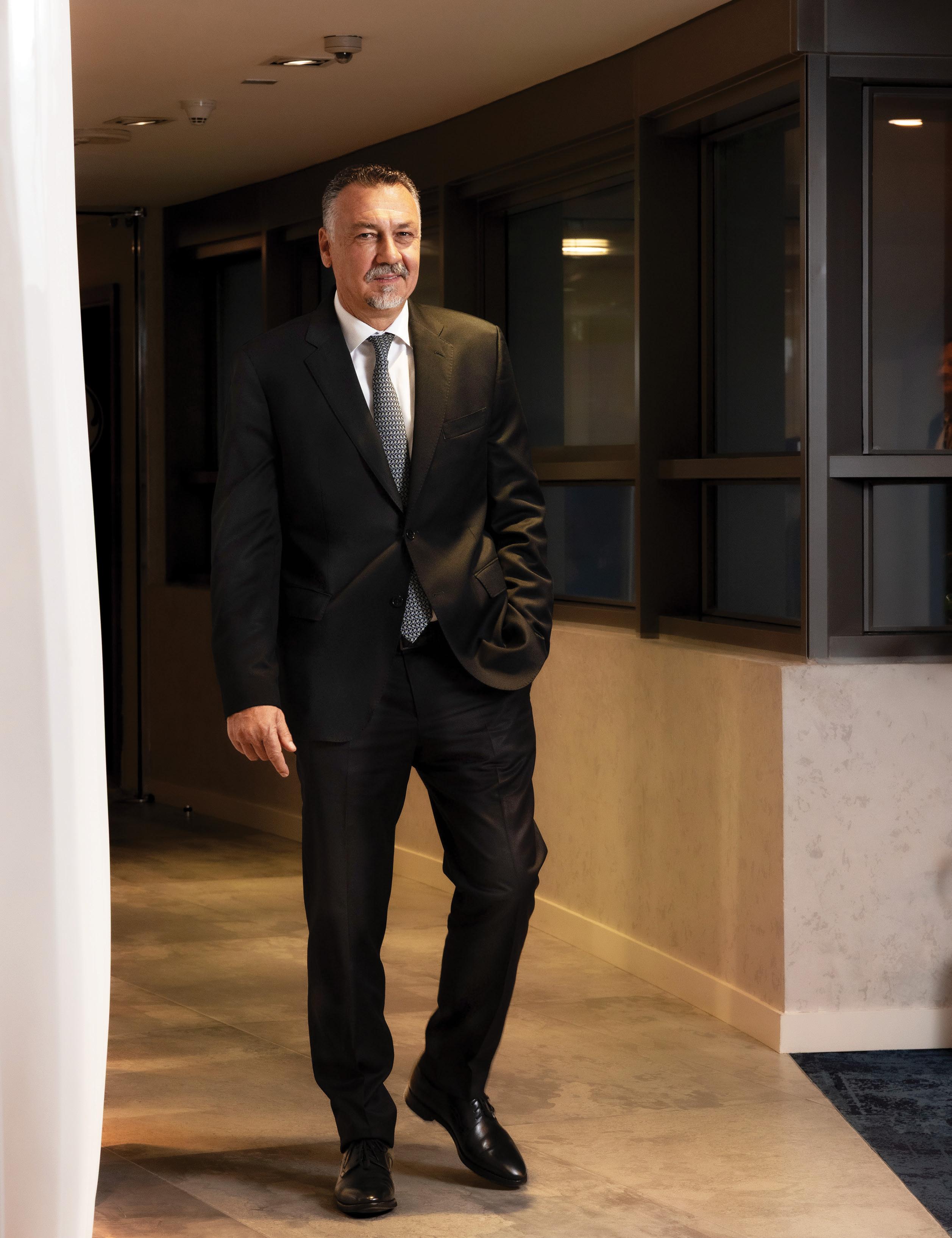
P.29 THE INDIAN EQUATION
A SHOWCASE OF THE TOP 100 POWER PLAYERS

P.18
ALIGNING AMAZON’S ARAB AMBITIONS
RONALDO MOUCHAWAR ON REDEFINING THE FUTURE OF E-COMMERCE IN THE REGION

P.29 THE INDIAN EQUATION
A SHOWCASE OF THE TOP 100 POWER PLAYERS
AZIZ KOLEILAT ON GE AEROSPACE’S FIRST-YEAR MOMENTUM AND NEXTGEN AVIATION IN THE REGION

At EFG Hermes, An EFG Holding Company, we realize more for clients looking to us as a gateway to compelling MENA Markets’ equities; and for investors who want to deploy impact capital into renewables, healthcare, and education.


An insight into the news and trends shaping the region with perceptive commentary and analysis

GE Aerospace is moving quickly to become a cornerstone of the region’s next aviation chapter. Aziz Koleilat, president and CEO of METCIS at the company, shares details

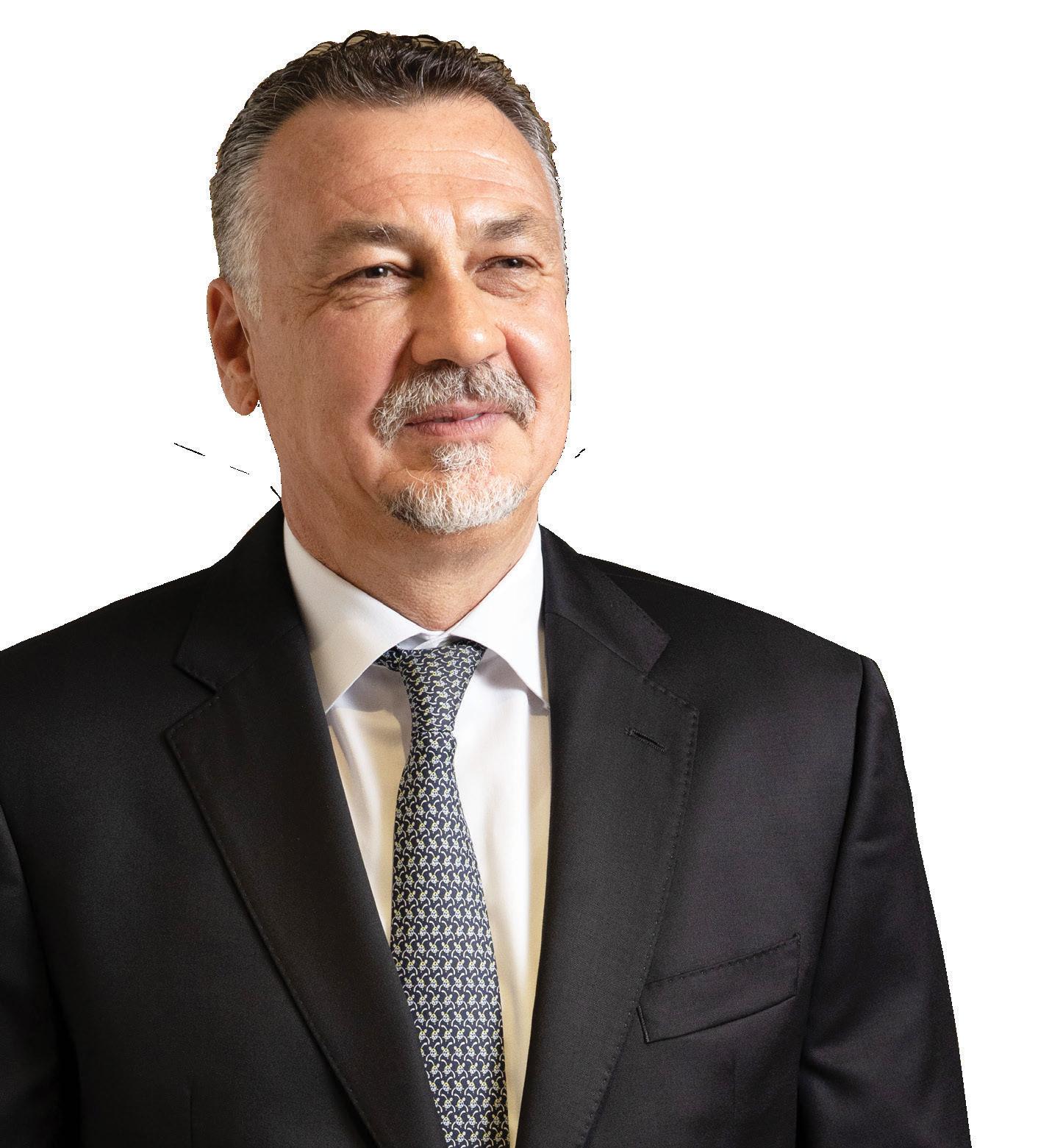
Editor-in-chief Obaid Humaid Al Tayer | Managing partner and group editor Ian Fairservice 22
Chief commercial officer Anthony Milne anthony@motivate.ae
Publisher Manish Chopra manish.chopra@motivate.ae
Group editor Gareth van Zyl Gareth.Vanzyl@motivate.ae
Editor Neesha Salian neesha.salian@motivate.ae
Deputy editor Rajiv Pillai Rajiv.Pillai@motivate.ae
Reporter Nida Sohail Nida.Sohail@motivate.ae
Senior art director Freddie N Colinares freddie@motivate.ae
motivate@motivate.ae
Offices
455 - 456,
motivate@motivate.ae
General manager – production S Sunil Kumar
Production manager Binu Purandaran
Assistant Production Manager Venita Pinto
Digital sales director Mario Saaiby mario.saaiby@motivate.ae
Sales manager Hitesh Kumar Hitesh.Kumar@motivate.ae


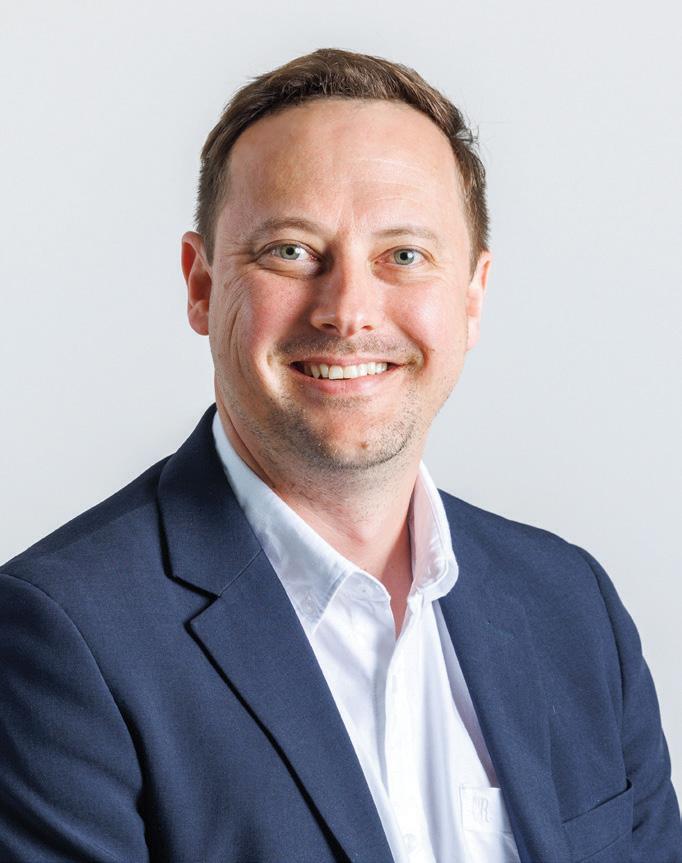




The UAE’s digital transformation is redefining how money moves and businesses operate, with embedded finance emerging as the next big catalyst
The UAE is rapidly becoming a world leader in digital development, fuelling transformation and powering innovation across industries. Under its Digital Economy Strategy from 2022, the Emirates aims to raise the digital economy’s share of GDP from 9.7 to 19.4 per cent in 10 years.
The UAE’s banking sector sits at the intersection of a national digital agenda and a thriving, diversified economy, using technology as both a growth engine and a resilience strategy.
Forward-thinking regulation amplifies this shift: the Central Bank of the UAE, alongside innovationfriendly financial centres such as Abu Dhabi Global Market and Dubai International Financial Centre, has fostered test-and-learn sandboxes, pragmatic
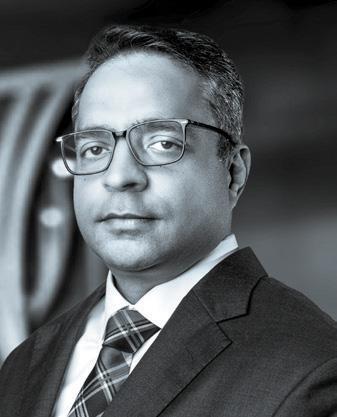
guidelines for digital onboarding and e-KYC, and clear rulebooks for emerging models such as open banking, digital assets and embedded finance.
Guided by an ambition to deliver world-class digital services and seamless experiences, banks are rearchitecting core systems around cloud, APIs and data platforms to enable real-time, mobile-first finance.
At the core of this transformation lies embedded finance, which allows for the seamless integration of financial services into non-financial platforms, allowing any business to perform financial operations, such as digital payments, without leaving its platform.
The UAE’s embedded finance sector is expanding rapidly, with revenues expected to rise from $1.56bn in
2024 to $5.5bn by 2029, representing a compound annual growth rate (CAGR) of 28.6 per cent. This substantial market growth has translated into transformative impacts on a number of industry subverticals including business-to-business (B2B) payments. For example, financial institutions such as Emirates NBD in the UAE are developing invoice management solutions that integrate directly with businesses’ ERP systems. This solution offers digital invoice submission and processing capabilities with real-time status updates, previously available only through standalone service providers.
Traditional B2B invoice payment processes have long been characterised by inefficiency and lack of transparency. Invoices are often submitted via e-mail and followed up with phone calls requesting status updates, leaving suppliers without visibility into the invoice approval process.
ULTIMATELY, THIS TRANSFORMATION IN INVOICE MANAGEMENT IS A MAJOR STEP FORWARD FOR B2B TRANSACTIONS.
THE EMBEDDED APPROACH BENEFITS BUYERS BY STREAMLINING THEIR PROCUREMENT-TO-PAYMENT PROCESSES. AUTOMATED INVOICE MATCHING AGAINST PO ENSURES THAT ONLY LEGITIMATE INVOICES ENTER THE APPROVAL WORKFLOW,
REDUCING PROCESSING ERRORS AND IMPROVING EFFICIENCY.
Advanced invoice management solutions offer a streamlined, digitised channel for B2B buyers to efficiently manage invoices directly from their own systems. Now suppliers can upload invoices and supporting documents for the goods supplied to a buyer through a dedicated portal. The solution has built-in configurable logic to perform purchase order (PO) to invoice matching services. Upon successfully meeting the configured criteria, eligible invoice data is sent to the buyer’s ERP systems for further booking and approval.
The solution brings efficiency and transparency to the entire invoice submission and approval process with minimal disruption to the existing approval setup. This efficiency extends beyond individual transactions, significantly impacting the broader supply chain. A strong supply chain boosts business growth by streamlining operations, cutting costs and enabling swift market adaptation. Supply chain finance brings in the element of cash flow optimisation, improving the financial health of the entire value chain.
Embedded invoice management solutions are delivering direct advantages for suppliers by offering greater visibility into their receivables. When
THE UAE’S EMBEDDED FINANCE SECTOR IS EXPANDING RAPIDLY, WITH REVENUES EXPECTED TO RISE FROM $1.56BN IN 2024 TO $5.5BN BY 2029
delivered through banks’ platforms, these solutions create additional value, enabling suppliers to track and manage payments more efficiently.
Given banks are highly regulated entities, these institutions are uniquely equipped to manage critical financial processes, particularly when integrated with advanced technologies while ensuring data security and confidentiality.
Furthermore, the market is seeing the rise of flexible implementation options, including white-label capabilities. This allows businesses to present supplier portals as their own branded interfaces, maintaining brand consistency while leveraging sophisticated banking technology and compliance infrastructure.
In the UAE, SMEs play a critical role in driving economic diversification, innovation and job creation, contributing significantly to the country’s non-oil GDP. By automating invoice processing and enabling early payment through embedded supply chain finance, the solution strengthens SMEs’ cash flows, directly supporting their working capital needs and business growth.
Ultimately, this transformation in invoice management is a major step forward for B2B transactions. The embedded approach benefits buyers by streamlining their procurement-to-payment processes. Automated invoice matching against PO ensures that only legitimate invoices enter the approval workflow, reducing processing errors and improving efficiency.
Looking ahead, as more businesses recognise the operational and financial benefits of unified, embedded solutions, B2B invoice payments are set to become the standard rather than the exception, fundamentally reshaping how B2B commerce operates in the UAE and beyond.
This transformation represents more than technological advancement, it embodies a fundamental shift toward customer-centric, efficiency-driven financial services that support business growth and economic development –key attributes in an increasingly competitive global marketplace.

We look at why
utility-scale batteries
are central to the GCC’s energy future
Battery storage is rapidly becoming central to the Middle East’s energy transition, bridging the gap between abundant but intermittent solar and wind generation and rising demand. The GCC countries are hosting some of the world’s largest battery tenders, led by Saudi Arabia and the UAE . In our view the GCC has become one of the most dynamic
battery storage markets globally, with Saudi Arabia targeting 48 gigawatt hours (GWh) of capacity by 2030. The kingdom is moving quickly, commissioning or contracting several projects in the past year alone. Simultaneously, the UAE is advancing one of the world’s largest solar-plusstorage projects. The unprecedented scale and speed of these projects underscore how the GCC has shifted from pilot schemes to large-scale deployment in just a few years. We believe that battery storage is fast becoming a central pillar of GCC energy-transition strategies in line with their long-term goals. While fossil fuels continue to dominate the regional energy mix, expanding renewable pipelines, stronger regulations, and rising investment and rising investment signal an increasingly firm commitment to clean energy. Emerging demand from AI and data centres infrastructure is also accelerating this transition, as this requires large-scale, rapid, and highly reliable power. This shift toward low-carbon, flexible power systems is quickly becoming a defining feature of national energy strategies across the region.
Saudi Arabia’s Vision 2030 illustrates this shift. The government aims to generate 50 per cent of its electricity from renewable sources by 2030, with the rest to come from highly efficient gas-fired plants. Similarly, the UAE has committed to netzero emissions by 2050, supported by large-scale solar projects, competitive tenders, and a robust clean-energy roadmap. It also plans to triple its installed clean-energy capacity by 2030. Oman, Qatar, and Bahrain are also scaling up renewable energy, advancing decarbonisation agendas through utility-scale procurement and public-private partnerships.
Abundant solar resources, significant land availability, and complementary wind conditions give the region a natural advantage in developing clean energy. In our view, GCC governments’ ability to launch several gigawatt-scale projects each year reflects increasing confidence among local and foreign investors, backed by sophisticated procurement frameworks.
However, the growing share of intermittent renewables in the generation mix raises system-level challenges. Peak electricity demand in GCC typically occurs in the evening, just as solar output drops. This mismatch between the timing of generation and demand means that without flexible resources, renewables can’t fully deliver reliable power. We believe that addressing this challenge is now a priority for both policy and investment. In this context, we are seeing a strong push for battery energy storage systems
Sofia Bensaid is the director, Infrastructure and Project Finance Ratings MEA at S&P Global Ratings
(BESS), not just as optional add-ons, but as enablers of energy security and grid flexibility in a low-carbon system.
Momentum is building fast across the region, projects are scaling up, and procurement pipelines are expanding. In our view, battery storage is becoming critical to delivering reliable, roundthe-clock, clean power. As renewables gain ground across the GCC, storage is increasingly defining the way that power systems are designed, financed, and operated. As governments scale up renewable energy deployment, cost-competitive storage is becoming essential to ensure grid flexibility and the steady supply of dispatchable clean energy. In our view, continued price declines remain a key enabler of large-scale adoption.
Over the past decade, lithium-ion battery prices have declined by more than 80 per cent, driven by global electric-vehicle demand, scaled manufacturing, and steady advances in battery design, performance, and durability.
This steep cost decline is especially critical for the GCC, where the cost of solar photovoltaic (PV) power is already among the lowest in the world — often below $0.02 per kilowatt hour (kWh). Pairing ultra-low-cost solar power with increasingly affordable storage enables the region to deliver clean power at highly competitive prices, enhancing both grid reliability and long-term cost efficiency. These dynamics make BESS an
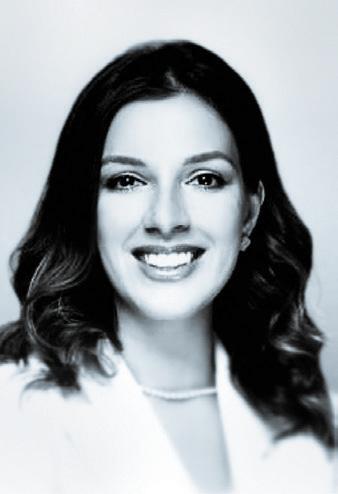
economically viable investment for developers and governments alike.
The GCC’s growing pipeline of renewable energy projects is transforming the region’s electricity mix. The primary driver of this is solar PV, with wind also beginning to play a role in markets like Saudi Arabia. Record-low solar tariffs together with battery storage are redefining the economics of renewables. The ability to manage the timing and flexibility of supply is bringing clean energy closer to having baseload characteristics - a major step in stabilising grids and scaling renewables more aggressively.
In countries like Saudi Arabia, where energy exports remain vital to the economy, storage also allows for greater optimisation of domestic resources, freeing up gas or oil for export while renewables cover local demand more effectively. Battery storage is also increasingly displacing oilfired generation during peak demand hours. This helps reduce domestic oil consumption and allows for more efficient allocation of energy resources. Saudi Arabia’s peak electricity load was 60 gigawatts (GW) in 2018, and we expect it to increase to 100 GW by 2030. Oil-based generation has traditionally met most of this demand. We expect BESS to play a growing role as a scalable alternative to oil peaker plants, supporting fuel optimisation and contributing to long-term decarbonisation objectives.
In our view, the case for battery storage is particularly strong in the Middle East due to the region’s unique combination of high levels of sunshine and sharply defined load curves.
Reinforcing these advantages are ultra-competitive solar power prices that reflect the large scale of the projects and the high quality of the natural resources.
The region also benefits from abundant available land, a strong policy push, ample capital, fast-track permitting frameworks, and a proven track record of efficient project execution. In this context, solar PV-plus-storage is emerging as a compelling proposition: it allows developers and utilities to deliver clean energy with dispatchable characteristics, reinforcing both reliability and investor appeal.
THE SAUDI GOVERNMENT AIMS TO GENERATE 50% OF ITS ELECTRICITY FROM RENEWABLE SOURCES BY 2030, WITH THE REST TO COME FROM HIGHLY EFFICIENT GAS-FIRED PLANTS
Emilio Pera is CEO of KPMG Lower Gulf and deputy CEO of KPMG Middle East
governance
As part of a strong governance framework, an organisation’s board has a critical role to play to ensure the health and stability of each individual business, improving investor confidence to the benefit of the economy as a whole. And for this to be effective, it is vital that every board member fully understands their role and takes this responsibility seriously.
A board director’s obligations move beyond handling operational, day-to-day issues in a management role, to overseeing the activities of the executive and representing the interests of all stakeholders, ensuring alignment to the organisation’s strategy.
Each board member has a critical role to play, contributing diverse skills and perspective to the general benefit of the organisation in the first instance. They should not be influenced by decisions relating to external stakeholders, for example on paying out a dividend or not, to the detriment of the organisations’ best interest.
Here, the governance framework is critical. Where do you draw the line between providing oversight versus getting involved in running the business and second guessing the decisions management is taking? The issue is that the CEO can be perceived as being some kind of lieutenant to the chair, which is generally not healthy for the organisation.
This can be a particular challenge for family businesses – and occasionally semi-government organisations – but the roles must be made clear, formally and informally, to avoid confusion. Board members must ask themselves, what is in the best interests of the organisation?
Since I arrived in the UAE almost a decade ago, there has been noteworthy enhancements in legislation relating to boards. Although significant progress has been made, we are currently still a bit less mature than several developed markets, but the country is meeting global standards while maintaining local relevance.

Indeed, there has been significant improvement in governance over the last couple of decades, for example with the adoption of the UK’s Corporate Governance Code (or Combined Code). And in the banking sector, the Basel regulatory framework, with its governance guidelines for risk function within an organisation, means the country meets internationally common business standards. Banking is a more regulated environment, so governance issues are more pronounced than in other sectors, though the rest of the economy is moving in the same direction.
Having more women on boards is another positive development. Since January 1, both private and public joint-stock companies in the UAE must have at least one woman on their board. Although there is still some way to go, we expect better business outcomes with (gender) diversity at corporate leadership, across all sectors.
In terms of earning stakeholder trust, governance frameworks have a critical role to play in a country’s capital markets. A well governed board of directors gives reassurance to investors and other stakeholders alike.
It is therefore significant that in the UAE we are increasingly seeing a requirement for independent validation and evaluation of the board. The country is now playing host to a wellspring of initial public offerings (IPOs), accompanied by the need to consolidate capital markets and engender market liquidity. These activities can only be enabled through strong governance frameworks, in which the board – working in harness with the C-suite – has a critical role to play.
Additionally, the UAE, being one of the Gulf’s leading financial hubs, will most likely see its financial frameworks further converging with international bodies such as the OECD. This is already the case with the adoption of minimum tax status, which will also create greater harmonisation and transparency.
So, the structure is there. Everything goes to building the credibility of the region and of the UAE, to attract investment. That’s why the transparency, stability and strength of the market has been a key focus, and why board directors of UAE companies have such a crucial role to play.
THE COUNTRY IS NOW PLAYING HOST TO A WELLSPRING OF INITIAL PUBLIC OFFERINGS (IPOS), ACCOMPANIED BY THE NEED TO CONSOLIDATE CAPITAL MARKETS AND ENGENDER MARKET LIQUIDITY.










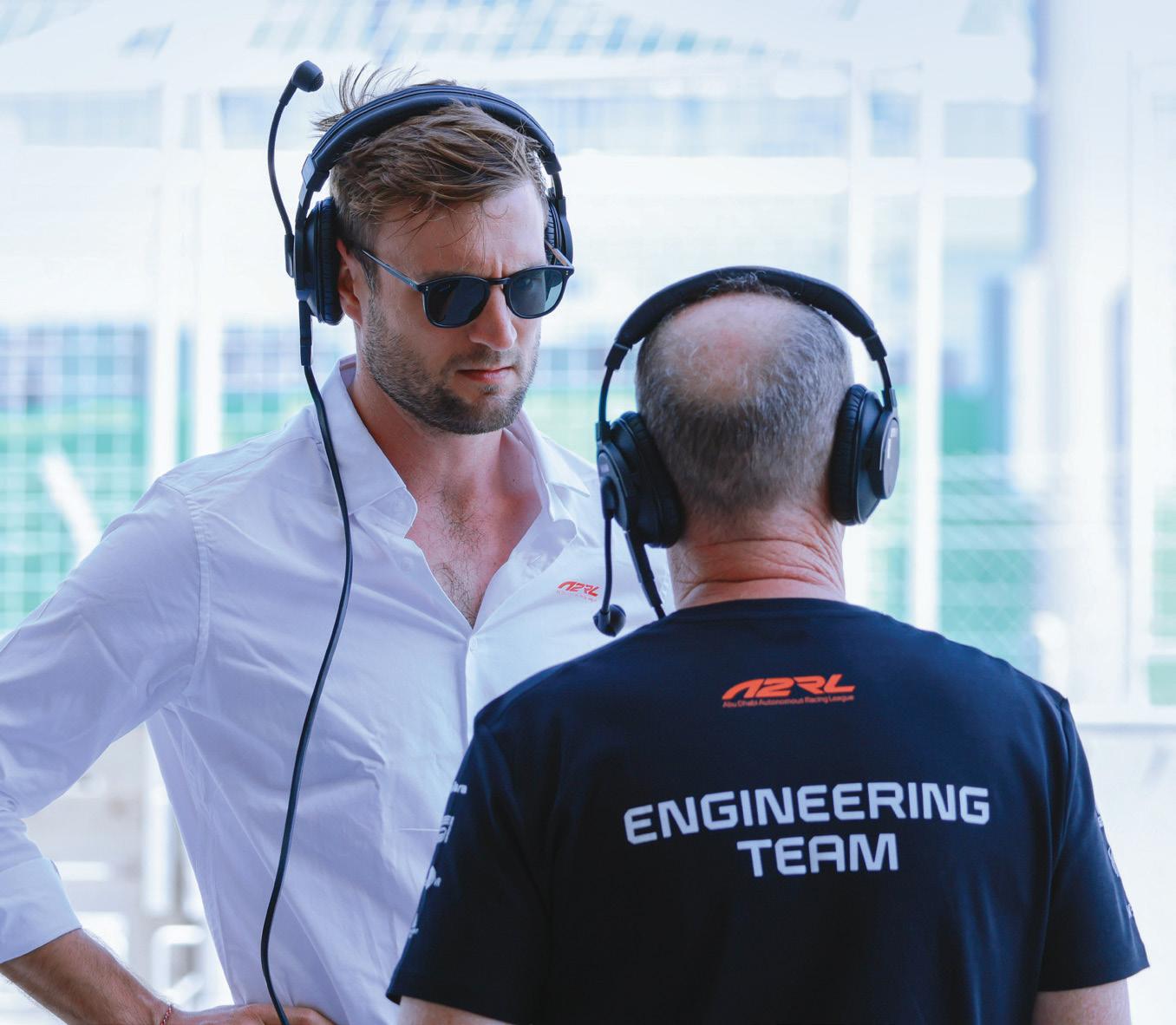
Alexander
Even without a driver behind the wheel, human ingenuity, collaboration, and judgment remain at the core of autonomous racing
When people see a driverless car, whether it be a racing car or a taxi, they often assume the technology is doing all the work. The machine is in control and humans are out of the picture.
The problem is not just one of perception. As autonomous vehicles become more common, the story we tell about them matters. If we view autonomy as something automatic or inevitable, we risk underestimating the human effort it still requires. That effort is not only technical. It is strategic, emotional and deeply collaborative.
I come to this space from a traditional motorsport background, with over 16 years working across some of the most competitive racing environments in the world. That perspective has shaped how I view this shift. In conventional racing, teams protect their data. Knowledge is rarely shared, competitive advantage is everything and the culture rewards secrecy, speed and control.
Autonomous development challenges that mindset. It depends on shared progress. Teams often help one another, even when they are direct competitors. I have seen top developers sit with newer teams to troubleshoot software or recalibrate systems. They do it not out of charity, but because they understand that autonomy only succeeds when the whole field can perform. If only one car completes a race, that is not a victory. It is a failed experiment.
The
same tools that allow a driverless car to manage grip or react to changing track conditions can help human teams prepare better strategies, monitor tyre degradation or model risk with greater accuracy.”
Every lap completed by a driverless car is the result of months of human effort. Engineers, coders and technicians work late into the night solving problems that have no manual. These systems are still prototypes, held together by relentless testing and collaboration. Nothing about this work is automatic. That collaborative spirit does not make the work easier. If anything, it introduces new pressures. These teams are made up of specialists with different ideas about how to solve the same problem. Some want to push harder, while others argue for a safer approach. Reaching consensus under tight deadlines demands more than technical skill, it requires leadership, communication and trust. Still, the progress is remarkable. I have seen autonomous cars complete sub-one-minute laps around the north track at Yas Marina Circuit on tyres that had already clocked more than 800 kilometres. In traditional racing, a set of tyres used aggressively might last 60 to 80 kilometres before falling off in performance. These autonomous systems adjust continuously, learning with every turn. They are not held back by instinct, fatigue or hesitation. But this is not about replacing drivers. Motorsport remains a sport, and human performance will always be central to its appeal. Autonomy offers something different. The same tools that allow a driverless car to manage grip or react to changing track conditions can help human teams prepare better strategies, monitor tyre degradation or model risk with greater accuracy. Engineers working in autonomy today are building systems that could quietly make racing more efficient, more sustainable and more competitive. Events like the Abu Dhabi Autonomous Racing League (A2RL) are helping to test these possibilities in real-world conditions, under pressure and at speed. None of this happens without people. Every decision an autonomous vehicle makes is shaped by human judgement, testing and design. These systems are not independent of us. They are built through human insight, creativity and care. Removing the driver does not remove the human. It simply shifts their role, from operating the vehicle to developing the systems that guide it.

Plastics are at a crossroads. Once valued for their durability, versatility, and low cost, they are now under scrutiny as governments, businesses, and consumers rethink how materials can be produced, used, and reused sustainably. This global shift has opened the door for alternative materials including plantbased and compostable plastics that balance performance with environmental responsibility.
in sustainable plastics, fostering innovation and eco nomic growth while advancing environmental goals.
One of the most promising alternatives is polylactic acid (PLA), a bio-based polymer derived from renewable feedstocks such as corn starch or sugarcane. PLA offers a circular end-of-life pathway through industrial composting, breaking down into
ACROSS THE UAE AND MIDDLE EAST, AWARENESS OF PLASTIC POLLUTION IS GROWING, WITH CONSUMERS INCREASINGLY SEEKING REUSABLE, COMPOSTABLE, OR BIO-BASED PRODUCTS AND MAKING CHOICES BASED ON ENVIRONMENTAL IMPACT.
natural components without leaving microplastics. It is highly suitable for packaging, disposable products, and other applications where conventional plastics contribute to pollution. By integrating PLA into production and supply chains, companies can deliver functional products while significantly reducing their carbon footprint. PLA represents both a material innovation and a catalyst for systemic change in product design, manufacturing, and sustainability practices.
Consumer behaviour is a key driver of this transition. Across the UAE and Middle East, awareness of plastic pollution is growing, with consumers increasingly seeking reusable, compostable, or bio-based products and making choices based on environmental impact. Public awareness encourages companies to innovate and develop products that meet sustainability standards, creating a positive feedback loop that strengthens circular economy practices and accelerates adoption of sustainable alternatives.
Government initiatives further reinforce this shift. The UAE is taking bold steps to phase out single-use plastics, starting with a nationwide ban on plastic shopping bags in 2024 and a federal ban on products like cups, cutlery, and food containers by 2026. Dubai and Abu Dhabi have also rolled out phased bans on bags, Styrofoam, and other disposable items.
International climate agreements and frameworks, including COP28, are also expected to accelerate adoption of sustainable materials. Commitments to reduce carbon emissions and promote circular economy principles will likely increase demand for plant-based, compostable plastics and encourage the adoption of innovative production technologies. Aligning domestic strategies with global sustainability goals strengthens the UAE’s leadership in sustainable plastics and demonstrates how industrial-scale eco-friendly initiatives can be implemented effectively.
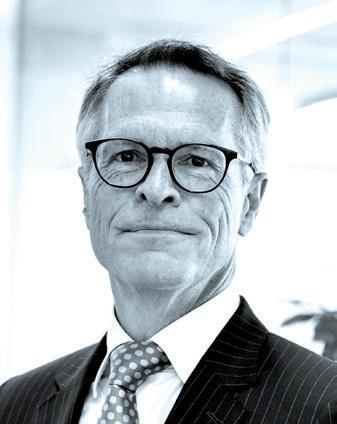
Global innovations in bio-based plastics provide additional insights. Polymers such as PLA, PHA, and other compostable materials have been successfully applied worldwide in packaging, disposable products, and single-use items. Design strategies like monomaterial packaging simplify end-of-life management and enhance circularity. Organisations such as the United Nations Environment, trade associations like European Bioplastics and the Gulf Petrochemical Association facilitate knowledge sharing, accelerate adoption, and set standards that can be adapted to the UAE context. By integrating these innovations locally, the UAE can create a robust ecosystem for sustainable materials and position itself as a model for the region.
Collaboration across multiple stakeholders is essential for success. Governments provide policies and incentives, businesses drive innovation and market adoption, and research institutions develop new materials and technologies. Together, these stakeholders ensure that product design, supply chains, and industrial processes are aligned with circular economic principles. For initiatives like the Falcon PLA Project, collaboration ensures scalable production, high-quality materials, and integration into regional and international markets. Multi-stakeholder partnerships are vital to overcoming challenges and accelerating adoption of sustainable plastics.
Economically, investing in sustainable plastics presents significant opportunities. Large-scale production of bio-based polymers generates new green industries, fosters high-skilled jobs, and strengthens the UAE’s position as a hub for innovative materials.
The plastics industry is at a pivotal moment. Petrochemical-based plastics are no longer compatible with environmental and economic priorities. Plantbased and compostable alternatives, particularly PLA, offer practical solutions that reduce impact without sacrificing functionality. With its forwardlooking policies and strategic location, the UAE is uniquely positioned to lead the Middle East and set new global benchmarks in sustainable plastics.
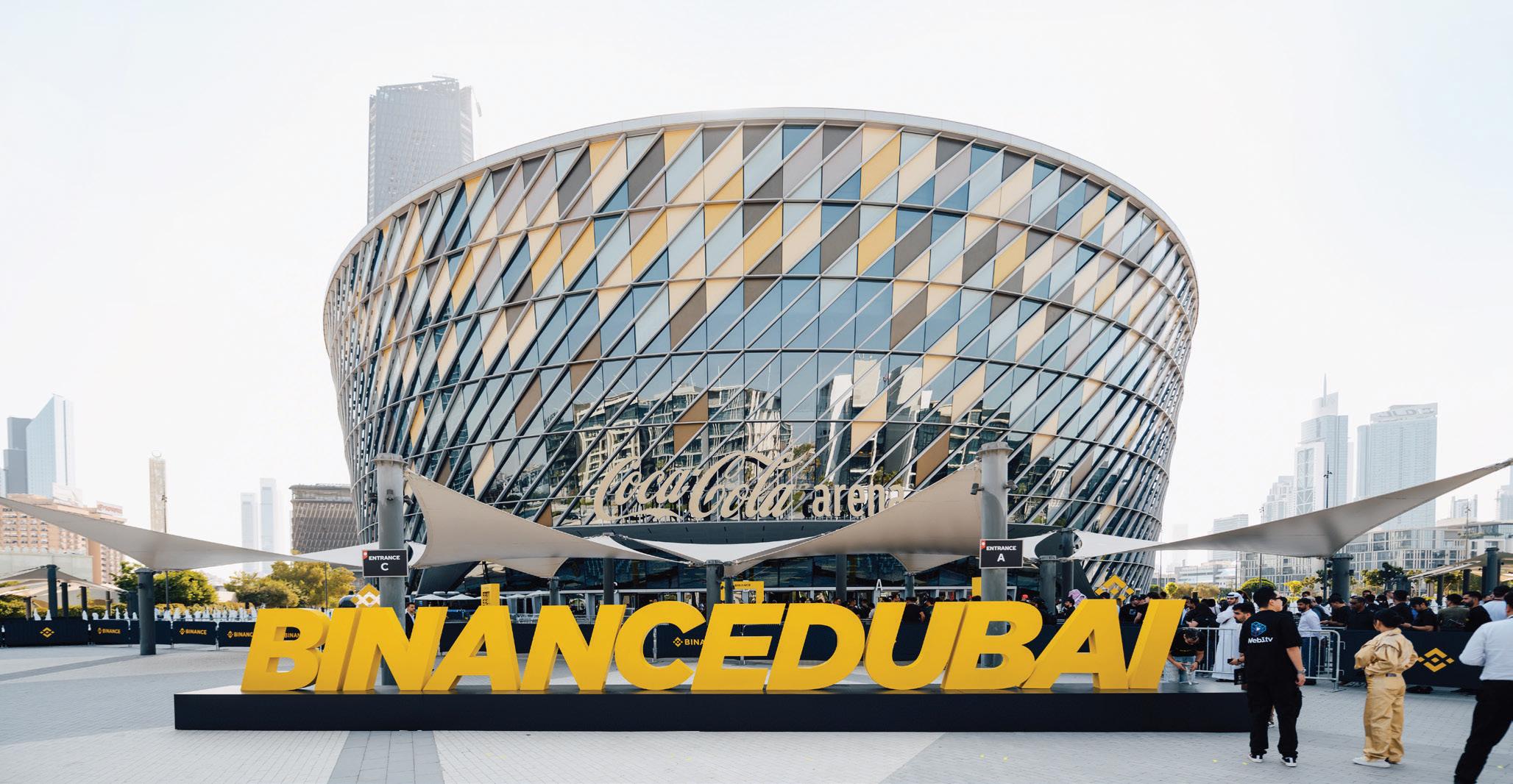
How MENA is proving itself a force in the global crypto future
Crypto’s roots are in the West, but the Gulf is now leading innovation with regulation and global collaboration
Like so much of the major tech-based movements around the world, crypto’s start can be traced back to the West. Equally, like so much acceleration in capability and regulation of technology, the exciting next chapter is unfurling here in the Middle East.
Over the years, the Gulf has consistently shown its ability to act responsibly with innovation, blending government regulation, real-world integration, with speed and scale.
While other markets wrestle with uncertainty, MENA’s approach is pragmatic: create the frameworks first, then invite innovation to flourish inside them. And what’s more, they remain openarmed, which bodes well for disruptive entrepreneurs and outliers driving and scaling technologies at the forefront of culture, society, and economies.
Bahrain was among the earliest movers, with the Central Bank of Bahrain establishing one of the world’s most comprehensive digital-asset frameworks. Binance became the first exchange to secure a Category 4 license there, a pin-worthy compliance milestone for the rest of the world.
The UAE, meanwhile, has evolved into one of the world’s most dynamic Web3 ecosystems. Through the Virtual Assets Regulatory Authority (VARA) in Dubai and ADGM in Abu Dhabi, the Emirates are not only attracting exchanges and fintechs, but also incubating the next generation of blockchain start-ups, tokenised-asset platforms, and AI-driven financial solutions.
For Binance, the UAE serves as both a regional base and a hub for education, institutional collaboration, and product innovation, from self-custody solutions like Trust Wallet – now serving over 280 million users – to Binance Institutional, which provides compliant trading and custody for global investors. It also serves as the home of this year’s Binance Blockchain Week for the second
consecutive year - the brand’s flagship gathering taking place in December at the Coca-Cola Arena.
Saudi is now signaling its own intent to join the digital-asset future. Under Vision 2030, the kingdom is investing in fintech sandboxes and pilot blockchain projects aimed at financial inclusion and efficiency.
For the initiated, the opportunity is obvious, for the curious, it’s vast and exciting. The tokenisation of real-world assets (RWA) — from real estate to corporate debt — already exceeds $20bn globally, with a projection of another $10tn to follow in the coming years. There is no doubt that MENA’s strong regulatory infrastructure will make it a key gateway for this new capital market.
By pairing this ambition with accountability, MENA is building a bridge between traditional finance and the decentralised future. It’s unrivaled in terms of readiness, eagerness, governmental support, and global talent. You need only do a 360 turn almost anywhere in the Emirates to see it.
The Gulf is no longer a follower in the crypto story. It is a co-author, helping to define a more transparent, inclusive, and hybrid financial system for the world.
The tokenisation of real-world assets (RWA) — from real estate to corporate debt — already exceeds $20bn globally, with a projection of another $10tn to follow in the coming years.”
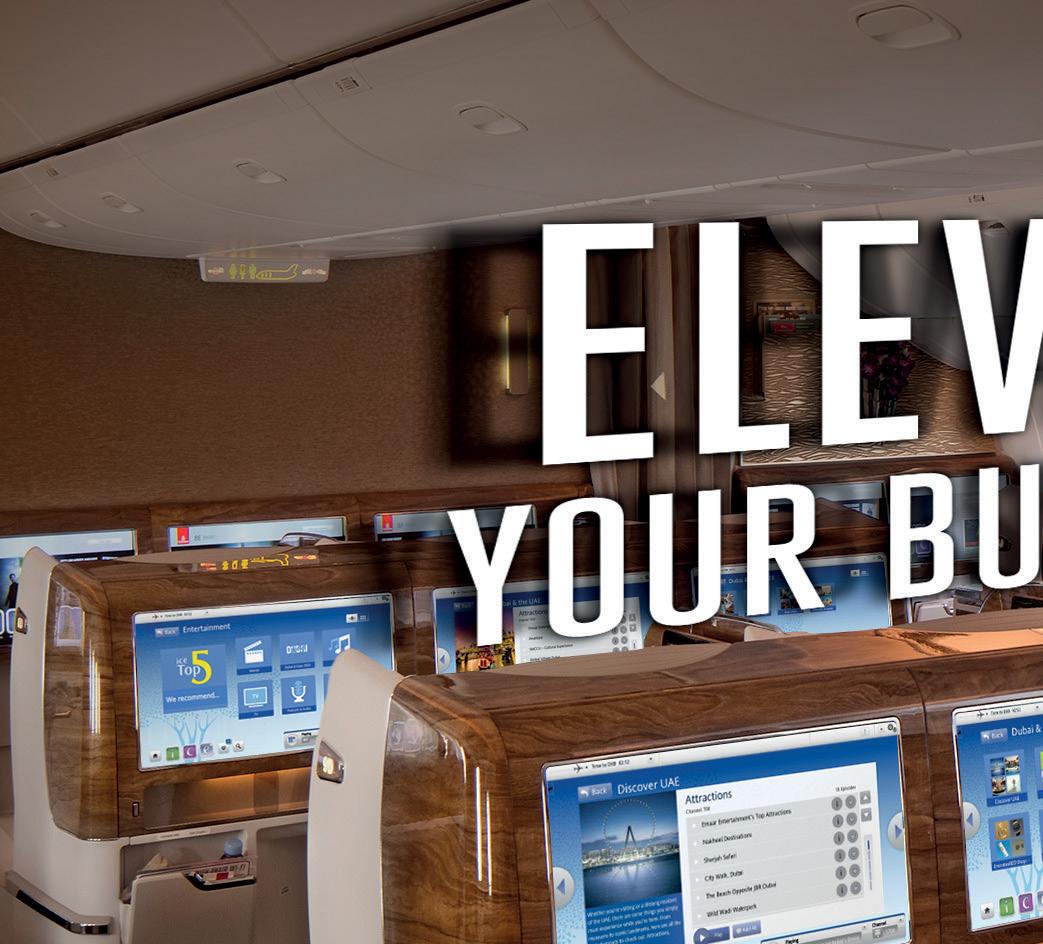
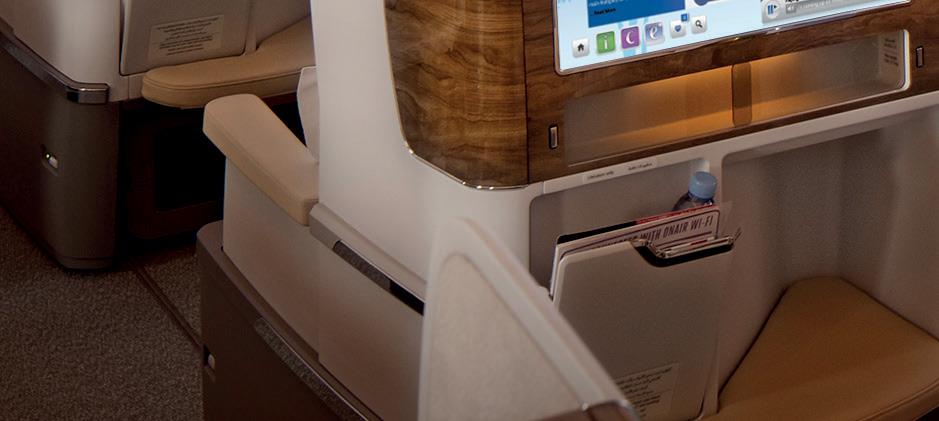



Attractions
Activities

Dining
Health
Education
Entertainment
Real
Hotels
Shopping
The



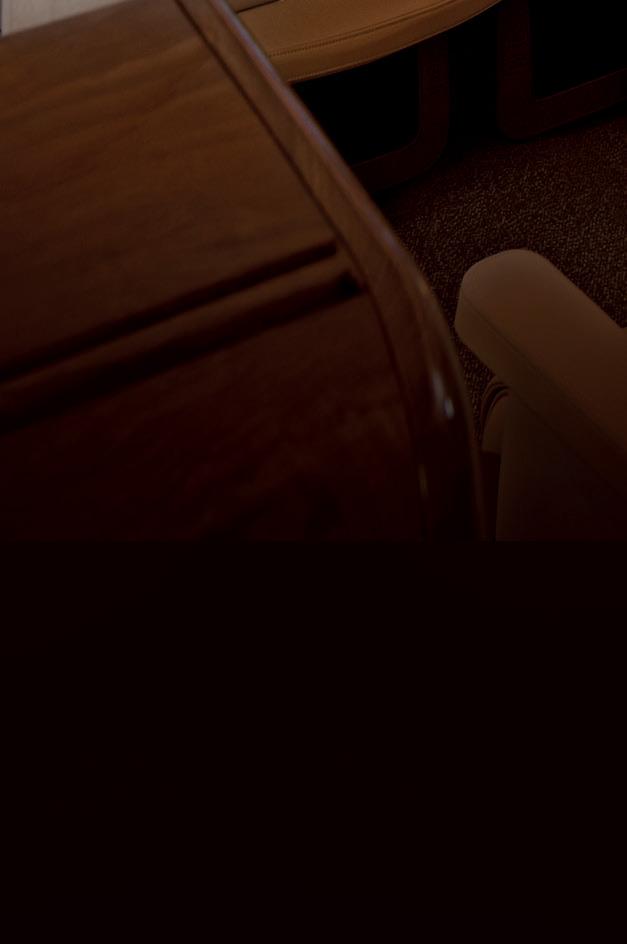






























In an era of heightened market uncertainty, Bank of Singapore's Mehvish Ayub shares how its strategic asset allocation approach helps investors build resilient, well-diversified portfolios while capitalising on opportunities across regions and alternatives
In today’s environment of heightened market volatility and policy uncertainty, what role does asset allocation play in building resilience for investors?
Amid the current landscape of increased market volatility and policy uncertainty, asset allocation plays a crucial role in building resilience for investors. It serves as a strategic framework for investing that balances exposure across various asset classes while aligning with an investor’s risk tolerance and return objectives. By, determining asset weightings and implementing rebalancing methodologies, asset allocation enhances portfolio robustness, enabling investors to better navigate the unpredictable shifts in global markets and policies we are likely to continue experiencing.
How can alternatives complement traditional asset classes, and what diversification benefits do they bring to a client’s portfolio right now?
Alternatives are often viewed primarily through the lens of their performance potential, the illiquidity premium and the ability to potentially provide an enhanced return over public markets. However, their value extends far beyond just return profiles. They are a great complement and diversifier to traditional assets as they provide exposure to different areas of the markets and can potentially tap onto secular trends before they become more mainstream.
Current macro factors such as the stock-bond correlation shifting from negative to positive, heightened policy uncertainty and ongoing geopolitical risks make a strong case for adding alternatives into investor’s portfolios. Alternatives offer unique characteristics such as stable income generation, inflation hedging, regional diversification and tactical opportunities. These features enhance portfolio diversification and resilience, helping investors better navigate market volatility and uncertainty.
Bank of Singapore has introduced its Strategic Asset Allocation (SAA) approach – could you explain how this framework supports clients in constructing long-term, resilient investment portfolios?
Bank of Singapore’s new strategic asset allocation (SAA) approach is designed to help clients build long-term, resilient investment portfolios by delivering more stable returns across varying market cycles. Central to this framework is the integration of uncertainty directly into the portfolio design process. By rigorously stress-testing portfolios against a wide range of historical and forward-looking scenarios, we evaluate asset classes and investments within a comprehensive “portfolio context.” Our approach encourages “portfolio thinking” –evaluating each investment by its contribution to overall portfolio’s risk and return profile, rather than in isolation. This holistic risk management approach enables us to construct well-diversified portfolios that are better equipped to withstand market volatility and evolving economic conditions, ultimately supporting clients’ long-term financial goals with greater confidence.
Where do you currently see the most compelling opportunities across asset classes, and conversely, what risks should investors be mindful of?
Currently, some of the most compelling opportunities lie in regions and sectors that may be underappreciated or overlooked due to market momentum elsewhere. Investors should be wary of overconcentrating in areas driven primarily by short-term enthusiasm as this could drift away from their strategic asset allocations and increase risk.
Our CIO team has been advocating for regional diversification in equities, maintaining overweight positions in European and Asia ex Japan equities throughout the year to capture attractive valuation and growth opportunities. Within
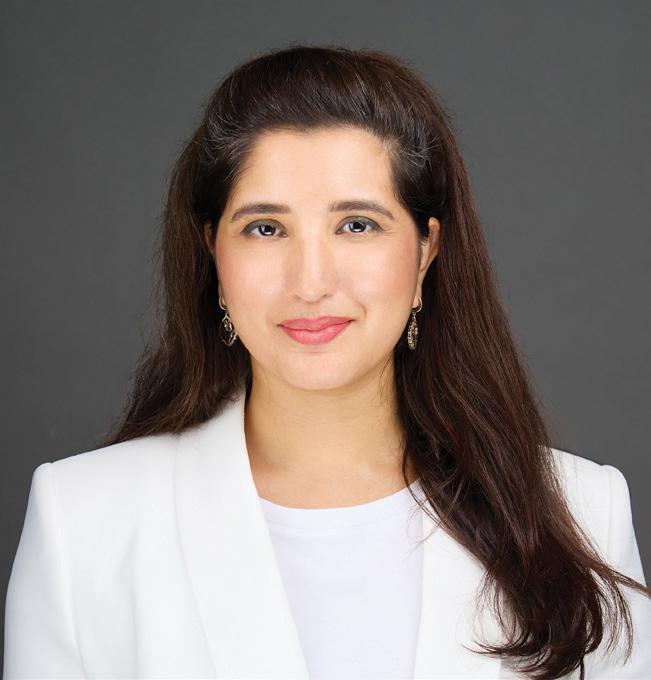
the alternatives space, we see strong potential in real assets, particularly infrastructure, which has compelling secular tailwinds, offers a stable cash flow profile and provides valuable inflation hedging properties.
With your experience across global markets and asset management, how do client expectations in the UAE and wider GCC differ from other regions when it comes to portfolio construction?
While clients in the UAE and wider GCC share many investment goals with investors globally, their expectations around portfolio construction often reflect regional factors such as a greater preference for capital preservation, a strong interest in wealth preservation across generations. Over the last three years, investors globally have been used to achieving stellar returns in equities. It is important to manage expectations in the context of longer-term return expectations, stress test portfolios under a variety of possible scenarios (not just extrapolate recent trends) and build well-balanced portfolios.
Looking ahead, how do you see the role of alternatives evolving in client portfolios over the next five years, particularly given structural shifts in the global economy?
Our goal is to help clients think and allocate capital with the same discipline and sophistication as institutions. We believe that growing awareness of the diversification benefits alternatives provide, combined with the emergence of evergreen solutions tailored for the wealth market, will be key drivers behind increased allocations to alternatives in client portfolios over time.

RONALDO MOUCHAWAR, AMAZON’S VP FOR MIDDLE EAST, AFRICA AND TURKEY, SHARES INSIGHTS
BY NEESHA SALIAN
What leadership lessons and strategies have you carried from souq.com into your role at Amazon?
If you think of one principle that has stayed with me throughout the journey, it’s being very close to the customers, making sure that we hear them and understand their needs. We stay in touch with customers, sellers, and vendors, and sometimes we even do ride-alongs with our drivers and visit our warehouses. I think that’s super critical. The second is really relying on technology to solve problems at scale. If
you really want the business to scale and deliver consistency to customers time and time again, we rely on technology and innovation to solve customer needs at scale.
How do you balance Amazon’s global values with localisation and regional innovation, and what are some key peculiarities of the market?
The whole premise is bringing the global experience of how to operate at scale with the local nuance of each of these markets. The main principles — large selection of products, good prices, convenience, and
seamless customer service — are almost the same everywhere. However, every country has its specificity and a different level of maturity in e-commerce penetration. It varies a lot between the Gulf, Africa, and Turkey.
The key peculiarities are payments, delivery, and addresses. Many countries in the region didn’t have a strong postal system, so we had to develop our own last-mile capabilities. Addresses often rely on landmarks, which we address using maps and technology. On payments, we must cater to unbanked consumers who use cash heavily. For example, in Egypt, our percentage of delivered orders with cash on delivery is higher than in the Gulf. Over time, as we improved the online experience, we’ve seen a big shift to digital payments.
Amazon Now was launched globally from this region. Why was the Middle East chosen as the destination to launch it?
In this part of the region, speed really matters. We see consumers really wanting and demanding us to deliver faster.
In the last two to three years, we’ve seen a big push toward consumers buying
THE KEY RIGHT NOW IS TO MAKE SURE MOST OF THE CUSTOMERS THAT WE HAVE IN THE GCC ARE SERVED WITHIN 10 MINUTES, AND THEN WE’LL EXPAND BEYOND THE REGION.”
their everyday essentials on our website, products like milk or eggs that they want immediately. The region has the demand. It is a continuation of our ability to deliver to customers now in minutes. Sometimes our fastest delivery was like six minutes, which is insane.
What have been the key learnings driving this growth, and how important are partnerships?
We pride ourselves on operational excellence and take reliability very seriously. The key learning has been ensuring we can deliver the whole cycle — from payment to doorstep — within the promised timeframe. This requires understanding the local topology, having our micro warehouses located near customer demand, and putting the right assortments in place.
In this region, we don’t need to build everything from scratch. We partner with established players. For fresh and grocery, we partnered with Lulu in Dubai and Al Othaim in Saudi. We also work with entities that have a local presence, including petrol stations, postal services and grocery chains, because proximity to the customer is the number one element for delivering within minutes.
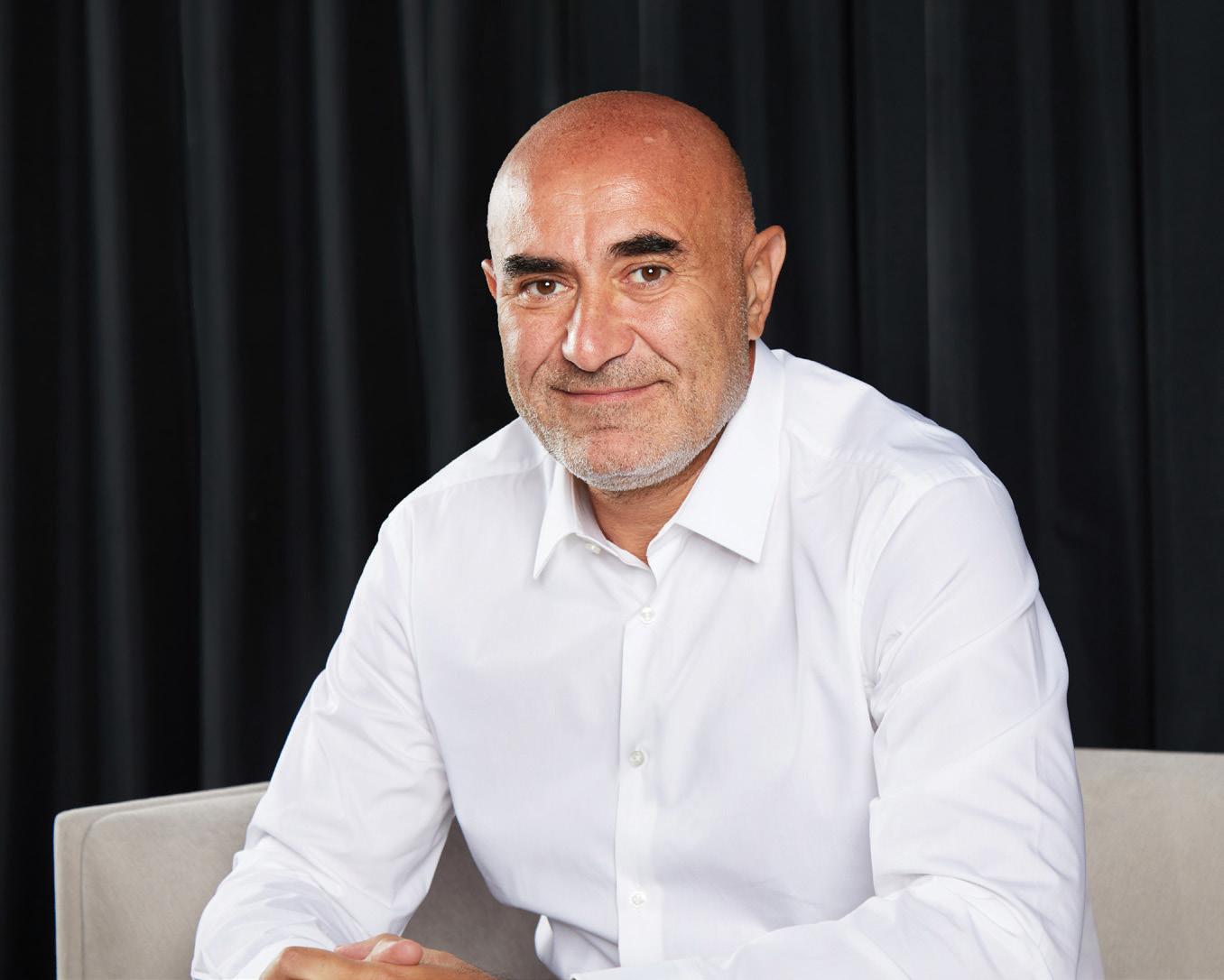
What have been some of the challenges as you’ve expanded across different markets?
We have a motto at Amazon: “fail fast”. When we launched, making sure our Arabic service and local search understood customers took time. We had to focus on adapting our global technology to local habits and the different words customers use to search. Localising the service but not compromising on Amazon’s high standards for customer reliability is our purpose here.
How has AI transformed everything from logistics to the retail experience?
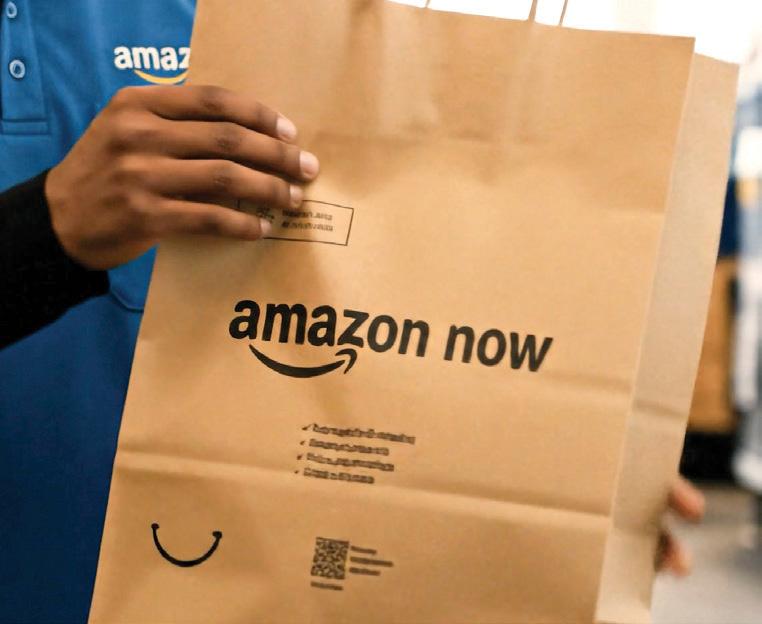
Today, AI is in everything we think about. It’s a big shift, and I’m very excited to be part of it. We have teams working on initiatives across the business: from how we place products for 10-minute delivery to how we compute the promise time that comes down to seconds and minutes. We are investing heavily to make sure that customers, sellers, and vendors are benefiting from the revolution we’re going through in terms of generative AI and its capability. This feels like another major shift in adoption, following the personal computer and the mobile phone.
You recently launched a credit card in the UAE. Tell us about it.
Our customers, especially those buying daily essentials, come back every day. The credit card we’re launching will enable these customers to save more as they shop with us, with a 6 per cent cashback for Prime members. It’s one more service we localize, working with a local bank to provide value and savings.
What can we expect from Amazon in the coming months, and what lessons can businesses learn from Amazon’s success?
Our big focus right now is on convenience, ensuring we are delivering to most of our customers within minutes and always having the relevant products available to meet their daily needs.
The lesson is simple: always focus on the customer. We use technology to solve customer pain points, innovate on their behalf, and we don’t shy away from trying things that may or may not work. We fail fast at experiments that happen daily. Embracing that culture will drive innovation.
For me personally, solving these problems, looking at how you deliver in minutes, how AI plays a factor—is the most fun and exciting thing I do at work.
As global wealth shifts generations, Habib Bank AG Zurich’s leadership explains how trust, technology, and cultural insight are reshaping client expectations
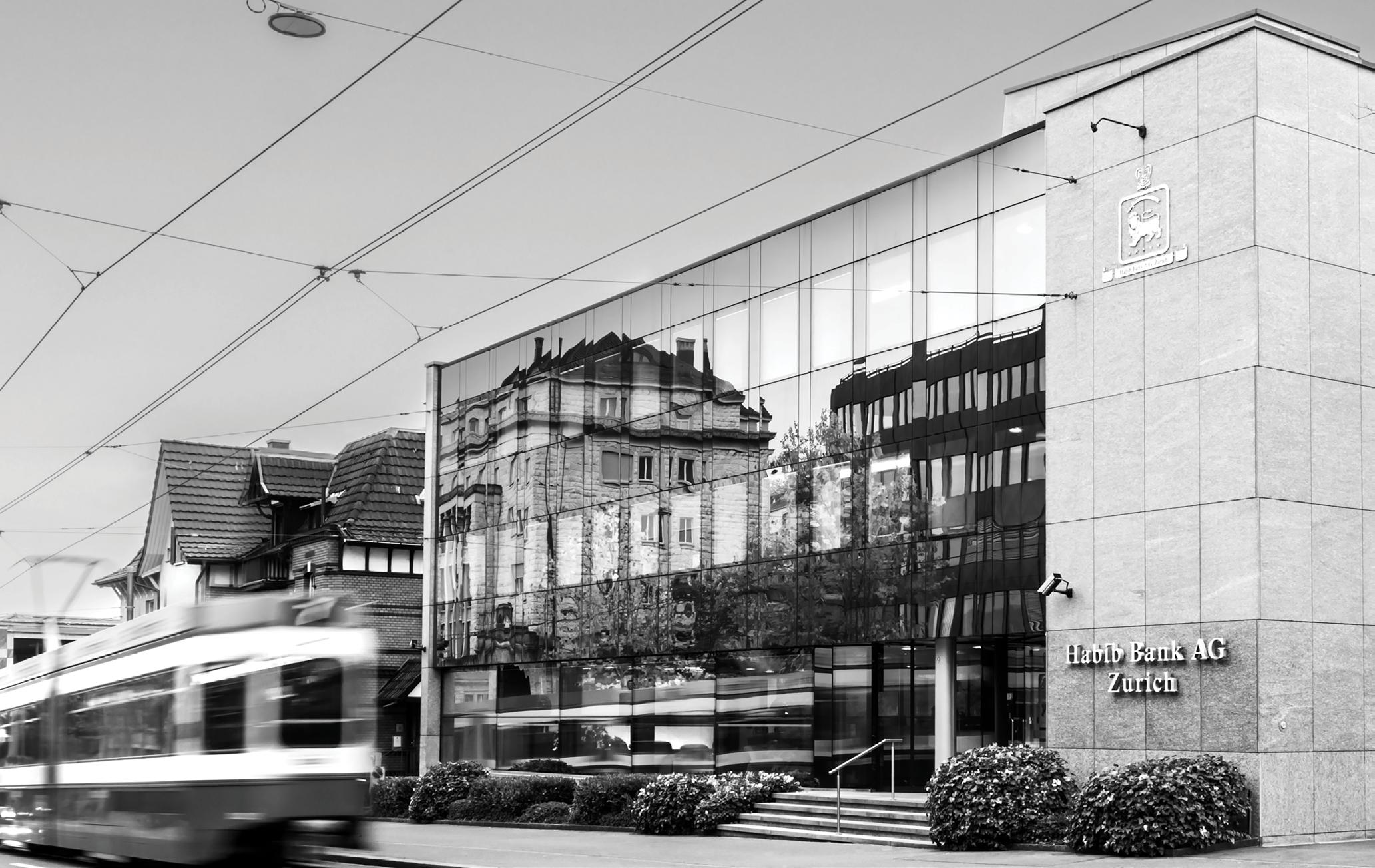
With over three decades in global banking, what fundamental shifts have you observed in how ultra-high-networth (UNHW) individuals define ‘value’ in a private banking relationship, and what hasn’t changed?
The basic definition of value amongst the UHNW segment remains unchanged, seeking banking relationships offering trust and quality service. However, as families become global they need wealth advisors that understand challenges of estate and tax planning, succession and wealth preservation. Industry is also seeing transfer of wealth to the next generation, for whom efficiency in advice and execution is a key value. Hence the need for digitisation and automation in workflows.
Digital transformation is often spoken of in retail and corporate banking, but how is digitalisation redefining the private banking experience for UHNW clients, and what innovations are on your radar in the Swiss context?
Digital transformation is inevitable for wealth industry if we have to keep up with the new generation of wealthy. With the breakneck pace of AI and internet of things, clients want paperless, efficient and seamless solutions to banking services. This could range from account opening, portfolio analysis, investment advice, funds transfers etc. Hence it’s imperative that the wealth industry invest capital and resources towards digitalisation in order to keep up with client expectations. We, at HBZ,
have made a conscious effort to automate and modernise our systems and make necessary upgrades to improve client experience.
You’ve worked across global financial powerhouses, JP Morgan, Deutsche Bank, Citi. How has that international exposure shaped your leadership style today at Habib Bank AG Zurich, especially as you lead its expansion in Switzerland?
I have been blessed to have worked not just across these well reputed global firms but also in different countries and jurisdictions. These firms taught me the importance of ownership and accountability. I also learnt the value in client engagement, knowing how they
think and what matters to them. This applies across their investment needs, business strategy, family constitution and conflict resolution. This has been my guiding principle and something I try to instill amongst my team members.
The jurisdictional exposure allowed me to work with various regulators and learn from their rule books. The common recurring theme is about knowing your clients and always doing what’s appropriate and suitable for them. This has been a central theme for us at HBZ.
One of the biggest intergenerational wealth transfers in history is underway. How is your team advising next-gen clients who often have very different values, expectations, and risk appetites than the previous generation?
We are fully cognisant of the importance of this massive wave of wealth transfer. In most cases, the patriarch/matriarch has been the creator of this wealth, and the next generation has been born into affluence. For us, convincing the seniors to get children involved early on in key discussions such as trust and estate planning is important. Also, through
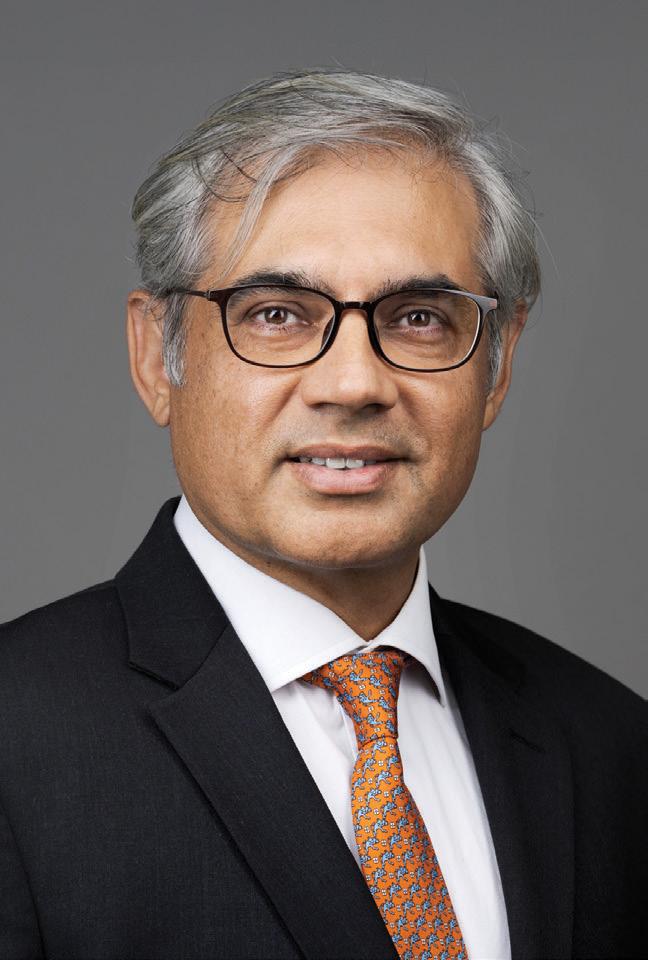
client events like our flagship G3 (next generation) summit, we attempt to educate and introduce key topics such as succession, family constitution and conflict resolution.
Given your deep relationships across culturally and economically diverse regions, what do you think global private banks often
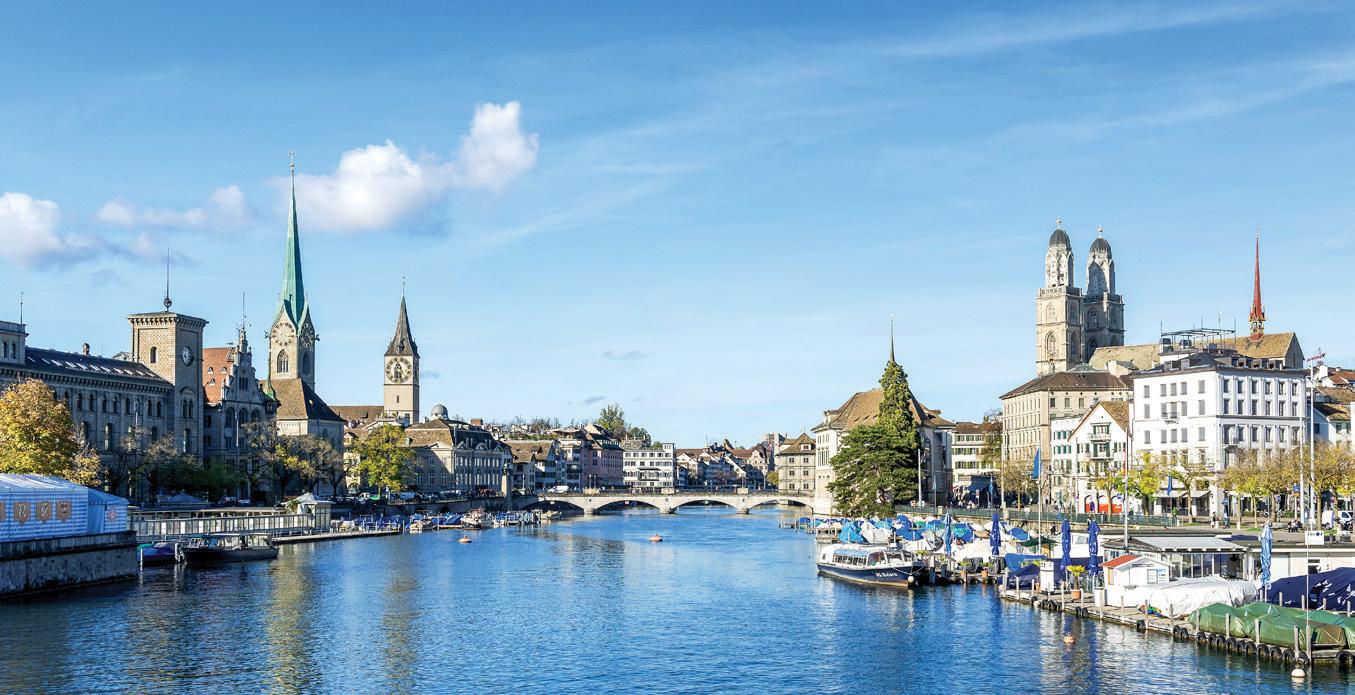
I also learnt the value in client engagement, knowing how they think and what matters to them. This applies across their investment needs, business strategy, family constitution and conflict resolution.”
misunderstand about serving clients from emerging markets?
International private banks often misunderstand the entrepreneurial nature and risk tolerance of emerging market clients. Relationship continuity and the need to understand cultural nuances is paramount to this segment. Habib Bank AG Zurich has the unique advantage of its deep-rooted, multidecade presence in South Asia, Africa, and the Middle East. We have managed to understand and capture product needs such as offering Shariahcompliant solutions, wealth advisory services and borrowing requirements. Our commercial banking presence helps bridge their personal and business needs through our local branches, representative offices and subsidiaries.
Swiss banking is evolving under new regulatory, reputational, and market dynamics. As country head, how are you positioning your institution to uphold the legacy of Swiss banking while meeting the transparency and innovation demands of tomorrow?
It is crucial that we stay close to the regulator, to be on top of any changes in regulatory framework, prepare well for audits and very importantly invest in quality personnel in crucial areas such as compliance and internal audit. An open communication with regulators enables us to understand the standards they hold banks to, thus allowing us to align our internal policies and practices to these expectations.
HABIB BANK AG ZURICH HAS THE UNIQUE ADVANTAGE OF ITS DEEP-ROOTED, MULTIDECADE PRESENCE IN SOUTH ASIA, AFRICA, AND THE MIDDLE EAST
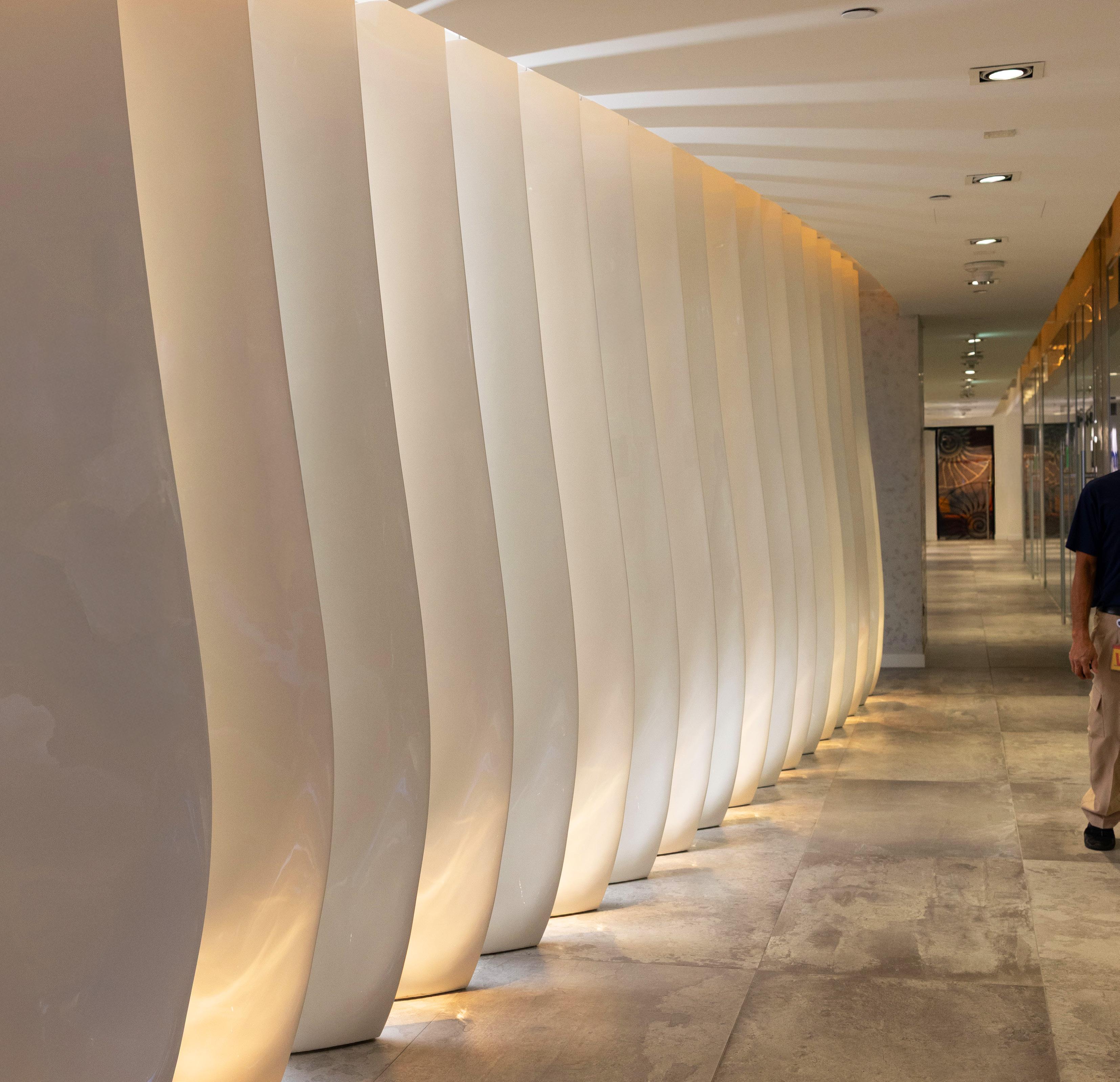


As Gulf carriers ramp up fleet orders and airports race to expand capacity, GE Aerospace is moving quickly to become a cornerstone of the region’s next aviation chapter.
Eighteen months on from its spin-off as an independent company, the aerospace giant is charting a new course: one defined by significant growth, digital innovation, sustainability, and deeper partnerships across one of the world’s most dynamic aviation markets.
In an exclusive interview with Gulf Business , Aziz Koleilat , President and CEO of GE Aerospace for the Middle East, Pakistan, Türkiye and CIS, reveals how the company is reshaping its strategy, why the Middle East is emerging as a global “centre of gravity” for aviation, and what the next decade of flight could look like.
GE Aerospace’s aviation journey began in 1917, when General Electric first started developing aircraft turbochargers during World War I.
In 1941, it built the first US jet engine, the I-A, which powered the Bell XP-59A, America’s first jet aircraft.
From the 1950s through the 1990s, GE became a global leader in commercial and military jet engines, powering aircraft such as the Boeing 747 and F-16 fighter jets.
In the 2000s, it expanded into digital aviation and services, becoming the world’s leading provider of commercial jet engines, powering aircraft such as the Boeing 777 and 787 Dreamliner.
Today, the company’s scale is vast.
“In 2024, 3.4 billion people flew with our engines under wing. Three out of four commercial flights globally are powered by GE Aerospace and our partners: that’s the scale of our immersion with the industry,” says Koleilat.
The company’s separation from General Electric in 2024 marked a turning point.
Many in the industry were watching closely to see how the new, standalone GE Aerospace would perform: and the shift has been particularly significant in the Middle East, a region experiencing some of the fastest aviation growth in the world.
According to IATA’s June 2025 Global Outlook, total Revenue Passenger Kilometres (RPKs) — the standard measure of airline passenger traffic — in the Middle East is expected to grow by 6.4 per cent year-on-year, outpacing the global average of 5.4 per cent and placing the region among the world’s top two fastest-growing aviation markets, just behind Asia-Pacific.

For Koleilat, the separation has brought clarity and focus amid this backdrop.
“By launching as an independent entity, we became very focused on our own mission,” he told Gulf Business.
“Our purpose is simple: we invent the future of flight, lift people up, and bring them home safely. Now all our efforts and power as an organisation are focused on that mission.”
That clarity is driving a more targeted regional strategy. Over the past 18 months, GE Aerospace has expanded its footprint, strengthened customer engagement, and begun building the infrastructure to support future growth.
“The past year has really been about growing our presence and focusing on the customer,” Koleilat explained.
A core part of that strategy is GE Aerospace’s $10m investment in expanding its MRO (maintenance, repair and overhaul) facilities in Dubai and Doha.
But the company’s commitment to the region began long before this, with the launch of the Middle East Technology Centre (MTC) in 2014. This facility was created to study the Gulf’s extreme
operating conditions. “The Middle East has the largest wide-body fleet in the world and a unique hub-and-spoke model around cities like Dubai, Doha and Istanbul,” said Koleilat.
“We created MTC to study the hot and harsh environment — the sand, dust, and temperature — and build the capabilities to support airlines here.”
That early work has paid off.
GE Aerospace now operates on-wing support facilities in Qatar and the UAE and continues to scale its capacity and training to support next-generation fleets, including the GE9X. Airlines in Middle East hold the company’s largest orders for this new engine.
“We’re aligning our resources and capabilities to support fleet expansion ahead of time,” Koleilat said.
“It’s about new capacity, new training, and delivering support when and where customers need it.”
Designing engines that will operate efficiently in the Middle East is unlike anywhere else. GE Aerospace has spent years analysing

Our purpose is simple: we invent the future of flight, lift people up, and bring them home safely.”
the chemical composition of dust from across the region, revealing significant differences between, for example, Dubai, Doha and Riyadh. This research directly influences engine design and maintenance strategies.
“We’ve built models to understand how these conditions affect engine performance,” said Koleilat.
“That led to innovations like our proprietary engine foam wash: essentially bespoke cleaning solutions that remove dust more effectively and extend engine time on wing.”
Those insights shape new products too.
“When we designed the GE9X, all of that information influenced the materials and the design,” he explained. “We combine global technology with local knowledge to create the most effective solutions.”
“Adapting to the local market means adapting to customer needs,” he added.
“If you built a car without air conditioning here, you’d have a problem. It’s the same with engines: you have to design something that can operate in this environment.”
Cutting-edge engineering is only part of the story.
Advanced data tools sit at the heart of GE Aerospace’s support model.
Its Analytics-Based Maintenance (ABM) platform uses digital twins — virtual replicas of individual engines — to predict maintenance needs and extend their operational life.
“Each engine has a digital model,” Koleilat explained. “We forecast performance, project how long it will fly, and work with airlines to predict when maintenance is truly needed. It’s like a car: you might be told to service it after 10,000 kilometres, but depending on how you drive, that could be 5,000 or 15,000.”
Emirates was the first airline to use ABM, and today every airline operating the GE90 on Boeing 777s in the region relies on the technology.
AI takes this predictive approach even further. “We’ve used AI to simulate field performance, predict part needs, and more accurately forecast work scopes,” he said. “It also guides technicians
The journey begins General Electric enters aviation, developing aircraft turbochargers during World War I.
America’s first jet engine
GE builds the I-A jet engine, powering the Bell XP-59A — the first US jet aircraft.
Powering aviation’s golden age
GE becomes a global leader in commercial and military jet engines, powering iconic aircraft such as the Boeing 747 (CF6 engine) and F-16 fighter jets (F110 engine).
Expanding into digital aviation
The company pioneers data-driven services and next-generation engines, powering flagship aircraft including the Boeing 777 (GE90), Airbus A380 (GP7200) and the Boeing 787 Dreamliner (GEnx).
Middle East Technology Centre opens GE launches the MTC in Dubai, dedicated to understanding and engineering for the region’s unique operating conditions.
GE Aerospace officially becomes an independent, publicly traded company, sharpening its focus on growth, sustainability, and innovation in the aviation industry.
Shaping the future of flight
With next-generation propulsion systems like the RISE open-fan program and expanding regional partnerships, GE Aerospace is preparing for aviation’s next era: one defined by greater connectivity and transformative technologies.

to the right areas based on the engine’s history.” But Koleilat stressed that technology is always combined with physical testing to ensure safety and compliance.
“AI is like steroids,” he says. “It gives us speed and more options, but everything still needs to be validated.”
With Middle Eastern airlines entering a period of rapid fleet expansion, GE Aerospace is scaling its workforce and capabilities to match.
The company plans to increase its headcount in its regional on-wing support centres by 30 per cent.
“We also start planning with customers up to two years before a new fleet enters service,” Koleilat said.
“With Riyadh Air, for example, we’ve been preparing for their entry into service well ahead of time.”
Partnerships with airlines and maintenance organisations are central to this approach. GE Aerospace works closely with Emirates Engineering Maintenance Centre and Saudia Technic to expand their maintenance capabilities and develop local expertise. The company has also trained 4,000 students from 50 airlines over the past decade through training programmes, apprenticeships and internships.
“We see this as a partnership — we’re in it together,” Koleilat said. “If you reduce engine removal time by 50 per cent, that means aircraft spend less time on the ground. These are the kinds of efficiency gains we deliver with our customers.”
Scale and efficiency are crucial to GE Aerospace’s future, but so is sustainability.
This region is becoming a real centre of gravity for the global aviation industry: people are coming here, business is growing, and aviation sits at the heart of that momentum.”
IF YOU REDUCE ENGINE REMOVAL TIME BY 50 PER CENT, THAT MEANS AIRCRAFT SPEND LESS TIME ON THE GROUND
In 2021, IATA adopted a global commitment to reach net-zero CO₂ emissions by 2050.
Achieving that is one of the industry’s defining challenges. GE Aerospace is tackling it with a three-phase strategy: now, near and next.
Now: GE Aerospace’s newest commercial engines are 10–15 per cent more fuel-efficient than their predecessors. Digital solutions such as Fuel Insight also help airlines measure and optimise fuel consumption, improving efficiency across fleets. With 3.4 billion passengers flying on GE Aerospace and partner-powered engines in 2024 — about three out of every four flights worldwide — even a 1 per cent fuel saving has a massive impact.
Near: GE Aerospace is actively involved in assessing and qualifying Sustainable Aviation Fuel (SAF). All of the company’s engines can operate on approved SAF blends today and the team also supports industry initiatives for the approval and adoption of 100 per cent unblended SAF.
Next: GE Aerospace is advancing a suite of technologies for the future of flight. This includes the CFM International RISE demonstration production that is developing Open Fan, compact core, hybrid electric and other technologies for at least 20 per cent better fuel burn than current commercial engines. These technologies are also being designed to meet customer expectations for durability. “We’ve completed more than 350 tests so far,” Koleilat says. “These technologies could be available by the second half of the 2030s.”

GE Aerospace’s future in the Middle East is inextricably tied to the region’s ambitions. With massive investments in infrastructure, workforce development, and next-generation technology, the company is ready to help shape the next chapter of aviation in the GCC.
“Aviation has a higher economic impact here than almost anywhere else,” Koleilat says. “It’s the backbone of connectivity, tourism, business, and mega-projects. This region is becoming a real centre of gravity for the global aviation industry: people are coming here, business is growing, and aviation sits at the heart of that momentum.”
In a recent interview with Gulf Business, the PIF’s head of aviation, Muhammad Ovais Yousuf, said the aviation sector is critical to Saudi Arabia’s economic growth as it is highly accretive and delivers a GDP multiplier effect of up to fourfold.
From Vision 2030 in Saudi Arabia to global events like F1, Expos, and World Cups, aviation underpins every pillar of growth. Airlines plan to grow their fleets by more than 5 per cent annually, while governments aim to develop their own MRO capabilities and in-house technical expertise.
“Our role is to be the partner that helps them achieve that,” Koleilat says. “We want to grow with them: closer partnerships, more capability, and deeper collaboration.”
“The potential here is mind-blowing,” he adds. “The partnerships we’re building, the technology we’re bringing, the talent we’re developing: it’s all coming together. And this is just the beginning.”
Aziz Koleilat’s advice to future leaders in the aviation sector is straightforward: walk the talk.
“If you ask someone to do something, make sure you’ve done it yourself,” he says. “Support your team, understand their challenges, and celebrate their successes. I take great pride in seeing people grow. Many of our team who started in the Middle East are now in global roles, and more global roles are being positioned in the Middle East.”
Humility, Koleilat believes, is key to long-term success. “Be humble, empower your people, and always stay focused on delivering value for the customer,” he says. “That’s the formula.”
Koleilat attributes GE Aerospace’s success to a strong internal culture built on three principles: respect for people, continuous improvement, and customer focus.
“Respect is the foundation of any team,” he explains. “Empower people to find solutions and they will deliver. Continuous improvement keeps us evolving, and customer focus ensures what we do matters.”
This people-first approach becomes even more critical as the company grows. “We all win together; or we don’t win at all,” he says. “I’m incredibly proud of the team we’ve built and the relationships we’ve forged with our customers.”
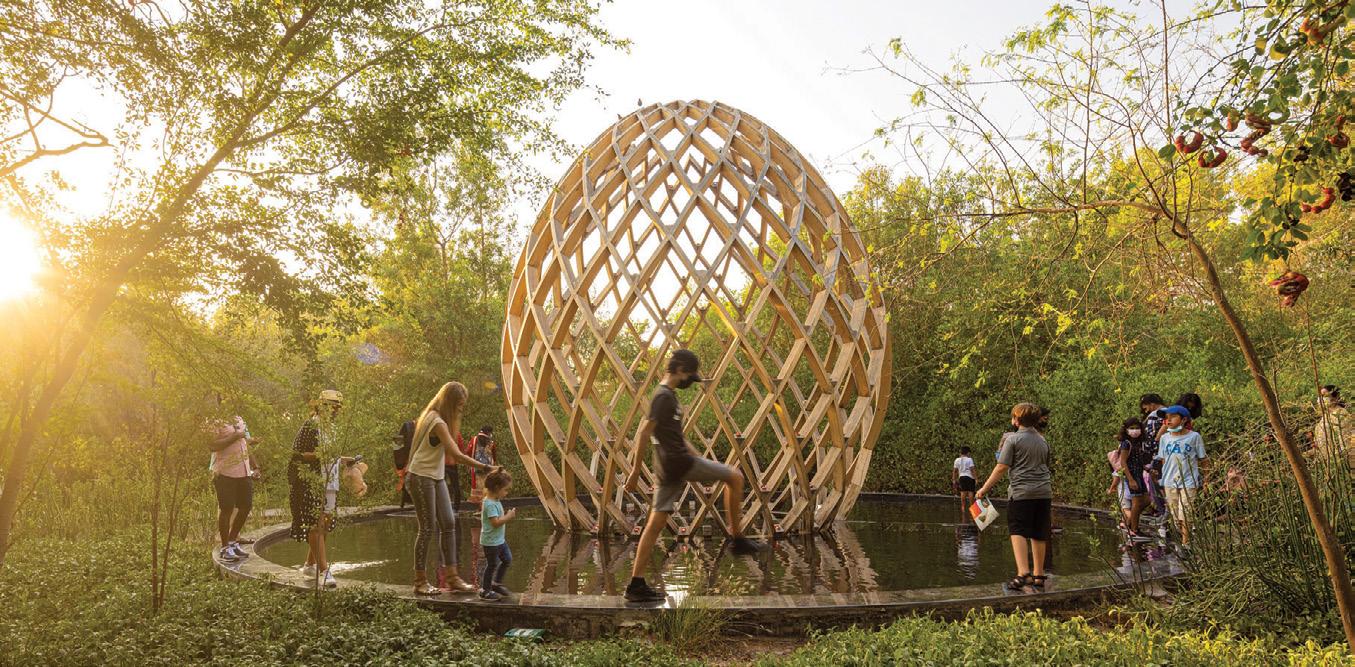
Over the past 15 years, Shurooq has redefined Sharjah’s economic landscape. With an almost Dhs8bn investment portfolio spanning over 50 projects, the authority has transformed the emirate from a manufacturing- and trade-driven economy into a diverse hub for sustainable growth. Ahmed Obaid Al Qaseer, CEO of Shurooq, outlines how the authority’s strategy is positioning Sharjah as a benchmark for balanced development.”Shurooq’s investments are designed to generate long-term value across sectors that contribute to Sharjah’s social and economic resilience.”
Shurooq’s model blends the strategic vision of government with the agility of private enterprise. Through public–private partnerships and alliances with global firms such as Eagle Hills, Diamond Developers, GHM, and The Lux Collective, it has accelerated the development of largescale real estate, eco-luxury hospitality, and sustainable urban projects. Its investment promotion arm, Invest in Sharjah, attracts high-value capital in growth sectors including green manufacturing, logistics, and cultural tourism. Cultural heritage remains a cornerstone of Shurooq’s development vision. Projects such as the Heart of Sharjah have converted historic neighbourhoods into active commercial and cultural hubs. “We see heritage as a growth asset,” Al Qaseer explains. “It adds depth to our destinations and value to our economy.”
For Shurooq, sustainability is an operational
framework. All developments undergo environmental and social impact assessments from planning through delivery. The 7.2-million-sq ft Sharjah Sustainable City exemplifies this approach through solar-powered homes, smart mobility systems, and wastewater reuse. Across the Sharjah Collection of eco-retreats — Al Faya, Kingfisher, Moon Retreat, and the soon-to-launch Nomad — Shurooq integrates renewable energy, minimal-impact designs, and eco-materials. Partnerships with Beeah Group and other green technology leaders embed waste management, energy efficiency, and circular-economy practices across operations.
More than 600 small and medium enterprises operate within Shurooq’s destinations, benefitting from access to new markets and visibility. From retail and food services to logistics and tourism, SMEs form a vital part of the authority’s value chain. “Every development we create is designed to generate opportunity,” says Al Qaseer. “We want local entrepreneurs to grow
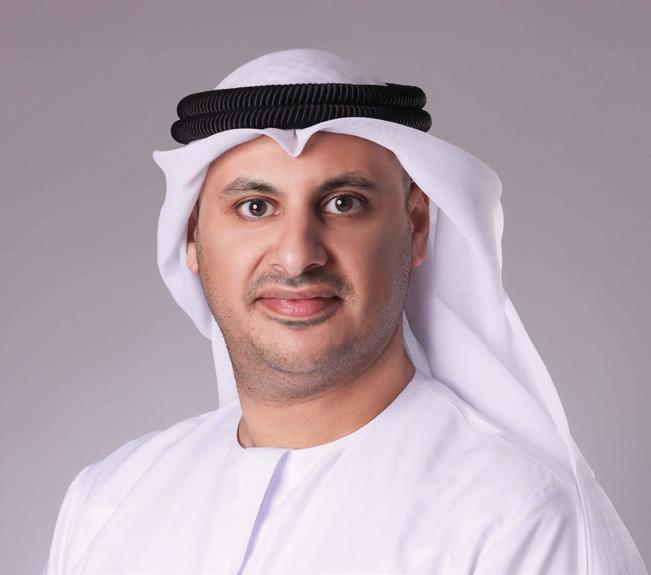
alongside our destinations.” Since establishing Invest in Sharjah in 2016, the emirate has attracted over Dhs96.7bn in foreign direct investment, resulting in 617 projects and more than 46,000 jobs. The focus now lies on sectors shaping the global economy — renewable energy, advanced logistics, agri-tech, and cultural tourism .
Under the vision and guidance of Sheikh Dr Sultan Bin Mohammed Al Qasimi, Supreme Council Member and Ruler of Sharjah, and the leadership of Sheikha Bodour bint Sultan Al Qasimi, Shurooq has built a development philosophy around “place-making”— creating destinations that bring people, culture, and nature together. From Al Noor Island and Al Montazah Parks to the House of Wisdom, each project demonstrates how integrated design can drive civic engagement and cultural vitality. In the eastern region, projects such as Nomad in Kalba and Najd Al Meqsar in Khorfakkan are redefining eco-tourism and coastal hospitality. Meanwhile, Mleiha National Park, within the UNESCOinscribed Faya Palaeolandscape, connects archaeology, ecology, and adventure, showing how heritage and progress coexist.
“Our role is to ensure that progress and preservation move in tandem,” concludes Al Qaseer. “That is how we build economies that endure.”


Indian influence runs through every major sector — from healthcare and education to construction, retail, finance, and technology. Indian-founded and led enterprises have become powerhouses, shaping industries and creating thousands of jobs.
In this special feature, Gulf Business presents 100 of the most recognised Indian business leaders in the UAE and beyond: an alphabetical showcase of visionaries whose innovation and leadership continue to define the business landscape. The list celebrates achievements across economic contribution, influence, expansion, and community impact.
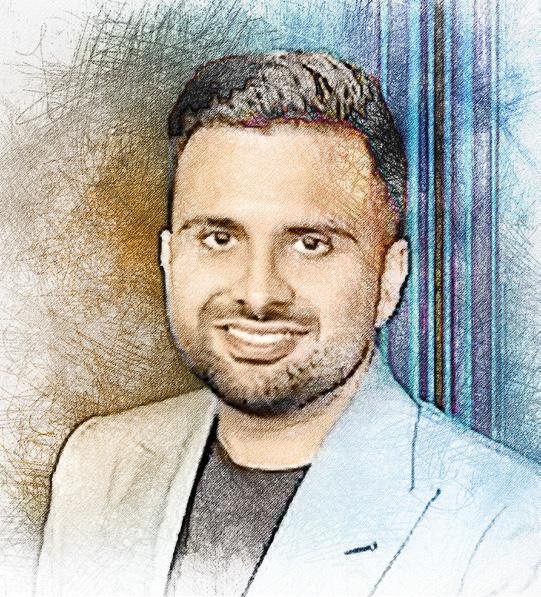
Sajan represents the second generation of leadership driving one of the UAE’s most diversified conglomerates in the region. Having joined the family business around the age of 14, he learned its operations from the ground up before leading major expansions across retail, home solutions and real estate.
Under his direction, Danube launched ventures such as Danube Home and Danube Sports World, which have become household names across the region. Armed with a marketing degree from the American University of Sharjah and executive education from Harvard, Sajan is now steering Danube towards a data-driven, AI-enabled future focused on smarter real estate and customer experience.
Chilwan leads the UAE’s largest Islamic bank by assets. With nearly three decades of experience across conventional and Islamic banking, he has played a pivotal role in elevating Islamic finance on the global stage.
Under his leadership, DIB has expanded its footprint internationally, emerging as a driving force in Islamic finance while reshaping the regional financial landscape. He oversees assets exceeding $95bn, a market capitalisation of over $14bn, and a workforce of more than 10,000 employees, reflecting his focus on sustainable growth and operational excellence. A strong advocate for integrating Islamic banking into the broader global financial system, Chilwan has spearheaded innovations that bridge traditional finance with Sharia-compliant practices.
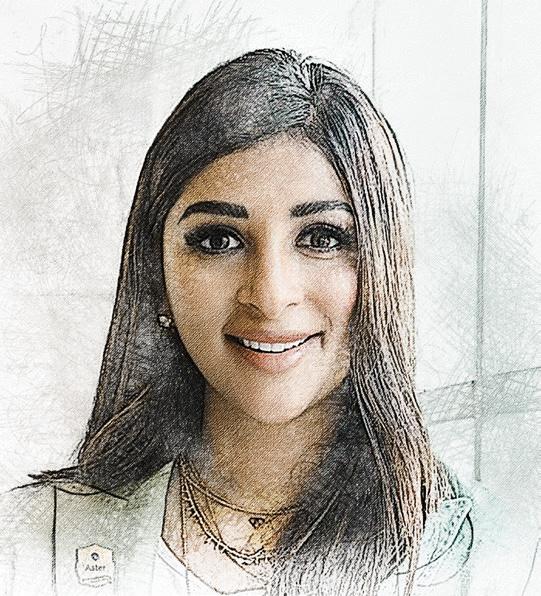

Moopen oversees one of the region’s biggest healthcare companies. Just this year, Aster DM Healthcare has been ranked as the second largest healthcare provider in the UAE and 15th largest in the EMEA (Europe, Middle East and Africa) region by revenue, according to Healthcare Business International (HBI).
Moopen joined the company in 2013 as a director, and since then has been instrumental in charting its direction. Aster operates across all five countries in the GCC and Jordan, delivering a full-spectrum of care through hospitals, clinics and pharmacies. A chartered accountant by training (via the Institute of Chartered Accountants of Scotland or ICSA), she is also an alumni from the University of Michigan.
Member of corporate office, Emaar
As a former management consultant from India, Jain has a wealth of experience across real estate and banking industries. Following a four-year stint as head of finance for Dubai Bank, Jain began his career at Emaar as the company’s chief financial officer in 2006, shifting from his previous role as head of finance at Dubai Bank. Over the years his leadership in finance and operations has been pivotal in driving Emaar's growth and expansion, and, in 2017, he was appointed group COO and CEO of Emaar’s Dubai operations. In 2023, he took on the role of group CEO of Emaar Properties, overseeing the company's diverse portfolio of residential, commercial, and hospitality projects. Jain is a chartered accountant from the Institute of Chartered Accountants of India and holds a CFA Charter from the CFA Institute.
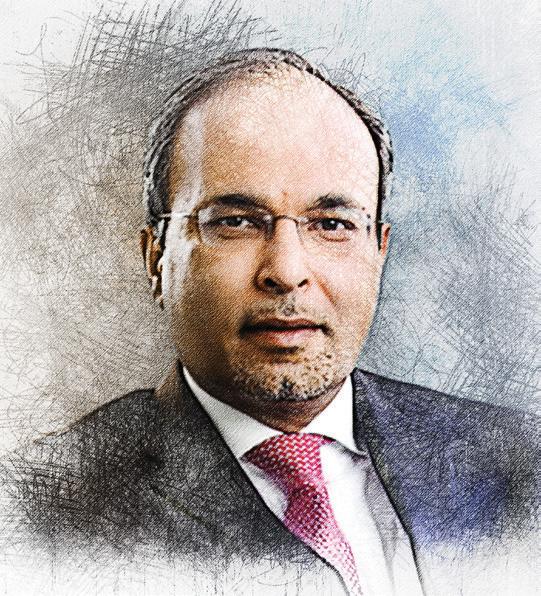
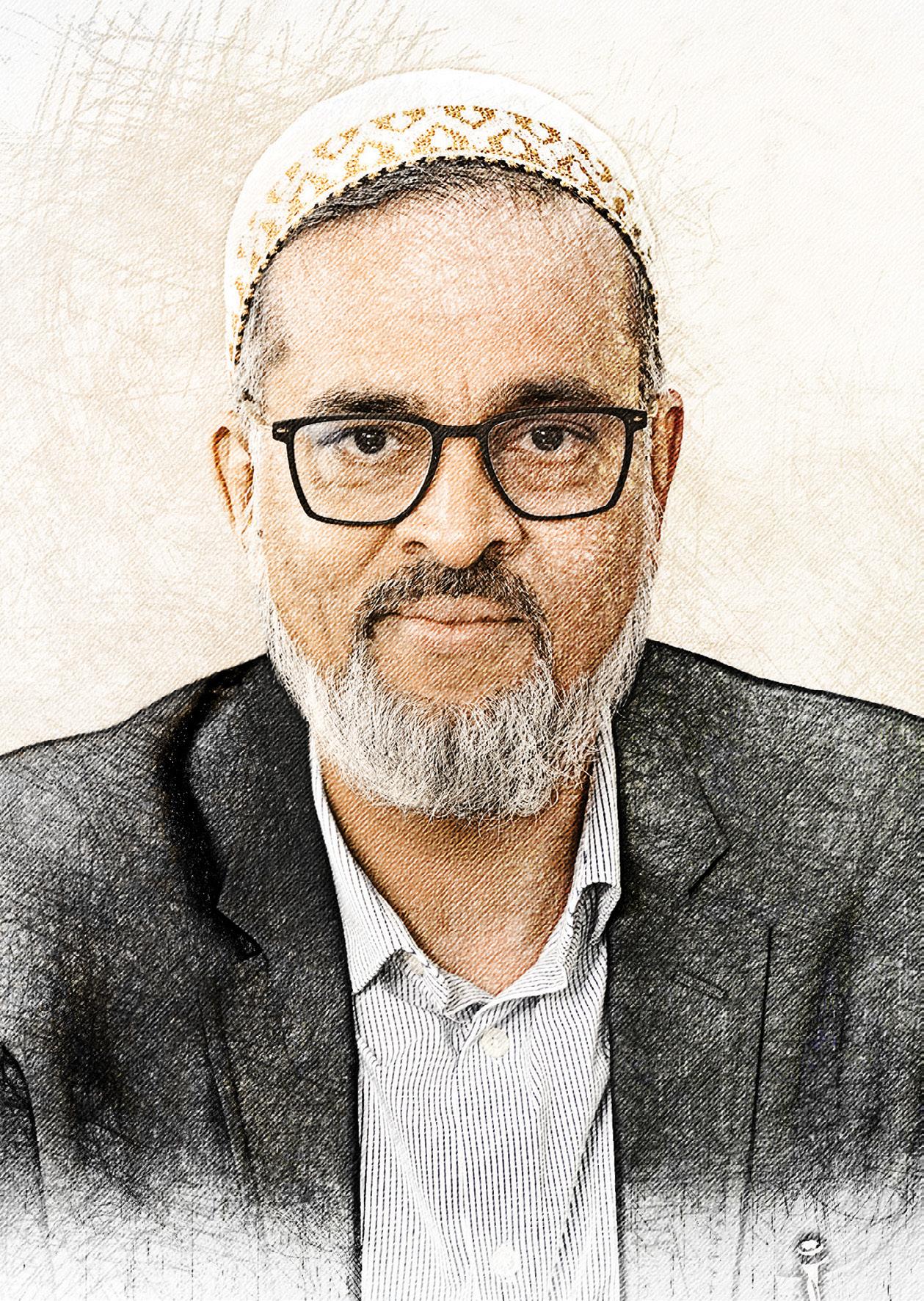
As chairman of the Sterling Group and a key figure behind Fakhruddin Holdings, Dr Fakhruddin has carried forward a generational legacy and expanded it into a globally recognised conglomerate that fuses tradition with innovation.
Starting in the family business at 17, he is behind the success of subsidiaries such as Sterling Perfumes, Premier Cosmetics, and Premier Plastics, serving consumers across the Middle East, Africa, Europe and Asia.
Under his leadership, Sterling has evolved from a regional enterprise into a global contender, with advanced R&D laboratories, automated production facilities, and certifications including GMP, ISO, Halal, and FDA. Dr Fakhruddin led the Group’s digital transformation, scaling production from 250 pieces a day to hundreds of millions annually, exporting to more than 130 countries.
STERLING HAS EVOLVED FROM A REGIONAL ENTERPRISE INTO A GLOBAL CONTENDER, WITH ADVANCED R&D LABORATORIES, AUTOMATED PRODUCTION FACILITIES, AND SEVERAL KEY CERTIFICATIONS.
During the COVID-19 pandemic, he swiftly pivoted Sterling’s resources toward sanitiser manufacturing, ensuring affordable, safe products when they were needed most.
His achievements have earned him multiple honours, including the Lifetime Achievement Award at Beautyworld Middle East 2023, the Divya Chakra Award from the Consulate General of India in the UAE, Global Indian of the Year 2023–24, and the FTI EA International Excellence & Global Leadership Award 2024. He also holds a professional doctorate in international business from the European International University – Paris.
What defines Dr Fakhruddin’s vision is his drive to make “Made in UAE” a mark of pride worldwide. With Sterling’s products reaching more than 130 countries and serving more than a billion customers, his goal remains clear: to make quality, innovation, and excellence accessible from Dubai to the world.
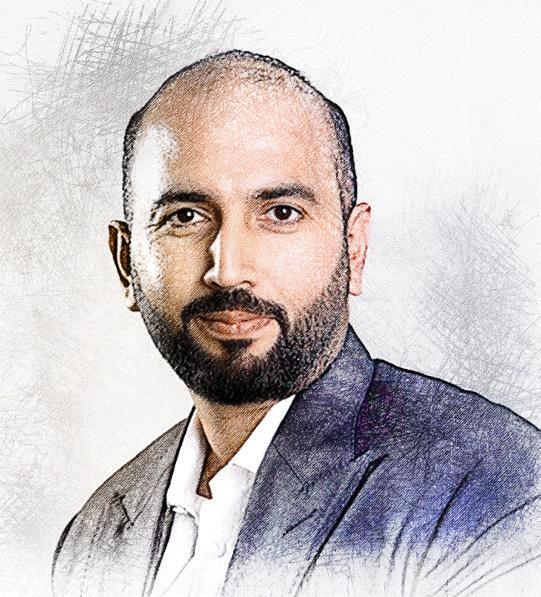
Founder and managing partner, Macwise Capital
Nair is a Dubai-based entrepreneur, global investor and venture strategist. As the founder and managing partner of Macwise Capital, he drives investments across high-potential sectors, including healthtech, wellness, fintech, AI, sports, and emerging technologies — helping startups scale from the UAE to global markets with capital, advisory, and go-to-market (GTM) support. He is also the chief operating officer at Verve Wellness, where he is advancing personalised health optimisation through advanced diagnostics, regenerative therapies, and tailored longevity programmes. He further leads The Experience Store as CEO, transforming how consumers experience wellbeing through premium and meaningful journeys. Nair’s entrepreneurial footprint extends into sports and community development as founder of Macwise Titans, a UAE cricket team.
CEO, Andersen UAE
With over 20 years of experience, Chaturvedi has built a career serving large and complex global clients, specialising in areas such as VAT, GST, FATCA, SOX and direct tax matters. His expertise spans both public and private sectors across the Middle East and Asia. Chaturvedi is also the chairman of the Institute of Chartered Accountants of India (ICAI) Dubai Chapter, where he has held various leadership roles, including vice chairman and secretary. He is a chartered accountant, an associate member of CPA Australia, and a Fellow of the International Accountant (UK). He is also a Prince2-certified professional. Andersen UAE has expanded its presence, offering a range of services including direct and indirect tax advisory, international tax structuring, and compliance. Chaturvedi is also a recognised thought leader, regularly contributing to local industry discussions on tax and economic development.
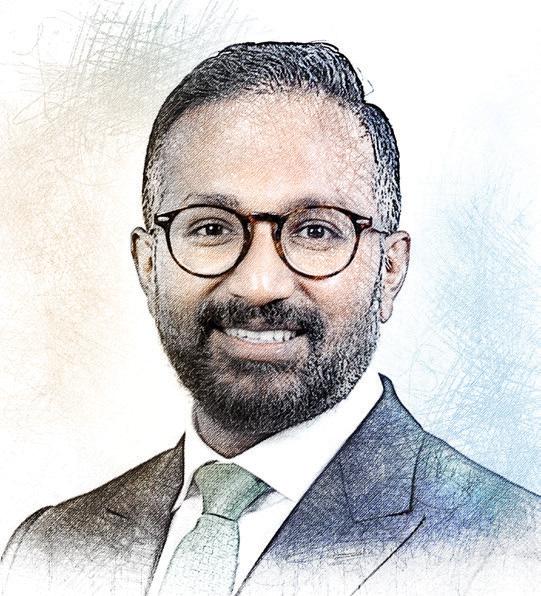
CEO,
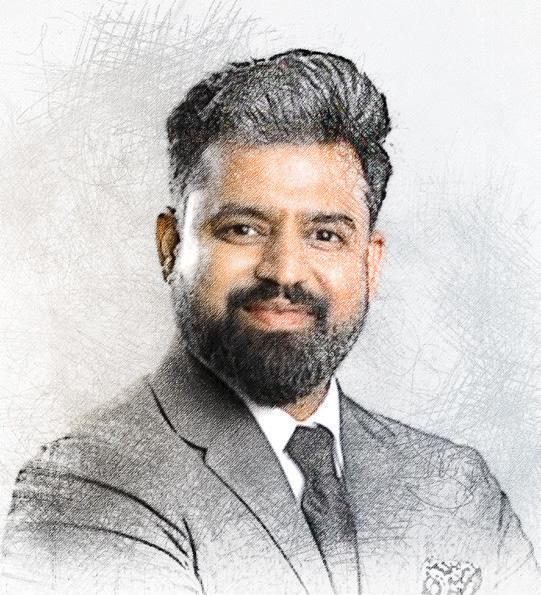
Koshy has risen from chief operating officer to chief executive officer of Inception, an Abu Dhabibased AI company within the G42 ecosystem. The firm develops domain-specific AI products designed to transform sectors such as healthcare, finance, and government.
Before joining Inception, Koshy was group chief operating officer at M42, where he played a key role in the merger of G42 Healthcare and Mubadala Health, forming the M42 group. Earlier, as CEO of G42 Healthcare, he led initiatives in genomics, diagnostics and digital health, helping establish the UAE’s largest national biorepository and advance the Emirati Genome Program.
Koshy is also listed on the leadership of Malaffi, the Abu Dhabi Health Information Exchange, contributing to efforts that enhance healthcare delivery and data interoperability in the region.
Founder and managing partner, Ashish Mehta & Associates
Mehta's multi-jurisdictional law firm serves multinationals, regional businesses and highnet-worth clients in the UAE, India and UK.
He is credited as being one of the first licensed independent Indian lawyers in Dubai and holds qualifications to practice in India, the UK and the UAE (including before the DIFC Courts).
Mehta's expertise spans corporate and commercial law, banking and finance, real estate, restructuring, arbitration, mediation, intellectual property and wealth-management.
He is a fellow of the Indian Council of Arbitrators and his firm provides pro-bono legal aid to distressed Indian nationals in the UAE.
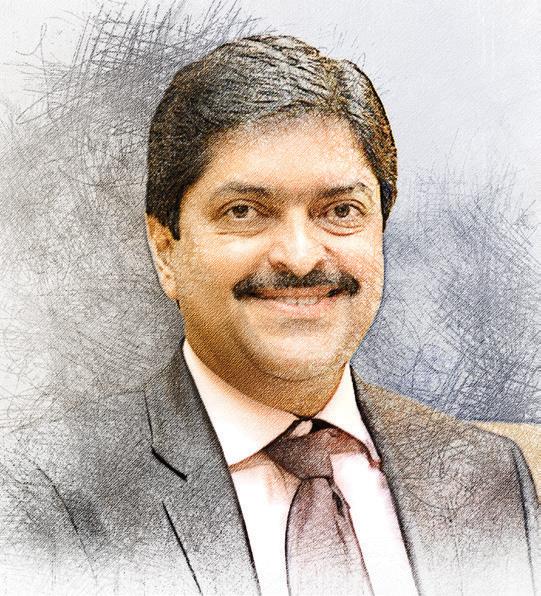

ggarwal, a visionary entrepreneur, is the founder and chairman of one of the UAE’s fastest growing real estate firms, BNW Developments. With a decade-long career as a chartered accountant, Aggarwal’s expertise in financial management laid the groundwork for his transition into real estate.
Driven by a commitment to ethical guidance, Aggarwal established BNW, swiftly transforming it into a reputable 360-degree real-estate consulting and development organisation boasting a group of multitalented consultants, CPAs and legal advisors. His business philosophy blends deep industry insight with a forward-looking mindset, driving BNW Developments’ assets under development to Dhs22bn.
Known for his strategic foresight, Aggarwal is driven by a passion for creating future-ready communities. He aims to create world-class developments that generate long-term value for investors and stakeholders. With a keen eye for opportunity and a commitment to excellence, his business philosophy blends deep industry insight with a forward-looking mindset, positioning the company at the forefront of luxury real estate innovation.

Group CEO, BPG Group
Chairman and founder of the House of Ashish Vijay
Vijay is the driving force behind House of Ashish Vijay, a Dubai-based group spanning Meraki Gems & Jewellery, Tiara Gems, and AV Globale. The latter, AV Globale, is known for having organised gemstone auctions and tenders at the likes of the Dubai Diamond Exchange. With deep roots in his family’s gemstone legacy, he has built a global reputation for sourcing, cutting and auctioning some of the world’s finest precious stones.
A director of the International Colored Gemstone Association (ICA) Dubai Chapter, he also founded Seiko Financial Services in 2016 to mentor and fund emerging ventures, particularly women-led startups. Combining entrepreneurship with philanthropy, Vijay continues to champion transparency and innovation across the jewellery and investment sectors.
Bhojani leads BPG Group, one of the Middle East’s leading integrated marketing and communications networks. With over 40 years of experience spanning marketing services, media, private equity and real estate, he has led BPG since 1991, consolidating its operations across advertising, public relations, design, activations, media asset management and digital verticals, in the Middle East and North Africa region. Bhojani played a central role in integrated communications campaigns for high-profile initiatives such as the Dubai Shopping Festival and Dubai Summer Surprises, as well as the knowledge economy hubs of Internet City and Media City. Holding positions on the founding board of Endeavor UAE and the International Institute of Tolerance, he is widely regarded as one of the region’s most influential business leaders.
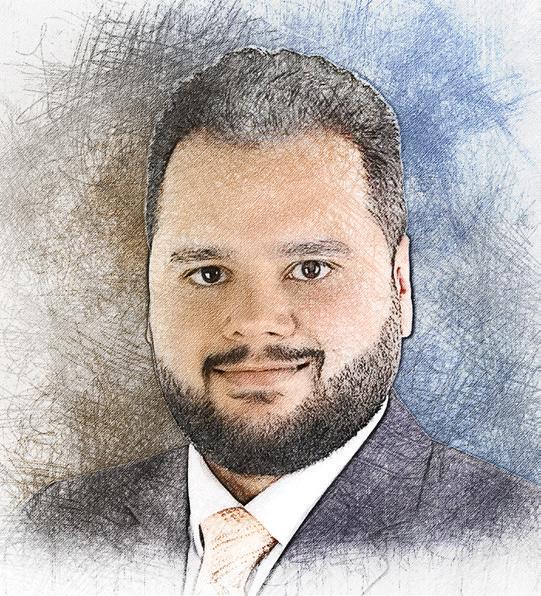
Founder
and CEO, InsuranceMarket.ae
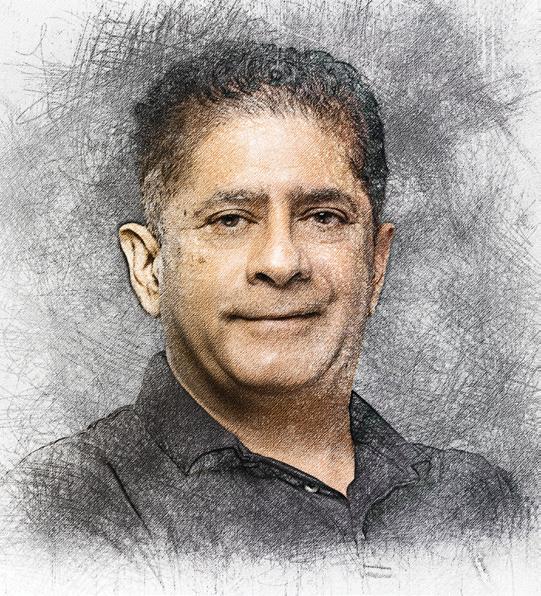
Babur is the founder and CEO of InsuranceMarket.ae, the UAE’s leading digital insurance platform. Building on his family’s brokerage legacy, he launched the company in 2010 with a mission to simplify how consumers access and manage insurance.
Under his leadership, the brand has become synonymous with innovation and trust, driven by its iconic mascot, Alfred.
Babur also spearheaded the creation of myAlfred, a digital rewards platform that enhances customer engagement and loyalty. Combining technology, data and personalisation, he continues to shape the UAE’s evolving insurance ecosystem through a customer-first, digital-driven approach.
Dubai and India share an exceptional relationship built on mutual trust and a commitment to economic integration. India holds an important position as a key trading partner for Dubai. The value of non-oil trade between our markets exceeded Dhs142bn during the first nine months of 2024, achieving year-over-year growth of 19 per cent."
Ahmad bin Byat, vice chairman of Dubai Chambers
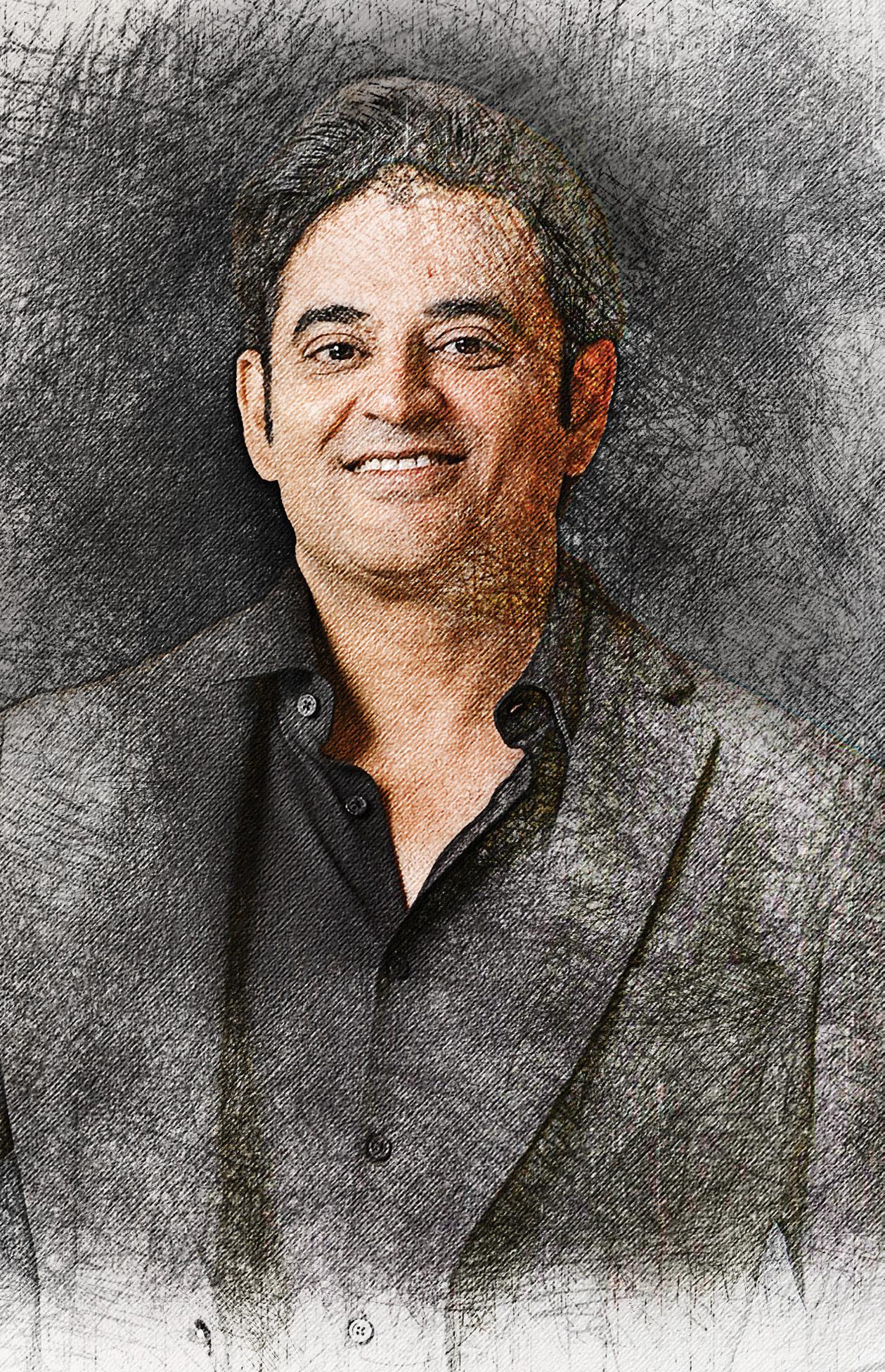
Rahman is the founder and chairman of ORO24 Developments, a Dubai-based real estate company focused on sustainable, affordable, and lifestyle-driven communities. With over 23 years of experience across residential, commercial, retail, and serviced apartment projects, Rahman has successfully navigated three market cycles, earning recognition for his disciplined governance and riskmanagement approach.
Since launching ORO24 in 2021, Rahman has overseen eight new developments, adding to a wider portfolio of 32 projects and more than 11,750 units
RAHMAN HAS OVERSEEN EIGHT NEW DEVELOPMENTS, ADDING TO A WIDER PORTFOLIO OF 32 PROJECTS AND MORE THAN 11,750 UNITS WORTH OVER DHS11.5BN IN TOTAL SALES.
worth over Dhs11.5bn in total sales. His developments are spread across key Dubai communities such as Arjan, Business Bay, Jumeirah Village Circle, Al Furjan, Liwan, and Sheikh Zayed Road. The group’s flagship community, TORINO by ORO24 in Arjan, features 625 apartments designed for urban professionals and families, combining quality amenities with energyefficient features.
Rahman’s integrated business model — spanning land acquisition, planning, design, finance, and delivery — reflects his belief in long-term value creation. Beyond development, he has introduced innovative payment solutions such as the 1 per cent payment plan to enhance housing accessibility and support enduser ownership.

Dr Moopen, founder and chairman of Aster DM Healthcare, is a leader who has redefined healthcare delivery across the GCC and India. A gold medalist in MBBS and a postgraduate in general medicine from Calicut Medical College, Kerala, Dr Moopen began his professional journey as a medical lecturer before moving to Dubai in the 1980s, recognising the potential to strengthen the region’s evolving healthcare ecosystem.
From a single clinic established in 1987, he has led Aster DM Healthcare’s transformation into one of the largest integrated healthcare providers, with 962 facilities across seven countries, employing over 30,000 professionals, including over 5,200 doctors and more than 10,000 nurses. In the UAE, Aster stands as the second-largest healthcare company, playing a pivotal role in the region’s healthcare advancement.
Guided by his belief that healthcare is foremost a service dedicated to saving lives, Dr Moopen has built Aster DM Healthcare on the principles of accessibility, affordability,
ASTER
NOW PLANS TO DEPLOY APPROXIMATELY SAR1BN ($250M) OVER THE NEXT TWO–THREE YEARS TO EXPAND ITS FOOTPRINT ACROSS THE GCC.
and quality. In April 2024, Aster DM Healthcare strategically demerged its India and GCC operations to create two independently managed entities, enabling focused regional growth and unlocking long-term value. The India business remains listed on NSE and BSE, while in the GCC, a Fajr Capital-led consortium acquired a significant stake, with the Moopen family retaining operational control. Aster now plans to deploy approximately SAR1bn ($250m) over the next two–three years to expand its footprint across the GCC, with a focus on making affordable healthcare accessible to the majority of the Saudi population. Beyond organisational growth, Dr Moopen has championed social impact through Aster Volunteers, a global network of more than 95,000 volunteers that has positively impacted over seven million people in the past eight years. Launched in Dubai in 2012, the initiative has extended across the GCC and Africa through mobile medical units and community outreach programmes, reflecting Aster’s commitment to advancing the UN sustainable development goals of good health and wellbeing. Through his leadership, Dr Moopen continues to combine professional excellence with a deep sense of purpose, ensuring that Aster DM Healthcare remains committed to sustainable healthcare development, accessible medical services, and meaningful humanitarian impact across all the regions it serves.
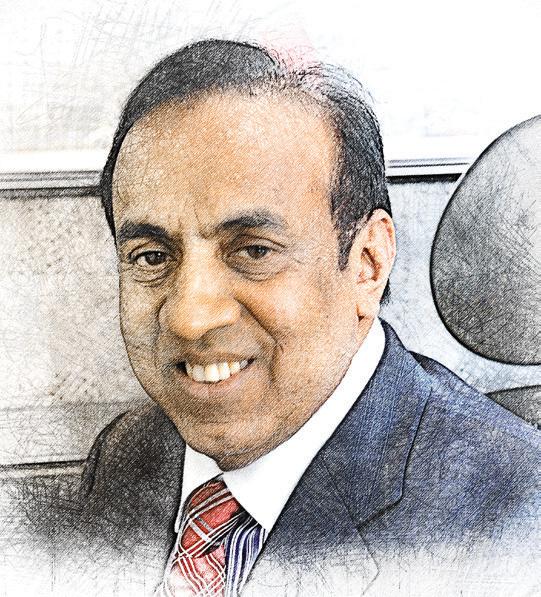
Chairman, Hoko Agency
Founder and chairman, RP Group
Dr Pillai is a Dubai-based Indian billionaire and the founding chairman of RP Group, a diversified conglomerate with interests spanning construction, infrastructure, hospitality, healthcare, retail, and real estate.
Beginning his entrepreneurial journey in Saudi Arabia in the late 1970s, Pillai expanded RP Group’s footprint into multiple GCC markets, executing over $20bn in projects in the past decade.
In December 2024, he was conferred Bahrain’s Medal of Efficiency (First Class) — becoming the only foreign national awarded the honour — in recognition of his contributions to the kingdom’s development and investment climate.
Singh leads Hoko Agency, a globally recognised creative and marketing firm that has delivered world-class global events and premium brand activations for the likes of Red Bull, LVMH, DP World and more. Known for for his unique leadership and future-forward thinking, Singh not only crafts memorable and elite events across entertainment, finance, technology and global sports, but he has also explored the world of cutting-edge technology. Earlier this year, he co-founded Hum(AI)n Assets, a pioneering content production platform that fuses AI efficiency with human creative intelligence, along with its blockchain-powered extension, Hum(AI)n Web3. Operating from his base in the Middle East, he is building scalable ecosystems that merge technology, talent, and community across creative industries.

Founder and CEO, Conares
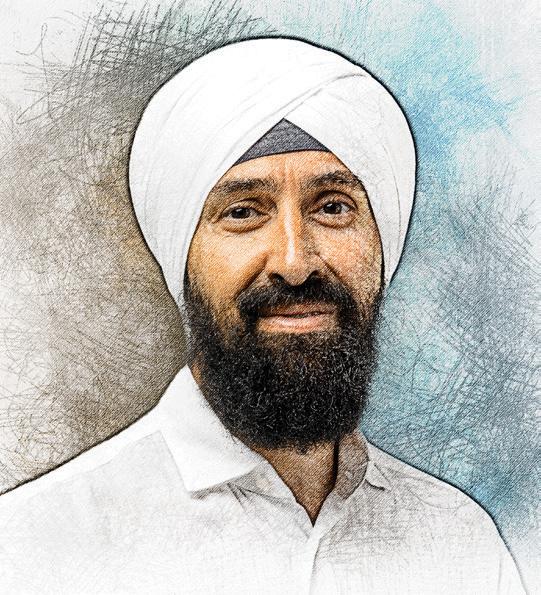
Bhatia's entrepreneurial journey began in 1983 when he moved to Dubai at the age of 18. He started his career as a pickup driver and salesman, earning a modest salary of Dhs1,500. Inspired by Bollywood legend Amitabh Bachchan, Bhatia was determined to create his own identity and eventually established his own trading firm in 1988. His hard work and perseverance led to the establishment of Conares, a testament to his entrepreneurial spirit and vision. Since founding the company in 1988, Bhatia has transformed it from a modest trading firm into a leading steel producer. Under his leadership, Conares manufactures steel rebars, pipes, and colour-coated coils, contributing to major UAE projects, including Etihad Rail and Expo 2020. Beyond steel manufacturing, Bhatia has business interests in the food and beverage and real estate sectors.
Founder and MD, Chanakyatse Consultancy
An accomplished advocate, Chettur is also an entrepreneur and philanthropist with more than 32 years of experience across the Asia-Pacific and Middle East regions. She helms Chanakyatse Consultancy, a management consultancy operating in both the UAE and India, and serves as senior associate at Mohamed Salman Advocate & Legal Consultants in Dubai. She possesses a diverse legal portfolio, encompassing corporate, criminal, civil, maritime, commercial, family, labour, and real estate law, as well as arbitration, intellectual property, construction law, wills and probate, litigation, execution of foreign judgments overseas, bankruptcy, company incorporation, corporate restructuring, and debt recovery cases. She is registered with the Dubai International Financial Centre (DIFC) Courts and Abu Dhabi Global Market (ADGM) Courts.
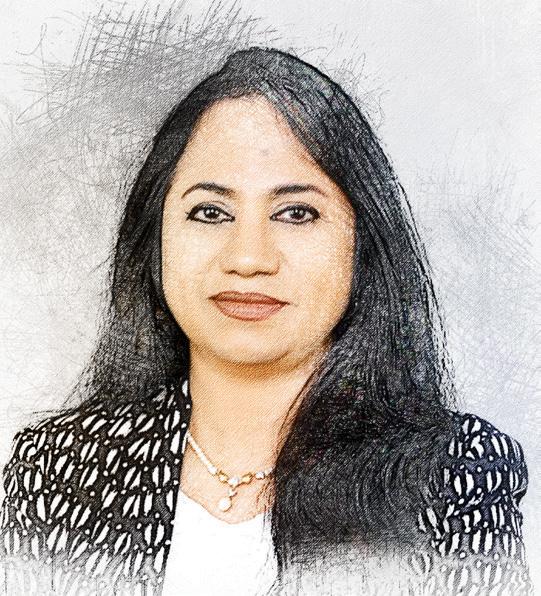
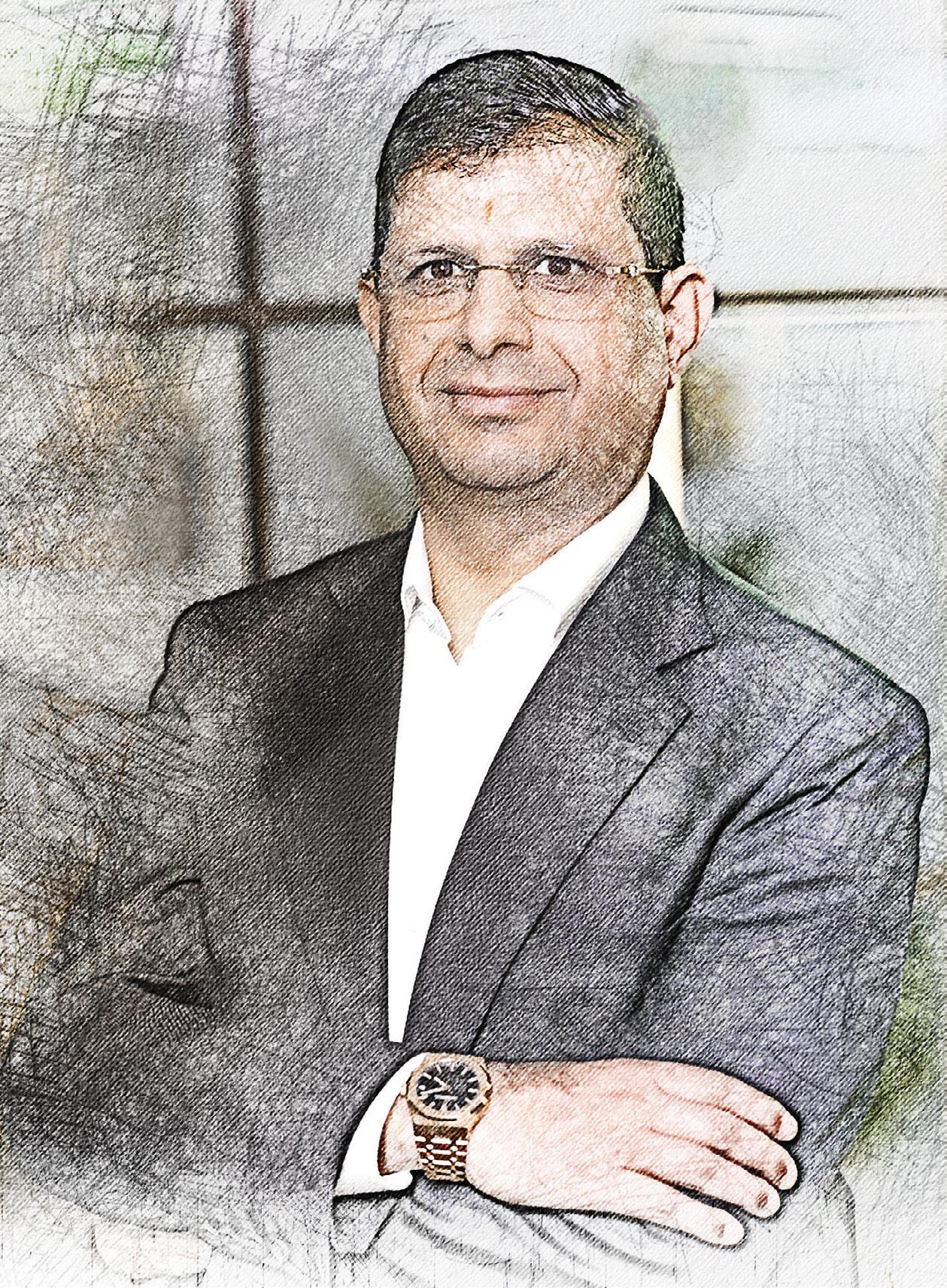
Few stories capture the spirit of ambition and persistence quite like that of Bal Krishen, chairman of The Century Group. Rising from humble beginnings, he began his career at Century Financial as a customer service executive — an experience that shaped his belief that true leadership is rooted in empathy, integrity, and authenticity. His curiosity about global markets and instinct for opportunity soon made him central to the company’s growth story.
Founded in 1989, Century Financial has evolved into one of the UAE’s most respected financial institutions, licensed by the Securities and Commodities Authority (SCA) and with offices across the Emirates. Under his leadership, the company expanded beyond investment services into a broader ecosystem of finance, wealth, and technology. Century Private Wealth provides tailored asset and wealth management, Century Bank Brokers delivers retail and commercial banking products, while Savington Insurance extends coverage across general and life insurance.
Recognising technology’s pivotal role in finance, Century Infotech was created to drive innovation through data, AI, and digital transformation. The Century Trader App gave investors a transparent, mobilefirst way to access global markets, while ventures such as Century IQ Solutions (Mumbai) and Kroft Real Estate further diversified the Group’s footprint across finance, technology, and property.
Guided by his “S3 Principle” — Simple, Scalable, and Shaped for the Future — Krishen envisions a single integrated network that meets every financial need under one trusted brand. Beyond business, he supports initiatives that promote financial literacy, sustainability, and youth empowerment in his home region of Jammu & Kashmir.
By embracing this approach, Krishen has transformed Century from a single investment firm into a diversified financial powerhouse, defining success through innovation, inclusion, and impact.
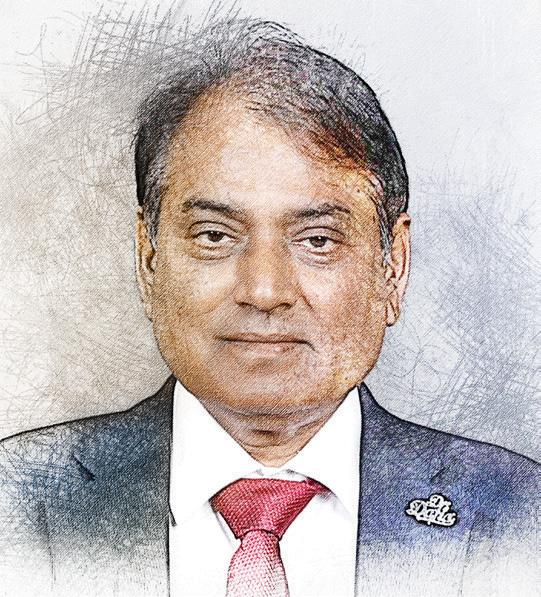
Chairman and MD, Dana Group
A former general surgeon, Dr Dana shifted from medicine to business in 1991, when he founded the Dana Group in Dubai. Over the past three decades, he has built the company into a diversified enterprise with interests in steel manufacturing, oil and lubricants, retail, healthcare, and hospitality. Under his leadership, Dana Group operates trading and manufacturing facilities in the UAE and India, supported by associate offices across West and South Africa. The group employs hundreds of professionals and is recognised for producing flat steel, galvanised and colour-coated coils, sandwich panels, cable trays, formulated lubricants, and water heaters and chillers.
Dr Dana has positioned Dana Group as one of the UAE’s respected industrial players, combining innovation with disciplined growth across multiple sectors.
Former vice chairman, Eros Group; and MD, Satguru Holdings
With over four decades in the industry, Babani has been instrumental in transforming Eros Group into a leading distributor and retailer of global brands such as Samsung, Hitachi, TCL, and Sonos across the Middle East. He joined Eros in 1981 as a marketing manager when the company had just eight employees. By 2002, he had risen to CEO, overseeing significant growth and expansion. Under his leadership, the company diversified its product offerings and expanded its retail footprint, including the development of Eros Digital Home and IdeaHub stores. Babani's strategic vision and emphasis on customer-centric retail have been key drivers of Eros Group's success. In 2022, Babani transitioned from his executive role at Eros Group to pursue new ventures in real estate development through Satguru Holdings.
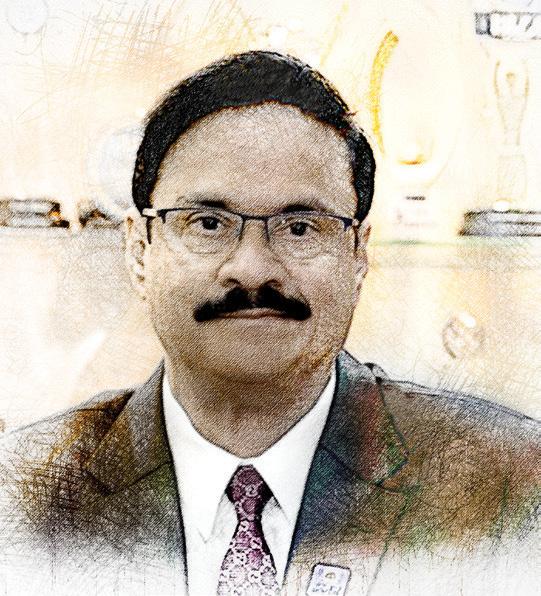
DILEEP KUMAR
Chairman and MD, Al Adil Trading

Known widely as the ‘Masala King’, Datar has been the driving force behind the rise of Al Adil, one of the region’s most recognisable spice and grocery brands. What began in 1984 as a small shop in Bur Dubai has grown into a thriving network of 43 stores across the GCC, supported by two spice factories, two flour mills, and a robust import-export business.
Today, the group manufactures over 700 products under its flagship brand, Peacock, catering to a diverse customer base across the region. Beyond business, Datar is equally known for his humanitarian spirit. During the Covid-19 crisis, he made headlines for offering free air tickets to stranded Indian nationals in Dubai who were unable to afford their journey home, reinforcing his reputation as both a successful entrepreneur and a compassionate community leader.
Founder and chairman, Heilbronn Properties
A civil engineer by profession and a self-taught architect, Kumar founded Heilbronn Contracting and Heilbronn Properties in Dubai in 2002, transforming a modest engineering office into one of the city’s most respected development and construction firms. Over two decades, he has delivered a diverse portfolio of roads, infrastructure, villas and residential towers distinguished by exceptional build quality and precision. Renowned for projects that appeal to affluent families and ultra-high-net-worth individuals, Kumar has aligned Heilbronn’s growth with Dubai’s rise as a global real estate hub. With more than 30 years in the UAE, his journey mirrors the city’s own evolution — from emerging market to world-class metropolis. Today, Heilbronn is expanding its footprint with more than 1.6 million sq ft of residential space under development across key city locations.
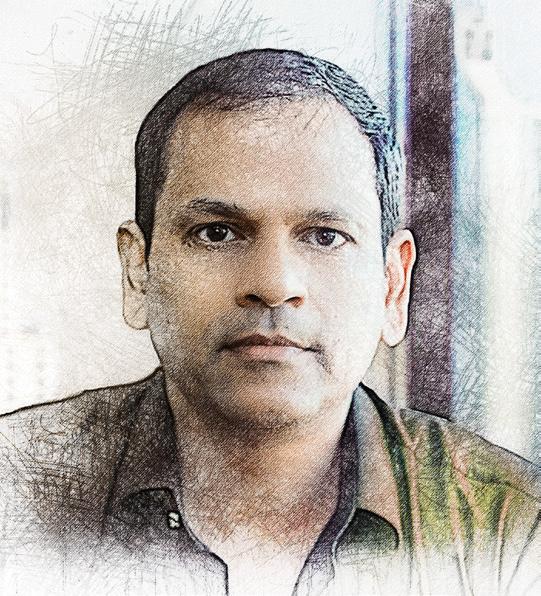
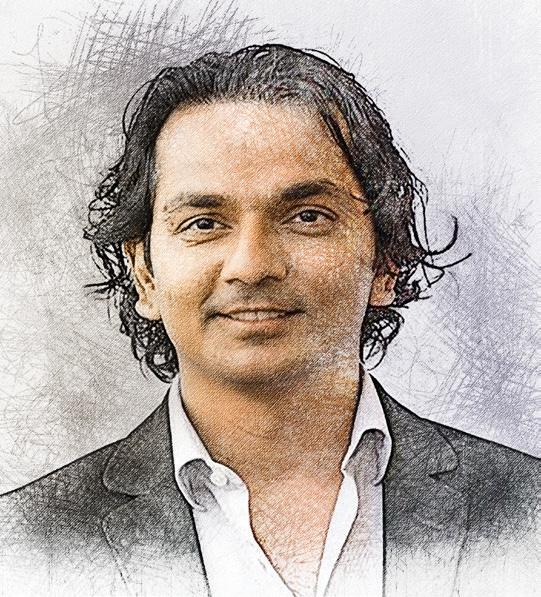
CEO, Decisive Zone
Serial tech entrepreneur and founder, ai.tech
Turakhia is an Indian-born serial entrepreneur, investor, and self-made billionaire whose ventures span online advertising, domain services, and AI-driven businesses. A self-taught coder who began programming at nine, he went on to build and exit multiple global enterprises, including Directi (sold for $160m), Skenzo (valued at $200m), and Media.net (sold for $900m in 2016 and re-acquired in 2023). His latest venture, Ai.tech, builds companies that harness artificial intelligence to drive scale and innovation, employing more than 1,600 people worldwide. Turakhia continues to redefine entrepreneurship through technology-led disruption and long-term value creation, while advocating for data-driven business models that empower global talent and sustainable digital growth.
Affectionately known as “Mr Golden Visa", Parruck heads Decisive Zone, one of Dubai’s leading business setup consultancies. He has helped thousands of entrepreneurs and investors establish a foothold in the UAE through expertise in company formation, visa facilitation, and corporate advisory.
Since founding the firm in 2019, Parruck has grown it from a two-person startup into a 200strong team serving more than 5,000 clients. Under his leadership, Decisive Zone has become synonymous with transparency, innovation, and customer-centric service: empowering businesses to navigate the UAE’s evolving commercial landscape and contributing to the country’s thriving entrepreneurial ecosystem.
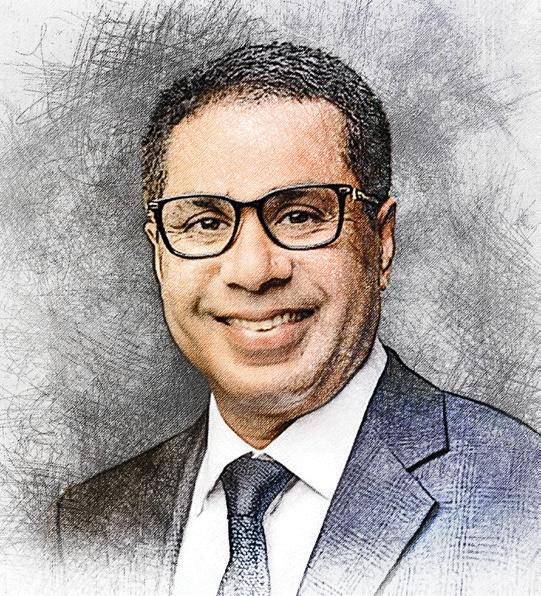
Founder and chairman, KEF Holdings

Kottikollon heads the diversified industrial and infrastructure group with interests spanning prefabricated technologies, healthcare, education and manufacturing. Starting from trading and manufacturing roots in the 1990s, he built Emirates Techno Casting and later KEF into a technology-driven conglomerate focused on modular construction, off-site manufacturing and healthcare infrastructure. KEF has executed projects across the Gulf and India and invested in sustainable construction technology. Kottikollon is also known for philanthropic work through the Faizal & Shabana Foundation. He continues to drive KEF’s mission to deliver sustainable infrastructure, leveraging modular and prefabricated solutions to meet the demands of rapid urbanisation while maintaining environmental and social responsibility.
Founder and chairman, Pure Gold Jewellers
Ever since launching the multinational jewellery retail group headquartered in Dubai, Merchant has reportedly scaled it to more than 170 outlets with a strong footprint across the GCC and South Asia, making Pure Gold Group one of the region’s most recognisable names in jewellery retail. His growth strategy combines aggressive retail expansion with vertical integration — Pure Gold not only retails jewellery but also exercises control over sourcing and manufacturing, enabling it to offer competitive pricing while maintaining craftsmanship, quality, and brand consistency across its many outlets. Merchant is also well known for his philanthropic efforts. Over the years, he has been involved in numerous charitable acts and initiatives across the UAE and beyond, including his programme to free prisoners jailed for debt.
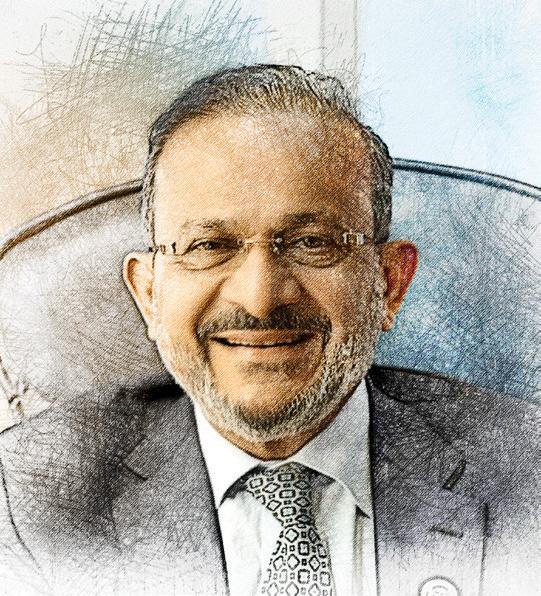
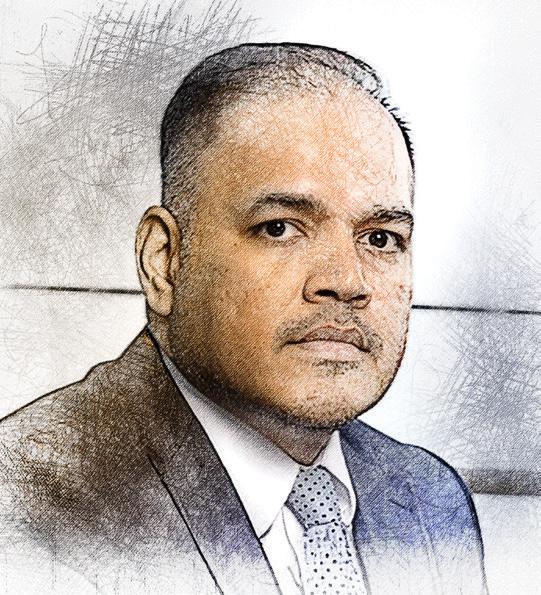
COO, AIX Investment Group
Prithvi has played a key role in the firm’s growth and success in the region. He initially joined the firm as the director of strategy. Under Prithvi’s leadership, the firm has strengthened its market position, offering clients tailored investment strategies that align with their financial goals and risk appetite. He began his career in 2009, holding various roles that built his expertise in sales and business development. Prithvi’s approach to asset management marries his extensive consulting experience from KPMG and Tata Group India. At AIX, he has been instrumental in driving the firm’s expansion across the GCC and introducing innovative investment products. Known for his analytical mindset and strategic acumen, Prithvi continues to shape AIX’s vision of bridging institutional-grade investment opportunities with individual investors in emerging markets.
Founder and chairman, Plan b Group
Dr Singh embodies perseverance and vision. Arriving in Dubai in 2003 earning just Dhs2,000 a month, he launched Plan b Advertising a year later — now a global group spanning three continents with over 500 employees. Under his leadership, Plan b delivered landmark projects such as the 2024 FIFA Beach Soccer World Cup in Dubai, completing the Dubai Design District Stadium in a record 25 days.
Beyond business, Dr Singh plays a key role in sports development as strategy director of the UAE Athletics Federation and is known for initiatives like the Women’s Run. A passionate philanthropist and cultural advocate, his 20-year journey reflects resilience, innovation, and a commitment to community impact.

MD, Arab & India Spices
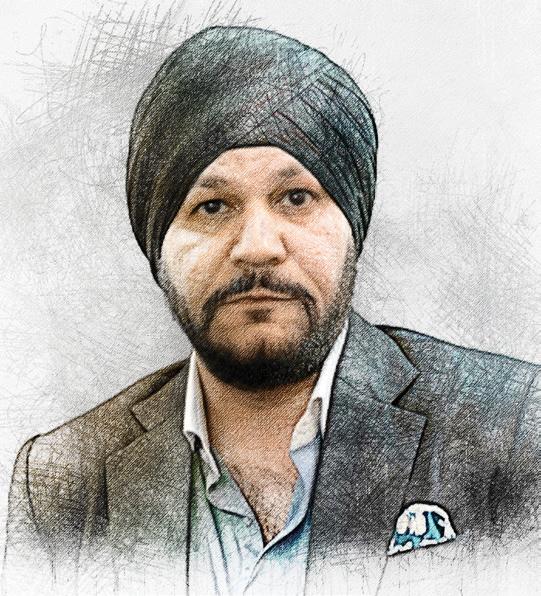
Tahiliani’s journey with Arab & India Spices began more than three decades ago, when he joined his father Kumarlal Tahiliani’s vision to tap the Middle East’s food trade potential. From modest beginnings in 1986, he transformed the company from a five-tonne-a-day pulses processor into one of the region’s largest spice and pulses producers, with 17 production lines and a 700 metric tonne daily capacity.
Based in Ajman since 2007, Arab & India Spices has earned accolades such as the Dubai Chamber SME Exporter Award. Today, Harish continues to drive growth with a new 52,000ton silo project in Sharjah, while supporting humanitarian causes through a partnership with Human Appeal International.
Vice chairman and CEO, Lals Group
Ganwani leads the diversified UAE conglomerate spanning retail, real estate, logistics, and hospitality. He holds a degree in management and international business from NYU’s Stern School of Business and completed the Presidents’ Leadership Programme at Harvard Business School. Joining the family business in 1986, he rose through key finance and operational roles before assuming leadership. Under his direction, Lals Group has grown into one of the UAE’s most established retail groups, operating more than 180 stores and franchise brands including DAISO, Homes r Us, and Mom Store. The group also owns and operates Lamcy Plaza and Arabian Centre malls. In real estate, Ganwani co-founded Signature Developers with Regal Group, behind landmark projects such as 118 Downtown.
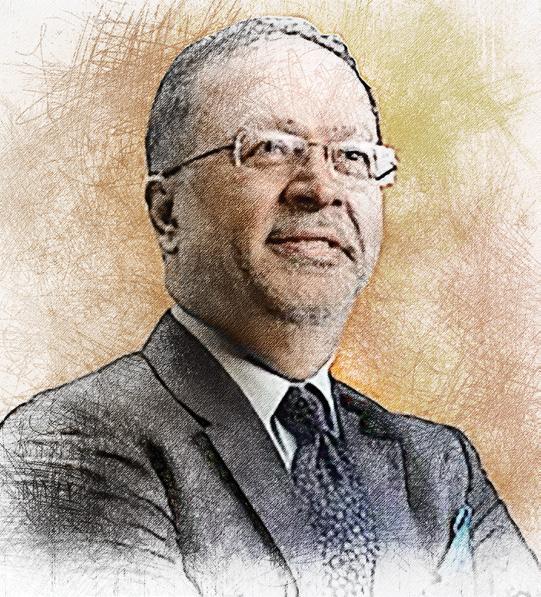
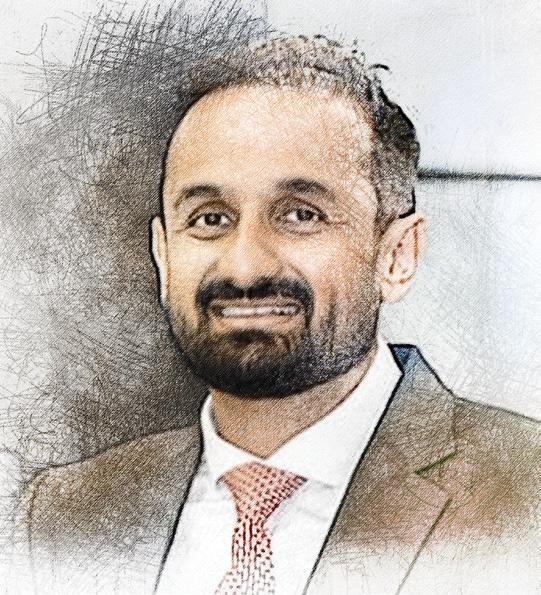
JAYESH PATEL CEO, Wio Bank
Jayesh Patel is the CEO of Wio Bank, a UAE-based digital “platform bank” aimed at redefining banking for individuals and SMEs through embedded finance, banking-as-a-service, and digital applications.
He has a track record in fintech and digital banking — prior to Wio, he played a key role in building Liv, Emirates NBD’s digital lifestyle bank, and led retail strategy at Emirates NBD. Under his leadership, Wio Bank achieved profitability in its first full year: in FY 2023, the bank reported revenue of Dhs266.4m and a net profit of Dhs2m. He has also overseen strong growth in customer metrics: over 200,000 individual clients and 105,000 SME users, with the bank adding thousands of SME customers each month.
Chairman and MD, Joyalukkas Jewellery
Alukkas is the founder and chairman of Joyalukkas Group, one of the world’s largest familyowned jewellery retail chains. His entrepreneurial journey began in 1987 when he opened the first Joyalukkas showroom in Abu Dhabi, recognising the UAE’s emerging potential as a global business hub. Within 15 years, he transformed the brand into one of the most admired jewellery retailers in the GCC before expanding to India in 2002. Today, Joyalukkas operates across 11 countries, including the US, UK, Singapore, Malaysia, Qatar, Oman, Bahrain, Kuwait, and Saudi Arabia. Under his leadership, the group has evolved into a multibillion-dollar corporation spanning jewellery, foreign exchange, textiles, real estate, and retail. Beyond business, Alukkas remains deeply committed to philanthropy through the Joyalukkas Foundation.
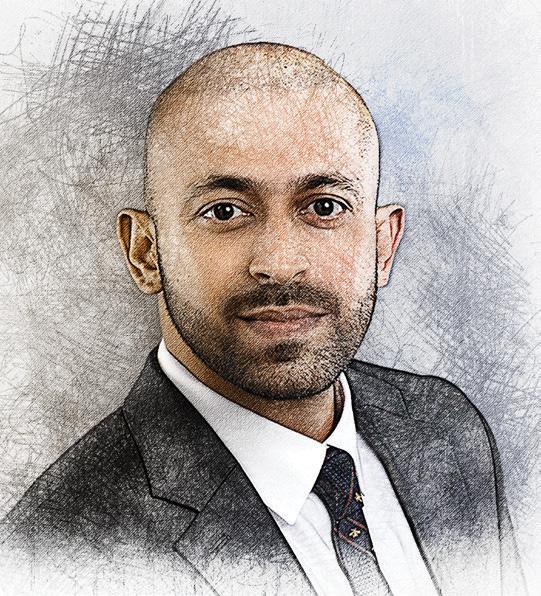
MD, International Operations, Joyalukkas
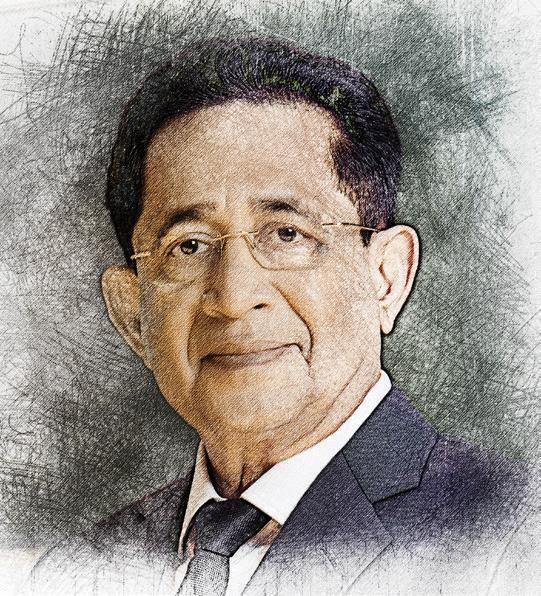
Alukkas manages Joyalukkas Jewellery's international operations and a seasoned business leader with over 16 years of experience in marketing, branding, and strategic planning. An alumnus of Harvard Business School and the International Gemological Institute, he combines strategic insight with a deep understanding of global consumer behaviour and regional market dynamics. Since joining the family business in 2007, he has been instrumental in driving Joyalukkas’ international growth, expanding its footprint across the Middle East, the US, UK, Singapore, and Malaysia. Under his leadership, the brand has earned recognition for retail innovation, customer service, and brand excellence. As MD of International Operations, he continues to guide Joyalukkas’ global strategy.
Founder and chairman, Western International Group
Basheer is the founder of the Dubai-headquartered conglomerate with operations spanning retail, electronics, fashion, food, and e-commerce. Born in Kerala and raised in a family rooted in enterprise, he began his career in Bahrain in 1983 before founding GEEPAS in Dubai in 1998, a move that challenged multinational dominance in the consumer-electronics sector.
GEEPAS became a household name across the GCC and Asia. Over the years, he diversified the Group into more than 30 brands across 90 countries, employing over 35,000 people worldwide.
Flagship ventures such as Nesto Hypermarkets and Mark & Save have established Western International Group as a regional retail powerhouse.
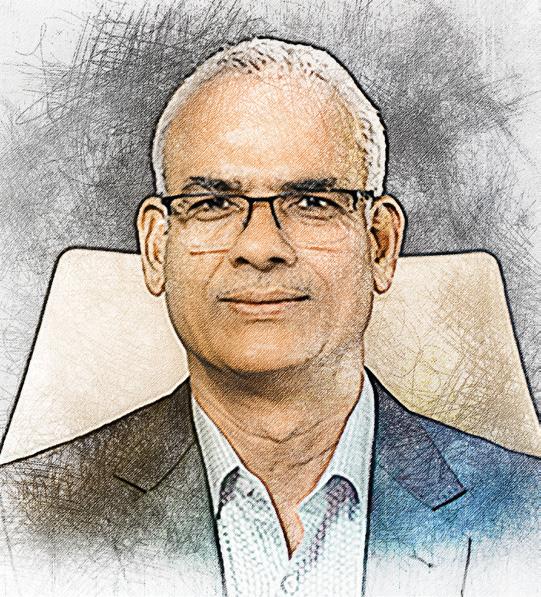
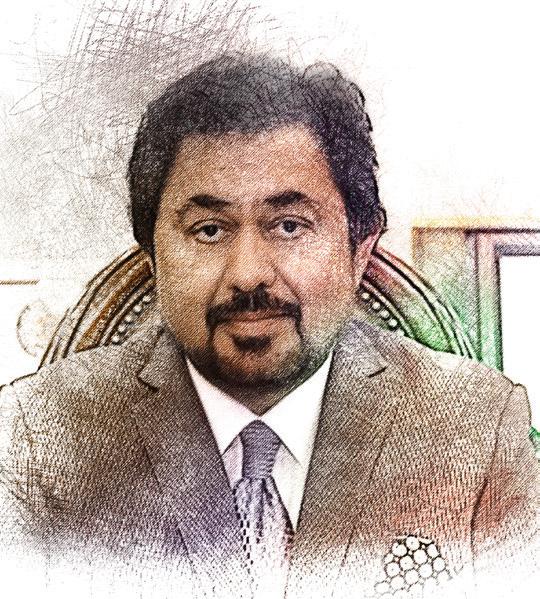
Puri is an Indian-UAE educationist, entrepreneur and visionary who founded Skyline University College (SUC) in Sharjah in 1990. He is chairman and board member of SUC and of the broader Skyline International Group.
Over the years, he guided Skyline’s transformation from a diploma-provider to a full university college offering undergraduate and postgraduate programmes in business, IT, and management.
He has earned numerous distinctions including the Hind Rattan Award (2006). Through SUC, Puri is active in scholarships, community outreach and fostering innovation and social responsibility. SUC has over 20,000 alumni who have thrived in various industries worldwide.
Group director and partner, Al Maya Group
Vachani is group director and partner at Al Maya Group in the UAE. He also serves as the honorary regional director for the Electronics and Computer Software Export Promotion Council (ESC) in the Middle East, a role he has held since 1999, having recently been reappointed. Under his leadership, Al Maya has expanded its footprint across the GCC, particularly in the FMCG and retail sectors. Vachani is active in fostering UAE-India trade ties and promoting international product distribution through the group’s supermarkets and partnerships. He is a long-standing member of the Dubai Chamber of Commerce and has been recognised by multiple Indian trade bodies for his contribution to strengthening bilateral economic relations. Beyond retail, Vachani continues to champion digital transformation and sustainable business practices across Al Maya’s operations.

President,
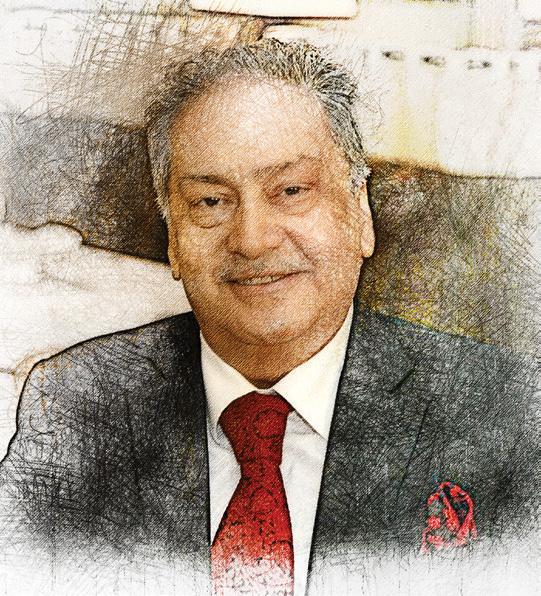
Viswanathan leads the business in more than 80 countries, as president of the Middle East, Indian Subcontinent, and Africa (MEISA) region at FedEx. Viswanathan joined FedEx in February 2021 as vice president of marketing for MEISA, responsible for strategy and commercial growth in the region, and leading corporate innovation efforts. She has been instrumental in charting the rapid growth of FedEx in MEISA, developing strategic partnerships and commercial and network initiatives in India, the UAE and Saudi Arabia. Viswanathan has diverse experience of over two decades across consulting, entrepreneurship, and investing. She was co-founder and co-CEO of Lumina Datamatics, a leading provider of educational content and technology solutions with over 3,000 people across seven locations in the US, Europe, and India.
MD and CEO, Pure Gold Group
Merchant is the managing director and CEO of Pure Gold Group, the family-owned Dubai jewellery business established by his father, Firoz Merchant. Under his stewardship, the group has extended beyond jewellery into real estate through its arm Pure Gold Living and PG Real Estate.
One of his marquee property achievements is the PG Upper House residential project — reportedly delivered ahead of schedule, which marked the company’s first major foray into real estate. He has pledged ambitious investment expansion, with plans for Dhs1bn into further development. Karim’s leadership reflects a dual vision: preserving Pure Gold’s 35-year heritage in jewellery, while pivoting into property to chart a diversified growth path.
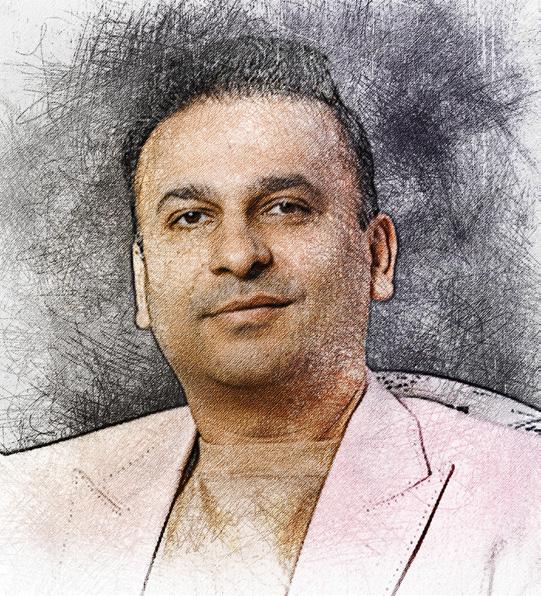
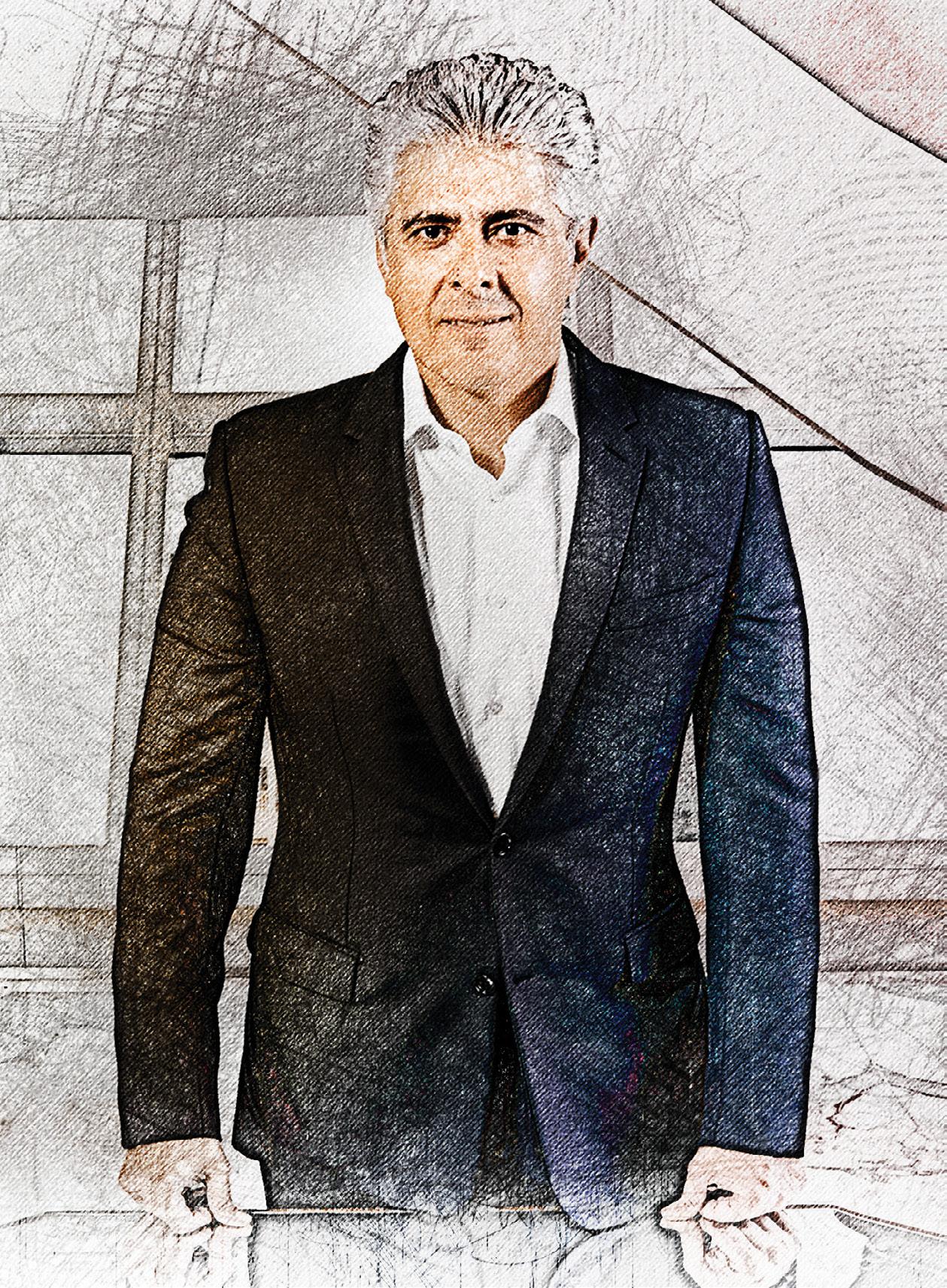
Mulchandani is the chairman and chief executive of FIVE Holdings, the Dubai-based hospitality and real estate group behind the FIVE Hotels & Resorts brand. Over the past decade, he has steered the company into one of the region’s most recognisable names in experiential luxury, expanding across the UAE and Europe.
FIVE Holdings oversees a portfolio exceeding $2.9bn in assets, including FIVE Palm Jumeirah, FIVE Jumeirah Village and FIVE LUXE in Dubai, FIVE Zurich in Switzerland, and a growing European presence following its €302.5m acquisition of The Pacha Group in 2023. It recently added Destino Five Ibiza, Pacha Hotel and Pacha Ibiza nightclub to its holdings, along with brands such as WooMooN, FIVE Mode, The Pacha Collection, Fly FIVE and FIVE Music.
Under Mulchandani’s leadership, FIVE has pursued what he calls a “Global Sustainable Entertainment Ecosystem”, blending high-energy hospitality with environmental
THE
MULCHANDANI HAS STEERED HIS COMPANY INTO ONE OF THE REGION’S MOST RECOGNISABLE NAMES IN EXPERIENTIAL LUXURY, EXPANDING ACROSS THE UAE, EUROPE AND BEYOND.
responsibility. All FIVE hotels in Dubai, Zurich and Ibiza now operate on 100 per cent renewable electricity, while properties in Dubai and Zurich hold LEED Platinum certification. Pacha Hotel recently became the first and only hotel in Ibiza to receive the same recognition, as well as Pacha Ibiza, which now stands as the world’s first and only LEED Platinum nightclub.
The company reported revenue of Dhs2.165bn in 2024, up 28 per cent year on year, with EBITDA of Dhs766m. In Q2 2025, FIVE recorded Dhs597m in revenue and Dhs210m in EBITDA. A $460m revolving credit facility secured in September 2025 from Commercial Bank of Dubai, AAIB and Santander strengthened its liquidity for global expansion plans across the US, Asia and the UAE.
Through its Pacha Foundation and corporate initiatives, FIVE Holdings has contributed nearly $3m to community programmes, including over 650 life-saving operations and educational support for more than 1,500 young girls each year. FIVE was named Hospitality Company of the Year at the Gulf Business Awards 2025 and ranked among Fast Company Middle East’s Most Innovative Companies in Travel and Tourism.
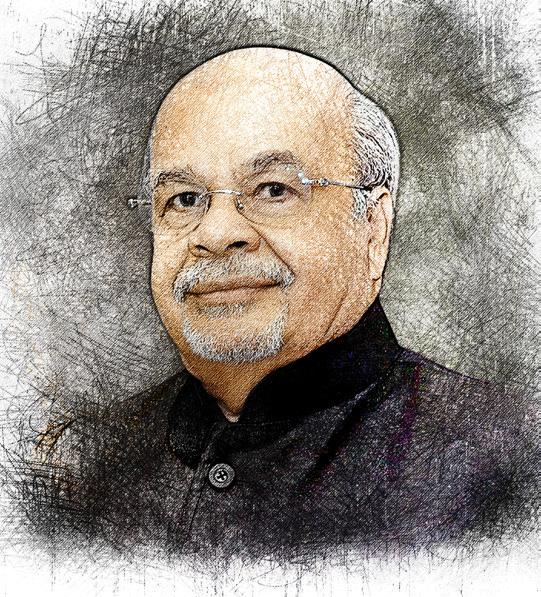
Founder and group MD,
Al
Ansari Global Trading Enterprise
Asher leads Al Ansari Global and Al Ansari Trading Enterprise, which was established in 1975. Born in India, Asher moved to Muscat in the '70s, after completing his studies and gaining work experience in the UK, to re-establish his family’s business legacy.
Under his direction, Al Ansari evolved from a small commission agent to a diversified international group operating in sectors, including infrastructure, engineering, utilities, hospitality, and building systems across Oman, UAE, Saudi Arabia, India, and beyond.
Asher has held board roles in Oman Cricket (as treasurer) and with the Indian Schools Board in Oman. He is recognised for his philanthropy, particularly towards the Indian diaspora. He has also been awarded the Pravasi Bharatiya Samman accolade by the government of India.
Chairman, Choithram & Sons
Pagarani is the chairman of the UAE-based supermarket and retail group with roots in West Africa. A scion of the business founded by his father, Thakurdas Choithram Pagarani, he leads the business’s GCC and international expansion. He resides in the UK but oversees operations across the UAE, Africa and beyond. Under his stewardship, Choithrams operates roughly 50 stores in the UAE, with further presence in Bahrain, Qatar, and Oman. The group also holds stakes in export, trading (Giant Exports), cash & carry (Natco) and telecommunications (Crown Networks). Pagarani is known for introducing Tesco and SuperValu product ranges to the UAE market, and entering into strategic retail partnerships. He is also associated with Choithram International Foundation, the group’s philanthropic arm.

MD, Geap Group
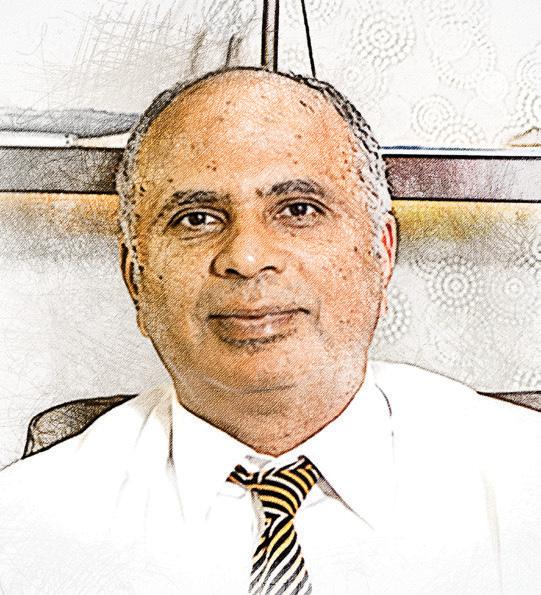
Chairman and MD, LuLu Group International
Ali, born on November 15, 1955, helms LuLu Group International, the UAE-based retail and FMCG powerhouse. Originally from Nattika, Kerala, India, Ali moved to the UAE in 1973 to join his uncle’s trading venture and gradually steered the business into retail.
Under his leadership, LuLu has flourished into a multinational conglomerate, operating hundreds of hypermarkets, supermarkets and malls across the GCC and beyond.
He is active in business and civic circles, having served as second vice chairman of the Abu Dhabi Chamber of Commerce & Industry.
Yusuff Ali is also widely recognised for his philanthropic contributions and for bridging IndianGulf trade and community networks.
Patel heads the Dubai-headquartered, third-generation family enterprise with operations spanning steel trading, ship chandling, food distribution, logistics, and road-marking materials.
Under his leadership, Geap International supplies reinforcement steel for major UAE developments, including Expo 2020 Dubai, the Grand Mosque in Abu Dhabi, and the Burj Khalifa piling works. The group also holds the UAE distributorship for German hardware brand Häfele and operates one of the country’s largest temperature-controlled ship-chandling facilities.
Patel is an active member of the UAE’s business community through YPO Emirates Chapter and the Indian Business Leaders Forum, and remains optimistic about the country’s diversified growth trajectory.
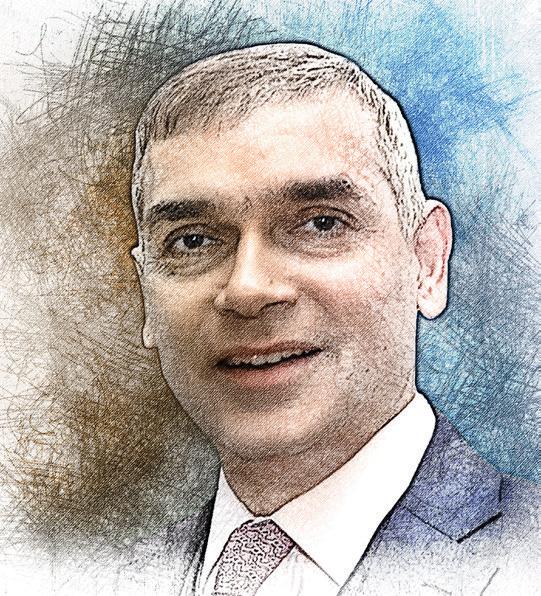
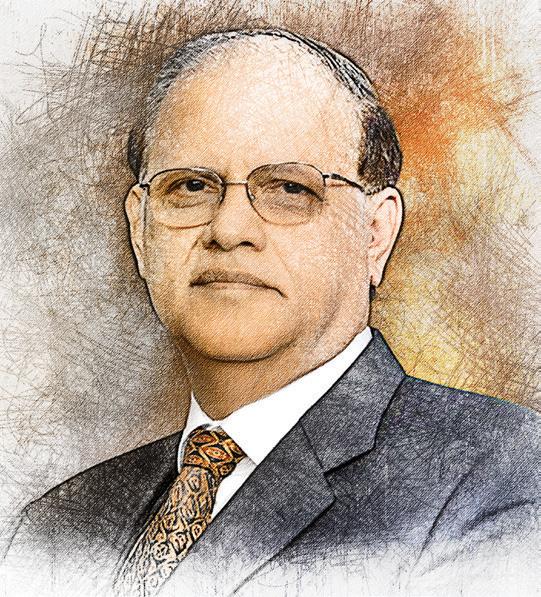
Co-founder and vice chairman, Al Shirawi Group; and chairman, Arcadia
Valrani is the co-founder and vice chairman of Al Shirawi Group, one of the UAE’s largest privately held conglomerates with over 30 companies spanning engineering, manufacturing, trading, logistics, and education. A veteran entrepreneur who arrived in Dubai in 1966, Valrani helped establish the group in 1971 and has been instrumental in its expansion across multiple sectors. Beyond his corporate leadership, Valrani is also chairman of Arcadia Education, the award-winning British-curriculum school group in Dubai, and a passionate advocate for education and community service. He has served as chairman of the Indian High School and sits on several non-profit boards, combining business success with a deep commitment to social impact and philanthropy in the UAE.
Founder and chairman, West Zone Group
Bhawnani heads West Zone Group, which began with a single supermarket in Mirdif, Dubai, in 2005. Over two decades, the group has diversified into logistics, real estate, construction, technology, hospitality, and food and beverage. Its core retail network includes more than 100 supermarkets and hypermarkets spanning over 500,000 square feet and employing 5,000 people.
West Zone strengthened its market presence with the acquisition of Safestway, three Giant outlets and G-Mart. Its West Zone Fresh brand offers over 500 products, combining ownlabel and global names. Bhawnani plans further regional growth, with expansion across the GCC and internationally in the coming years.

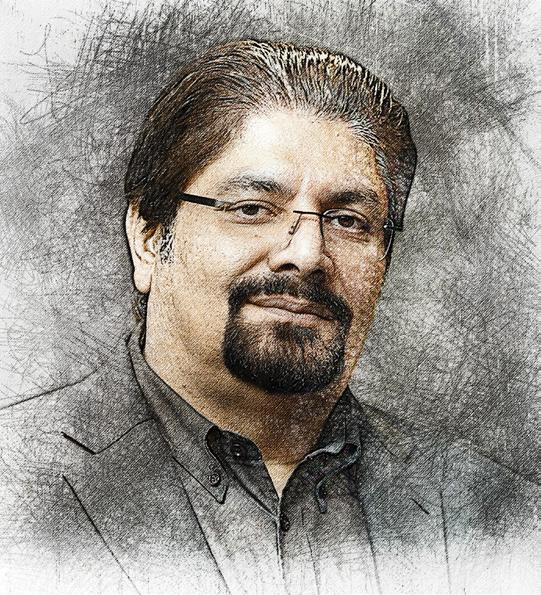
Vice chairman and group MD, Al Shirawi Group; and CEO, Arcadia
Valrani is a key leader at Al Shirawi Group, a diversified Dubai-based conglomerate operating across engineering services, manufacturing, education and more. He also serves as CEO of Arcadia Education, the group’s K–12 schooling arm.
Valrani holds a bachelor’s degree from Wharton, University of Pennsylvania, and an MBA from London Business School. He also earned a masters degree in education from Penn, and more recently a doctorate in education, focusing on how teachers’ cultural and educational backgrounds influence technology use. Within Al Shirawi, he oversees education, engineering and facilities clusters. He is also known for introducing a “junior MBA” curriculum at Arcadia for younger students.
Founder and MD, NB Ventures
Bhatnagar leads the Dubai-based venture capital and investment platform that channels family capital into startups and growth enterprises across India and the Middle East. A seasoned business executive, Neelesh previously spent nearly two decades at Landmark Group, where he oversaw various leadership roles including expanding its electronics retail arm, Emax, in the UAE and Saudi Arabia. After his tenure with Landmark, he launched NB Ventures to leverage his experience in mentoring and supporting entrepreneurial ventures. Under his stewardship, NB Ventures has invested in over 50 startups, spanning fintech, foodtech, retail, edtech, sustainability, and other sectors. He sits on several boards of companies in the health, consumer, and technology sectors, and is an advocate for two-way investment flows between UAE and India.
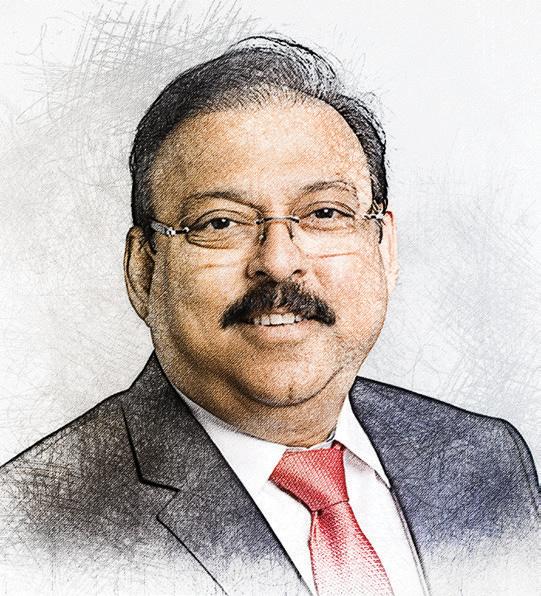
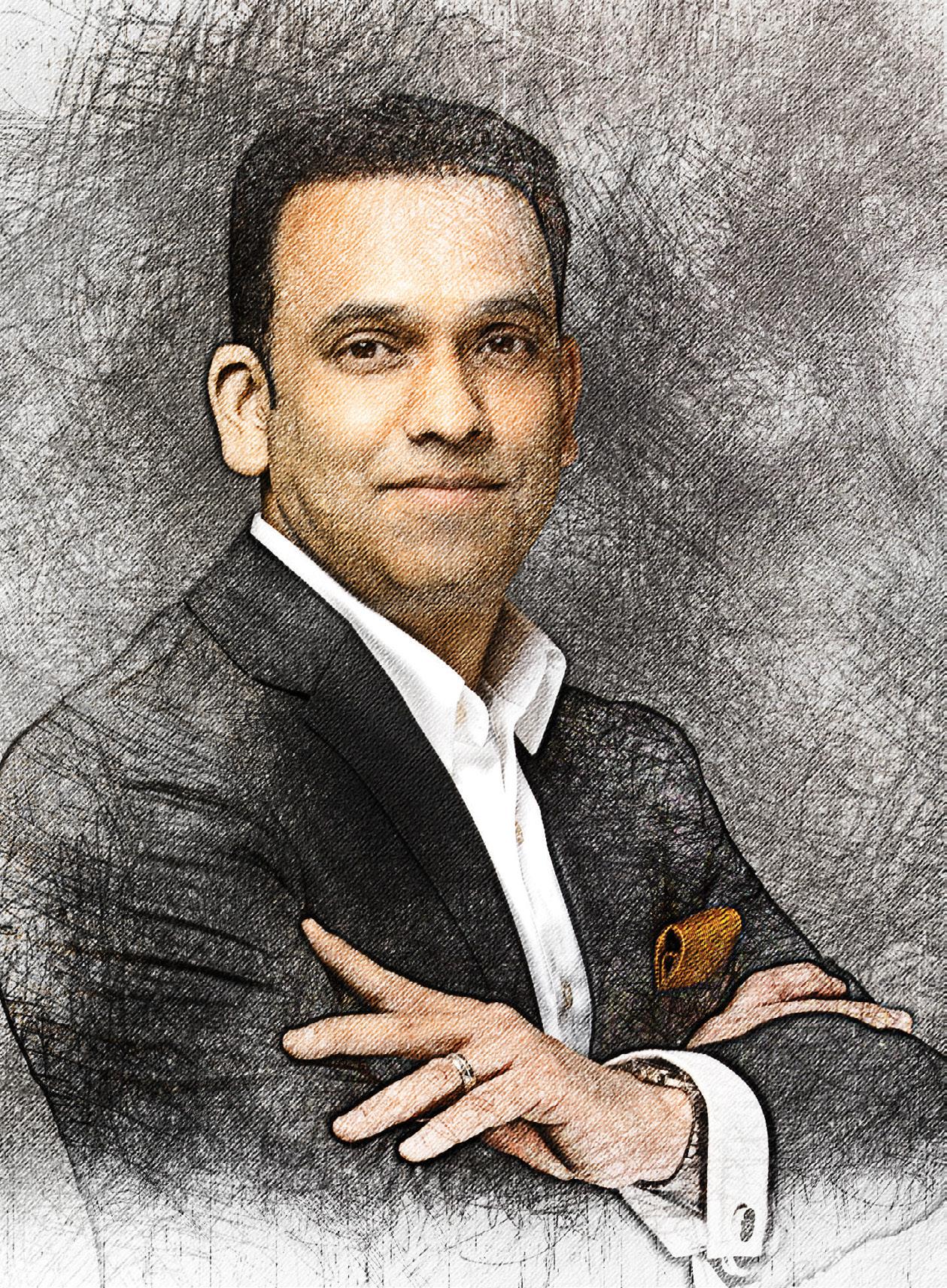
For Mandhani, entrepreneurship is more than a pursuit: it’s a legacy. Born into a family of Indian entrepreneurs, he inherited both resilience and a natural instinct for opportunity. Over time, he transformed that foundation into a global portfolio spanning technology, trading, investments, and real estate across the UAE, Cyprus, the UK, and beyond.
Educated in the US and trained at Fortune 500 companies, Mandhani combined analytical precision with commercial vision. His entrepreneurial journey began with Voyzze Communications Inc, a pioneering VoIP company that strengthened North America’s digital infrastructure before its successful exit in 2013. Through Sophonos Investments, he went on to back early-stage ventures in PropTech, FinTech, and consumer technology, including the UK-based Yourkeys.com, later acquired by Zoopla. Each venture reinforced his belief that innovation, when driven by purpose, fuels progress.
In 2013, Mandhani channelled his global experience into Dubai’s real estate sector, founding Karma Developers with a vision to create sustainable, design-led communities grounded in financial discipline. Since inception, Karma has delivered over 2,000 residential units across its international footprint, including the UAE, and has another 2,000 units under development across Dubai.
Its key projects — Olivia in Dubai Investment Park, Trinity in Arjan, Milos in Dubai Land, and the recently launched Antalya in Dubai Sports City — reflect Karma’s commitment to thoughtful urban design and livable community spaces. Meanwhile, the upcoming master communities Belgravia Gardens in Falcon City and Hillgate in Dubai Silicon Oasis are being developed in strategic alliance with an acclaimed, design-focused developer, reinforcing Karma’s collaborative approach and focus on quality-driven growth.
A forthcoming gated community of 1,400 units in Dubai Investment Park further underscores Karma’s bold growth trajectory and its mission to redefine community living across the emirate.
Under his leadership, Karma has become known for architectural distinction, innovative payment structures, and LEED-certified developments. Mandhani’s minimal-debt approach has enabled the company to thrive across market cycles while maintaining trust and transparency.
A recognised thought leader and speaker, Mandhani exemplifies modern entrepreneurship: global in outlook, local in execution, and grounded in values that build not just companies, but enduring legacies.
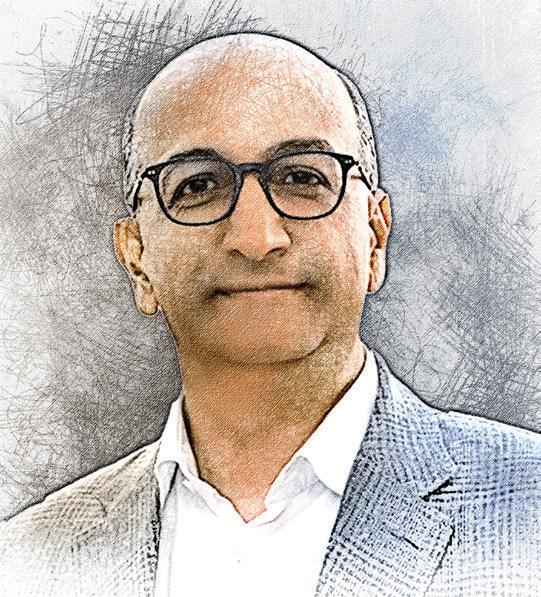
Founder, Sobha Group
Ved, one of the key driving forces, at Apparel Group, a global fashion and lifestyle retail powerhouse headquartered in Dubai. A graduate of Boston University, Ved grew up in a family of entrepreneurs and launched Apparel Group in 1999 with Sima Ved, aiming to bring world-class retail experiences to Middle Eastern consumers.
From a single store in Dubai, the company has expanded into major markets, including the GCC, India, South Africa, and Southeast Asia, with a portfolio of more than 75 international brands such as Tommy Hilfiger, Aldo, New Balance and Tim Hortons.
Today, Apparel Group operates more than 1,750 stores across four continents, employing over 14,000 people, and continues to pursue ambitious global expansion under Ved’s leadership.
Menon is one of the most influential figures in the region's real estate and construction sector. He began his entrepreneurial journey in 1976 by launching an interior design firm in Oman, which quickly became a market leader and earned him Omani citizenship in 1995.
In 1995, Menon founded Sobha Developers in Bangalore, which went public in 2006 with a record 126x oversubscription.
Today, the company operates in 27 cities across 14 Indian states. Expanding globally, he launched PNC Investments in 2011, bringing the Sobha brand to Dubai. His landmark UAE projects include Sobha Hartland and District One, part of an $8bn joint venture with Meydan Group.

CEO of Lenskart
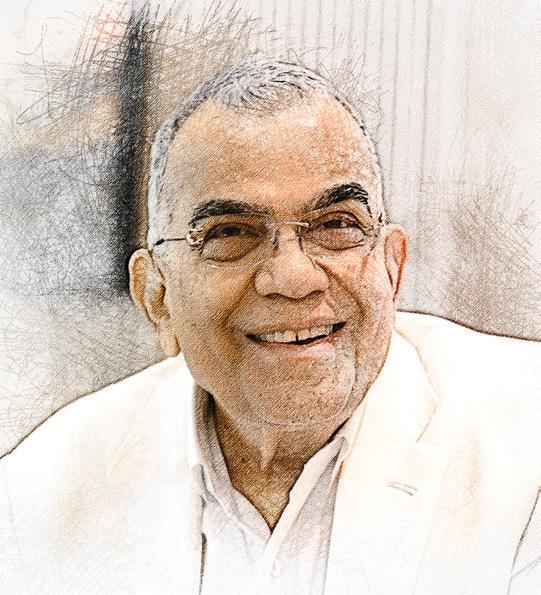
Founder and chairman, Nikai Group of Companies
Shahdadpuri chairs the diversified Dubai-based business with interests in electronics, home appliances, IT, FMCG, and retail food chains. An ex-diplomat with the Indian government, Shahdadpuri launched his entrepreneurial journey in 1988 by trading commodities, choosing Dubai as the base for his global operations.
Widely respected as a “gentleman and statesman” in business circles, he has received numerous accolades, including the Bharat Shiromani Award, the CEO International Achievement Award, and recognition for his contribution to the global electronics sector. Shahdadpuri is also deeply committed to philanthropy and community service, supporting numerous charitable causes and championing social initiatives across the UAE and beyond.
Bansal is the co-founder and CEO of Lenskart, India’s largest omnichannel eyewear retailer. Founded in 2010 and headquartered in Gurugram, Lenskart has disrupted the traditional eyewear market with its blend of technology, affordability, and design-led innovation. Under Bansal’s leadership, the company has expanded to over 2,000 stores across India and several international markets, including the Middle East and Southeast Asia.
A graduate of McGill University and a former Microsoft employee, Bansal is also known for his role as an investor on Shark Tank India, where he supports emerging entrepreneurs. Lenskart entered the UAE market in 2021 and continues to grow its retail footprint across Dubai and Abu Dhabi.
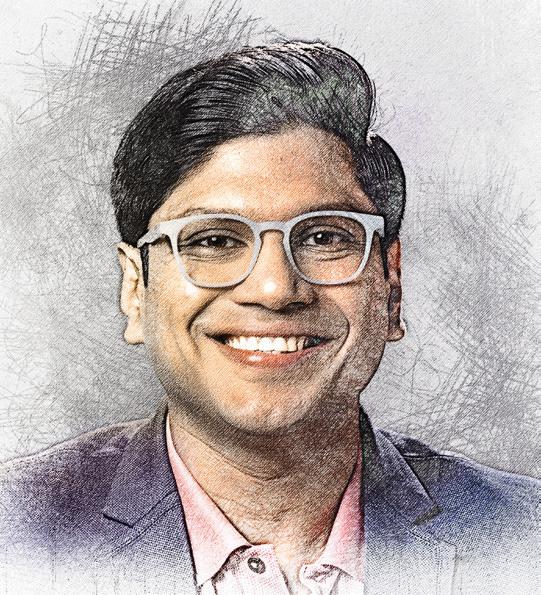
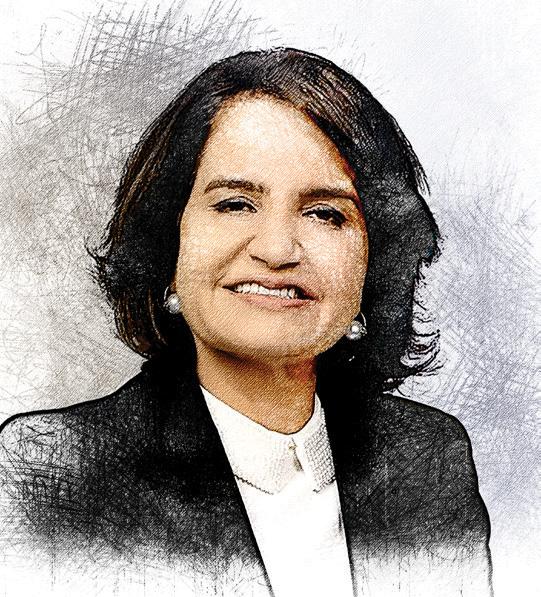
POONAM BHOJANI CEO, Innoventures Education
Bhojani is the CEO of Innoventures Education in the UAE, a position she has held since around 2006 (having joined the group at its inception). With an honours degree in economics and an MBA from Indian Institute of Management Bangalore, she spent more than 16 years in the technology and financial-services sectors across Europe, the US, Hong Kong and the Middle East (with companies such as Tata Consultancy Services, Philips and ABN AMRO Bank) before moving into education. Under her leadership, Innoventures Education manages several schools in Dubai: including Dubai International Academy (Emirates Hills & Al Barsha), Raffles International School, Raffles World Academy, Collegiate International School, as well as early-childhood centres.
CEO, Citymax Hotels and Foodmark
Rana is a hospitality leader with several decades of global experience across hotel management, food and beverage, and operations. He was appointed CEO of Citymax Hotels in 2019 and took charge of Foodmark — Landmark Group’s restaurant division — in 2020. In this dual role, he oversees brands including Nando’s, Carluccio’s, Zafran, and Sizzling Wok across the GCC.
Before joining Landmark, he served as CEO for Radisson Hotel Group South Asia and earlier as vice president for Radisson’s US franchise operations. Renowned for his strategic insight and operational discipline, Rana continues to drive regional growth, innovation, and guest experience across Landmark’s hospitality portfolio.
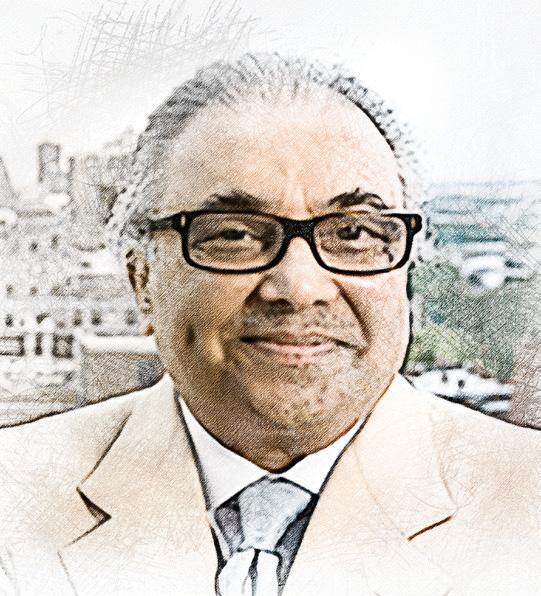
Chairman and president, Dodsal Group
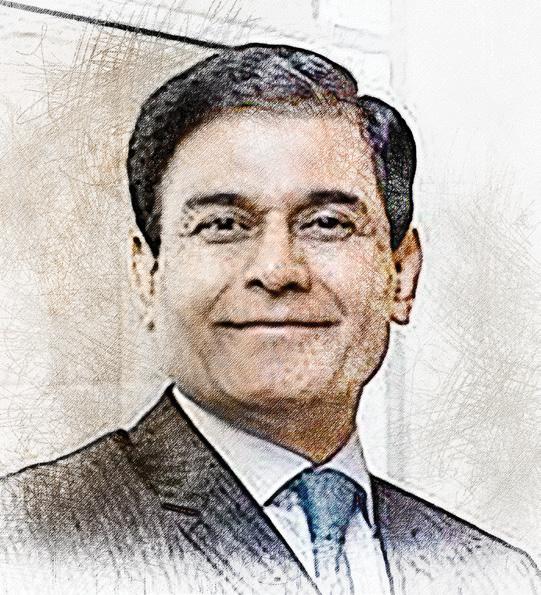
Kilachand heads the Dubai-based conglomerate operating in engineering, infrastructure, trading, mining and energy. Under his leadership, Dodsal has grown into a multibillion-dollar global conglomerate, often cited as generating more than $2bn in turnover. Dodsal also secured a significant $1.1bn EPC contract in Algeria for a compression and separation centre with Sonatrach.
Khilachand also commands influence as a committed philanthropist: his generous endowments to Boston University and support for education, arts and healthcare mark him as a major bridge between India and the Gulf’s business and social sectors. He holds a master’s degree from Boston University’s Graduate School of Management.
Managing director, Dubai Duty Free
Cidambi was appointed MD of Dubai Duty Free effective June 1, 2024. He joined Dubai Duty Free in 1988, initially heading its IT division, and later rose through the ranks to serve as chief operating officer for eight years.
Under his leadership, in August, the company recorded Dhs646.23m in monthly sales — a new August record, up 15 per cent year-on-year.
Additionally, in October 2025, Dubai Duty Free became the world’s first Autism Certified airport retailer, after over 4,800 staff completed training to support customers on the autism spectrum. Cidambi called the recognition a milestone in inclusivity.
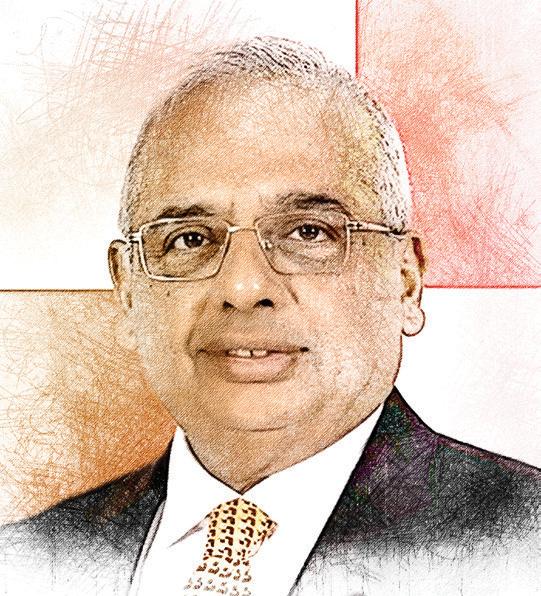
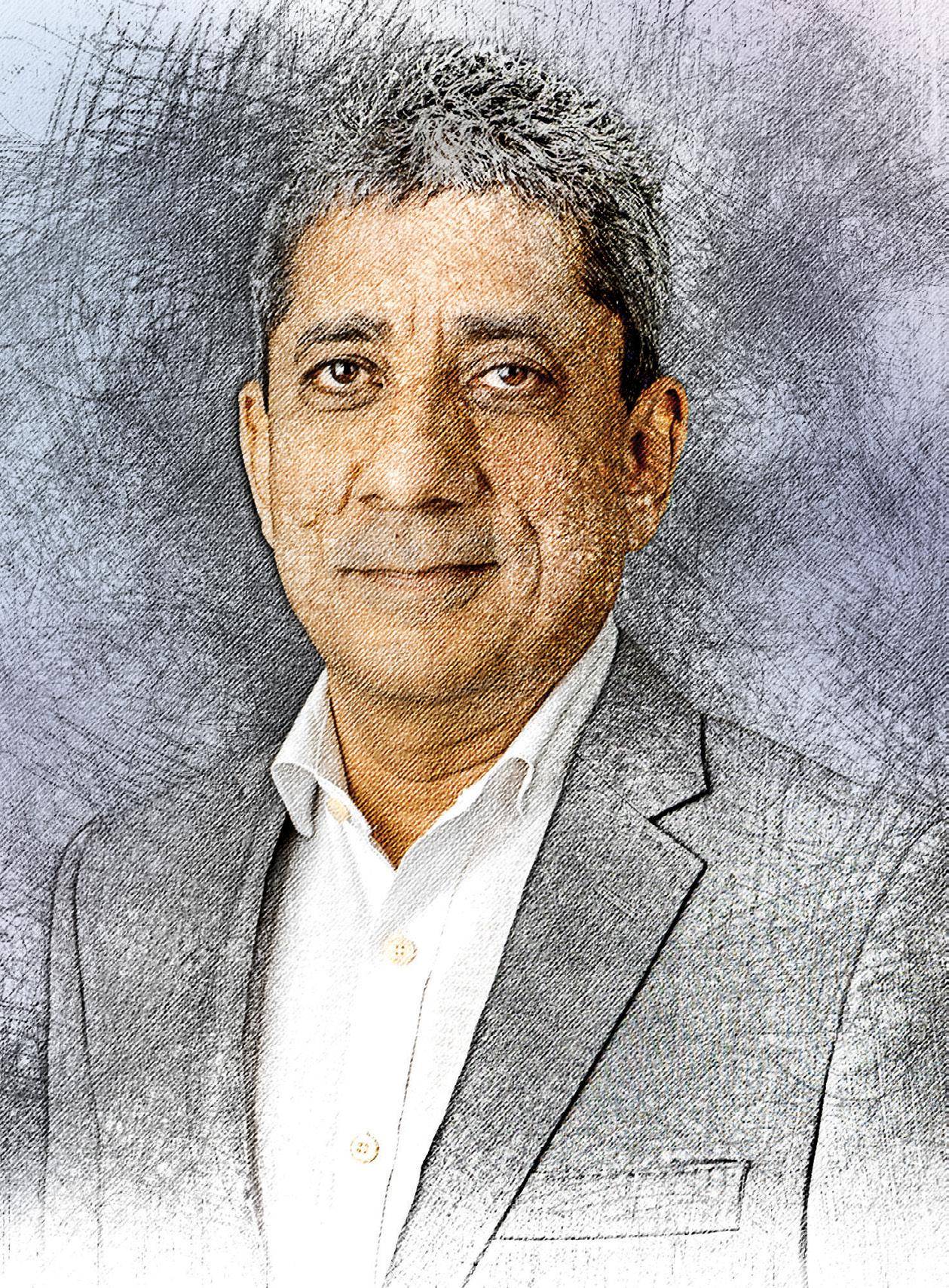
Singh has been at the forefront of the UAE’s mobility evolution for more than two decades. As managing director of the Car Rental Division at AA Al Moosa Enterprises, he leads two of the region’s most trusted mobility brands — Thrifty and Dollar Car Rental — across the UAE and Oman. With over 25 years of experience, he has steered the business through continuous transformation, building a legacy defined by innovation, service excellence and resilience.
When Singh joined AA Al Moosa Enterprises in 1997, the company ranked seventh in the UAE’s car rental market. Within seven years, under his leadership, it rose to number one — a position it continues to hold today.
His tenure has been marked by strategic expansion, digital modernisation and operational discipline. He has driven fleet growth, streamlined systems and introduced data-driven decision-making, embedding a culture of accountability
BEYOND BUSINESS, SINGH ADVOCATES RESPONSIBLE GROWTH, BELIEVING THAT SUCCESSFUL ENTERPRISES CARRY A WIDER SOCIAL OBLIGATION.
and continuous improvement throughout the organisation.
Singh’s success is underpinned by strong academic foundations — a master’s degree in management (Marketing specialisation) and a bachelor’s degree in economics. This combination of strategic insight and analytical rigour enables him to convert complex market shifts into pragmatic business strategies. Known for his collaborative leadership style, he empowers teams to innovate, take ownership and deliver excellence at every level. Beyond business, Singh advocates responsible growth, believing that successful enterprises carry a wider social obligation. He champions initiatives supporting education, environmental sustainability and community development, aligning closely with the UAE’s vision for sustainable progress.
As the mobility sector evolves with technology and shifting consumer preferences, Singh remains focused on the future — strengthening digital capabilities, enhancing customer convenience and exploring emerging models in electric vehicles and shared mobility. His leadership continues to define the standard for sustainable, customer-centric mobility in the region.
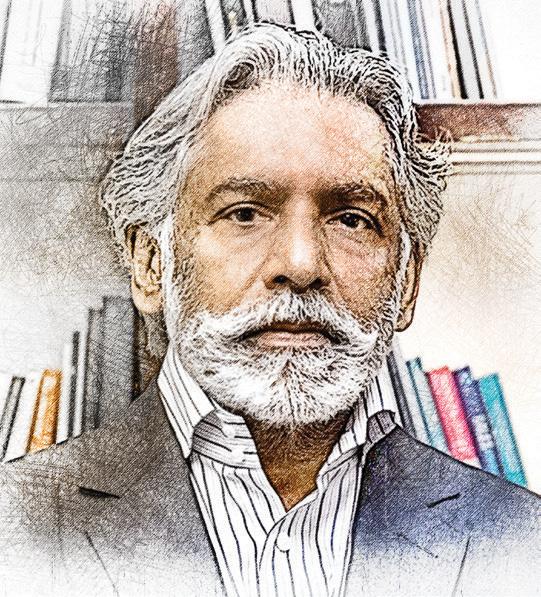
Vice chairman and managing partner, Rivoli Group
Prabhakar joined the Rivoli Group in the 1980s and within a few years became CEO; today he leads the group, known for its luxury watches and accessories portfolio, featuring premium brands such as Longines, Balmain, Gucci, Dior, Montblanc, and Swarovski.
Under his leadership, Rivoli has grown into a prominent luxury lifestyle retailer across the UAE and GCC, representing over 100 international brands in watches, eyewear, leather goods, accessories and writing instruments.
A recent strategic move is Rivoli’s merger with Magrabi Retail Group, forming a joint eyewear powerhouse spanning more than 290 locations across the Middle East.
Prabhakar continues to steer Rivoli, now also joining Magrabi’s investment committee.
Chairman, Transworld Group
Ramakrishnan leads the Dubai-headquartered shipping and integrated logistics company with operations spanning feedering, liner services, marine, freight forwarding, and supplychain solutions across the Middle East, Indian Subcontinent, and Southeast Asia. He has overseen the group’s evolution from a regional feeder to an end-to-end logistics platform, with a focus on digitalisation, network efficiency, and decarbonisation initiatives across fleet and warehousing. Ramakrishnan is active in industry bodies and talent development, emphasising safety and upskilling for maritime and logistics workforces. Under his stewardship, Transworld continues to support regional trade corridors and last-mile connectivity for exporters, importers, and multinational clients.
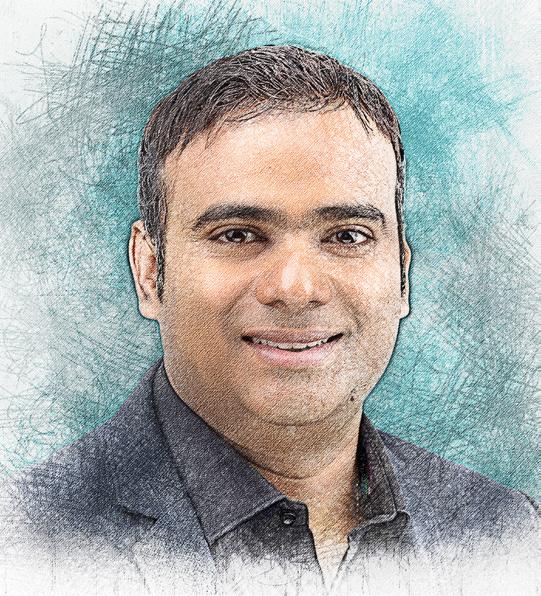
Founder, Velocity1
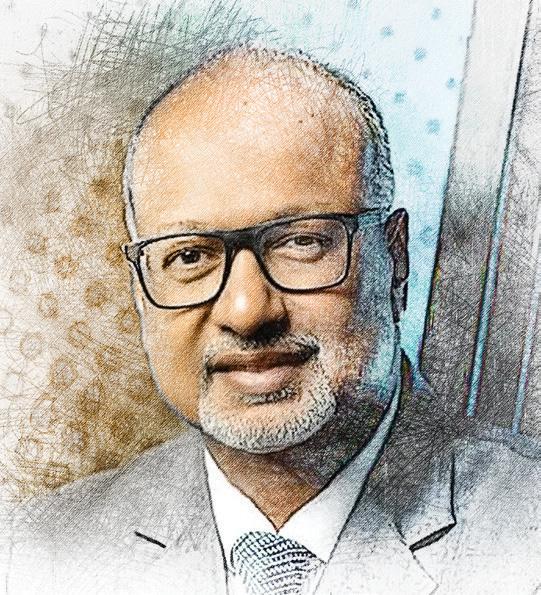
Ranjan heads the venture-building and advisory platform that supports founders with go-tomarket strategy, capital access, and cross-border scale between India and the GCC. A long-time startup ecosystem builder, he mentors early-stage companies on product-market fit, fundraising readiness, governance, and partnerships. Ranjan’s work spans accelerators, corporate innovation programmes, and investor networks, helping startups transition from pilot to commercial deployment. He also engages with universities and public-sector initiatives to promote entrepreneurship and job creation.
Through Velocity1, Ranjan focuses on healthtech, fintech, and consumer-tech propositions with clear revenue models and sustainable unit economics.
Chairwoman and CEO, Landmark Group
Jagtiani heads the Dubai-based retail and lifestyle conglomerate operating across the Middle East, India, Africa and Southeast Asia.
With over three decades in the business, she has been instrumental in transforming the group into a leading omnichannel retailer, driving growth into e-commerce, logistics and new markets.
Under her leadership, Landmark operates more than 2,200 stores across multiple brands and upholds a customer-centric, innovation-driven ethos.
Jagtiani is also deeply committed to social impact. Through The LIFE Trust, she supports educational and welfare programmes for underserved communities.
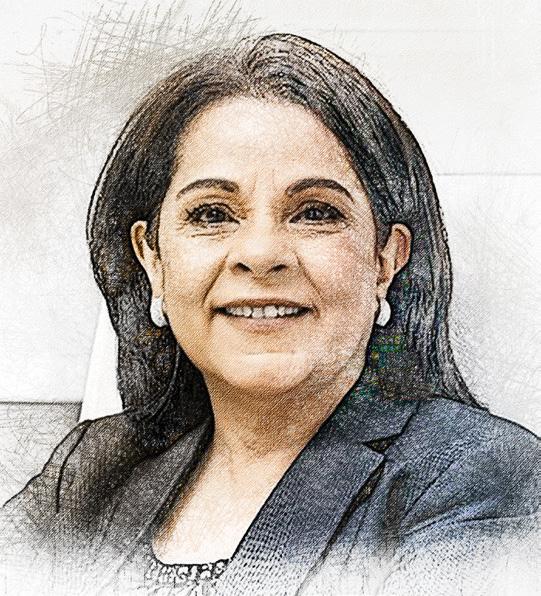
Vice chairman and CIO, Investcorp
Kapoor has been with the firm for over 30 years, having served as Investcorp’s co-chief executive officer from 2015 to 2024, and as chief financial officer from 2003 to 2015. Kapoor joined Investcorp in 1992 from Citigroup. He holds a bachelor’s degree in electrical and computer engineering from the Indian Institute of Technology and an MBA from Duke University’s Fuqua School of Business.
Kapoor is a member of Duke University’s Middle East Regional Advisory Board, the Oxford Energy Policy Club, and His Majesty King Charles’ Sustainable Markets Initiative. Kapoor, additionally, sits on the Board of Directors for the National Bank of Bahrain, where he chairs the Risk and Compliance Committee.
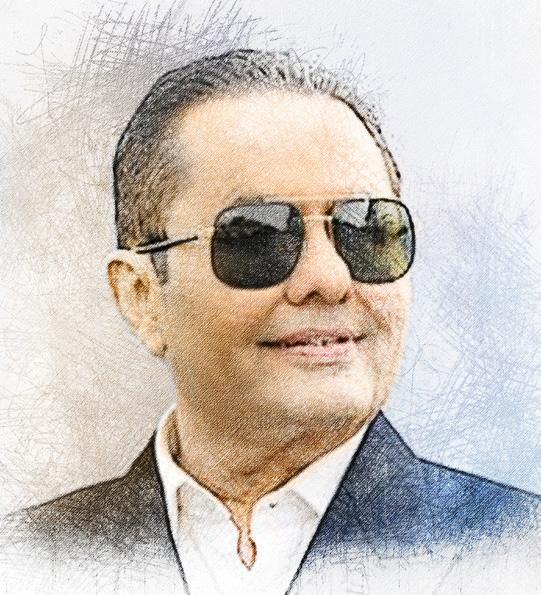
Founder and chairman, Danube Group

Sajan is the man behind Dubai’s Danube Group, a diversified conglomerate spanning building materials, home décor, and property development. Born in Mumbai, he overcame early personal tragedy and dropped out at 16, taking on odd jobs to support his family. In 1993, he launched Danube as a modest trading enterprise in the UAE, steadily expanding into multiple verticals. His “1% per month” payment plan for real estate has become a hallmark, helping make property ownership more accessible to expatriates.
More recently, Danube Properties unveiled its SPARKLZ development at the 2025 International Property Show, reflecting the group’s ongoing focus on innovation and growth in Dubai’s real estate market.
MD, Global Capital Partners
Global Capital Partners is a well-known Dubai-based wealth, asset and real estate investment firm. As the firm's MD, Lakhiani has over two decades of experience in optimising capital allocation, property development, brokerage, asset management and value engineering across Dubai’s real estate landscape.
In recent commentary, he noted that rising investor demand is pushing companies to prioritise cash flow and dividends, citing his views on e&’s 2023 dividend yield of 4.2 per cent as reflective of growing market activism. He also publishes thought leadership on urban planning and real estate strategy, including pieces like “Dubai expanding city’s urban base zone by zone”, where he discusses how infrastructure and density shifts influence property value dynamics.
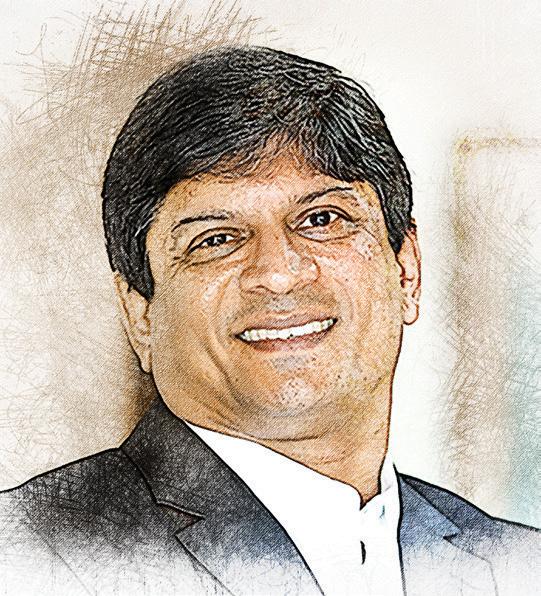
Chairman and MD, Centena Group
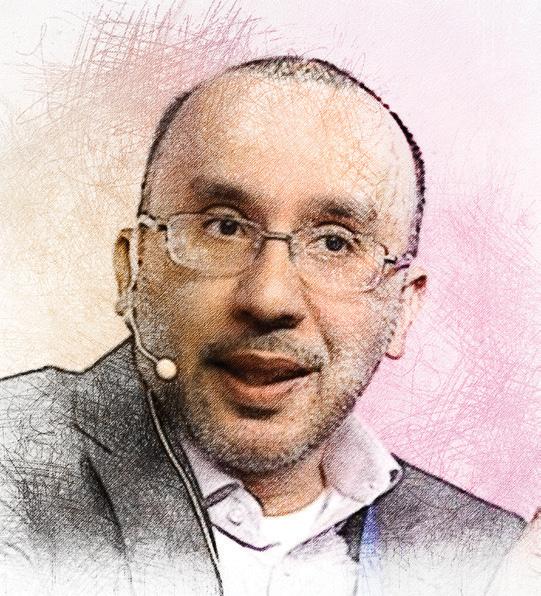
Sanjay Raghunath is the driving force behind the company’s remarkable growth and global footprint. As a founding leader, he has steered it into over 100 countries, with 22 offices spanning the GCC, the UK, India, Singaporeand Sri Lanka.
Under his visionary leadership, the group has emerged as a global leader in technological innovation and business excellence in areas such as marine, industrial process, life sciences, security and identification, and education.
Raghunath is committed to preserving its distinctive culture, prioritising both employees and clients, and championing initiatives that transform lives, cementing Centena Group’s reputation as a forward-thinking, globally influential enterprise.
Chairman, Anax Holdings
Sanpal heads Anax Holdings, a Dubai-based investment and operating company with interests reported across real estate, hospitality, and leisure. He leads the group’s strategy on new developments, brand partnerships, and capital allocation, with a focus on lifestyle assets and customer experience.
Sanpal is known for building high-visibility consumer propositions and for championing operational discipline in design, fit-out, and asset management. In addition to pipeline projects, he supports community initiatives and skills development in hospitality. His current priorities include optimisation of existing assets, digital engagement, and measured expansion across the UAE and selected GCC markets.
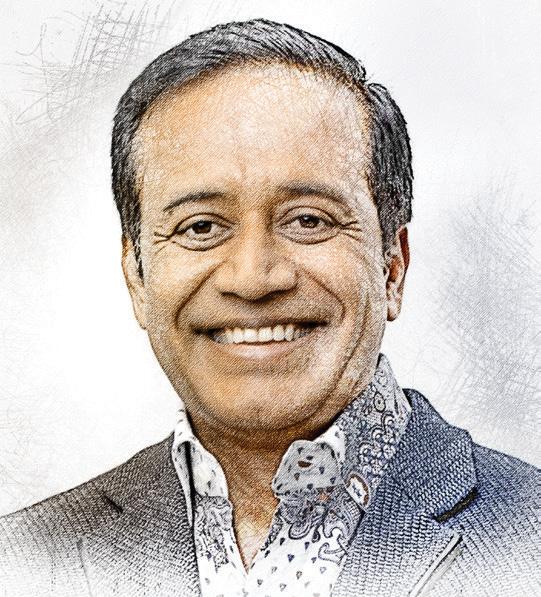
Founder and mentor, Dash Venture Labs
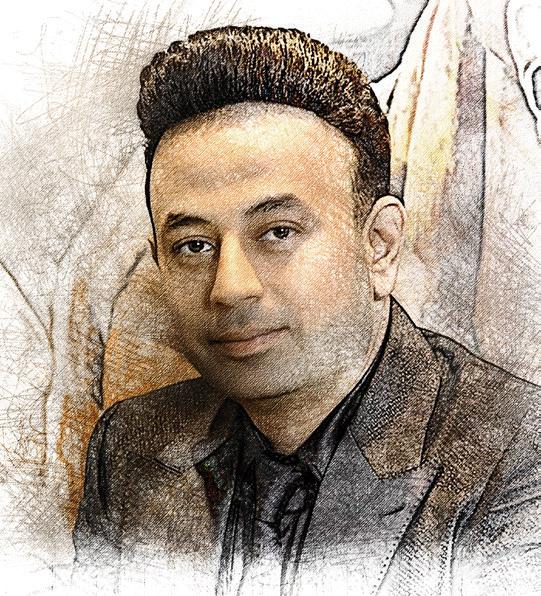
Dash is a serial entrepreneur and financier based in Dubai. Dash Venture Labs is a business incubator created by a group of experienced venture builders. He has founded one of the largest and most successful private equity firms that managed over $1bn across various private equity funds that have invested in more than 100 companies. It has also funded 25 startups which, in turn, has provided employment opportunities to more than 4000 people across the MENASEA region. Over two decades, Dash has executed more than 150 transactions of over $1.7bn, raised over $2.5bn from investors, managed a cumulative of $6 billion of AUMs, and served on more than 15 boards of prominent private companies. He has been the main source for identifying business opportunities, turnaround strategies, and securing lucrative investments to boost various entrepreneurial ventures.
MULK Founder and chairman, Mulk Holdings
Mulk, also known as Nawab Shaji Ul Mulk, heads the diversified conglomerate with interests spanning construction materials, real estate, healthcare, plastics and sports. Originally arriving in the UAE in the early 1980s, he launched his entrepreneurial journey and in 1995 established Mulk Holdings to consolidate his growing businesses. The company’s flagship brand, Alubond A2, produces fire-resistant aluminium composite panels and enjoys a global footprint with installations in over 100 countries. In recent developments, Mulk Holdings and Marses have launched Mulk Marses Robotics, a JV aimed at introducing automated modular construction factories in the UAE, Europe and the US, to transform how infrastructure is built. Shaji also plays an active philanthropic role via the Mulk Foundation, supporting programmes in the UAE and India.

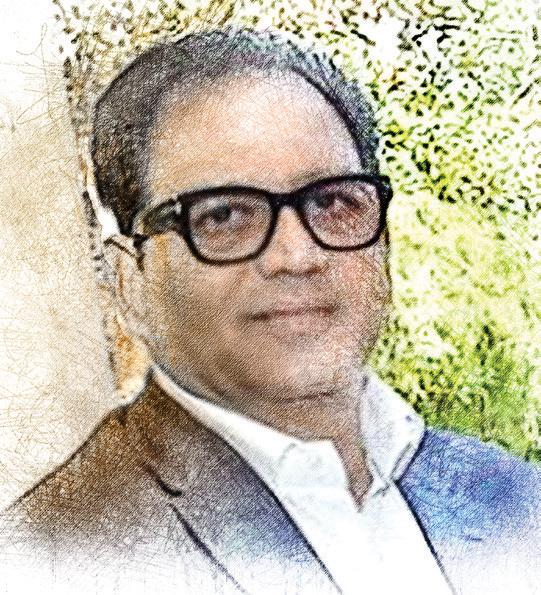
MD, International Operations, Malabar Gold & Diamonds
Ahamed is tasked with driving Malabar Gold & Diamonds’ global expansion, overseeing over 400 stores across 14 countries. He has been central to multiple recent launches, including the opening of a new showroom in Melbourne, Australia — the group’s second in the country — marking a strategic push in its international footprint.
Under his leadership, Malabar also unveiled a new concept store at UW Mall in Dubai in 2025, blending immersive design with premium customer experience.
In past commentary, he has emphasised that responsible sourcing is a core pillar of Malabar’s operations, reflecting his commitment to ESG in jewellery retail.
Founder and chairman, Burjeel Holdings
Vayalil heads Burjeel Holdings, a leading integrated healthcare group in the UAE, Oman and Saudi Arabia, with a network of hospitals, specialty clinics and allied services.
Under his leadership, Burjeel launched one of the region’s largest Oracle Health EMR platforms in early 2025, aiming to embed AI and data into patient care across its operations. In recent months, the group also announced plans to expand clinical trials within the UAE — 25 trials are already underway or completed — as part of its push to build advanced oncology and research capabilities.
On the social front, Dr Vayalil contributed Dhs5m to the UAE’s Fathers’ Endowment campaign, underscoring his philanthropic commitment to healthcare access for vulnerable communities.
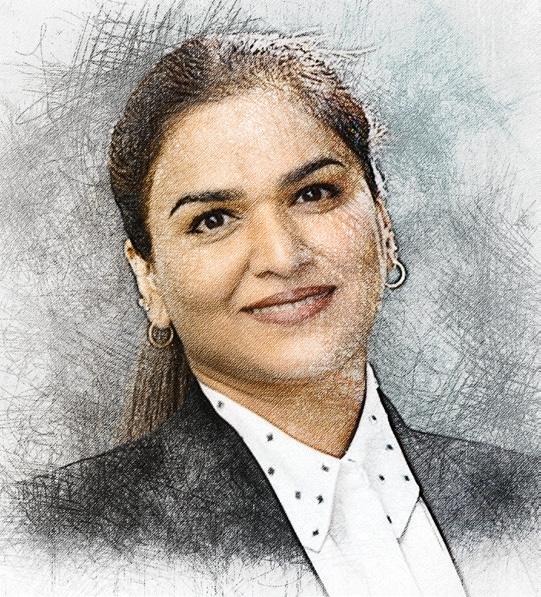
Group CEO, Medcare Hospitals & Clinics
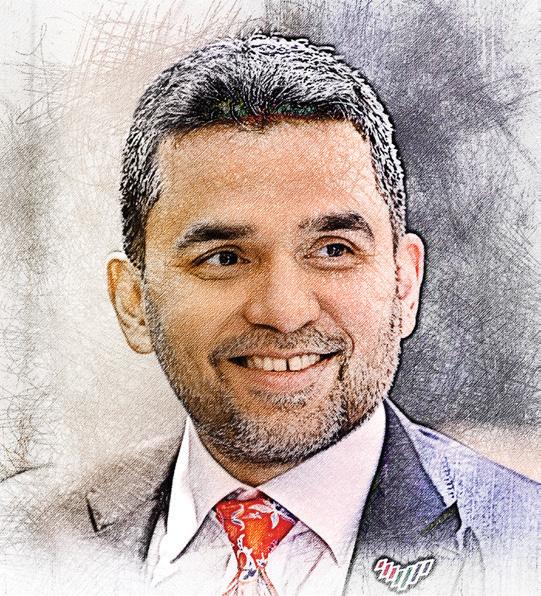
Dr Laiju’s career began in 1994 in dentistry before transitioning into hospital administration, progressing through roles including clinic supervisor, operations manager, chief operating officer, and ultimately CEO. She has spent over 20 years rising through the ranks of healthcare leadership, demonstrating strong capabilities in strategy, operations, and patient-focused service. Under Dr Laiju’s leadership, Medcare has expanded significantly in both scale and clinical excellence. Highlights include the development of Centres of Excellence such as the 65-bed Medcare Orthopaedics & Spine Hospital and the 88-bed Medcare Women & Children Hospital. She has overseen large capital projects, driven partnerships, and enhanced patient care. She is known for her commitment to sustainability.
CEO and founder, Luxury Concierge Real Estate (LCRE)
Luxury Concierge Real Estate (LCRE) is a Dubai brokerage focused on prime and super-prime residential, off-plan launches and investment advisory for regional and international clients.
As the founder and CEO, Kapoor oversees sales strategy, project marketing, and developer relations, with a mandate to match UHNW investors to flagship communities and branded residences.
Kapoor emphasises data-driven pricing, secondary-market liquidity, and transparent client service. LCRE also advises on portfolio diversification and exit planning for property investors. Under his leadership, the firm has grown its broker network and launched partnerships across Dubai’s key freehold districts.
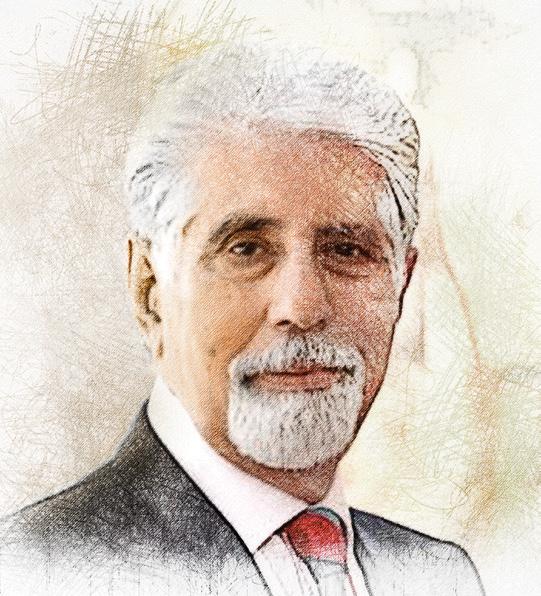
Chairman, Alam Steel Group
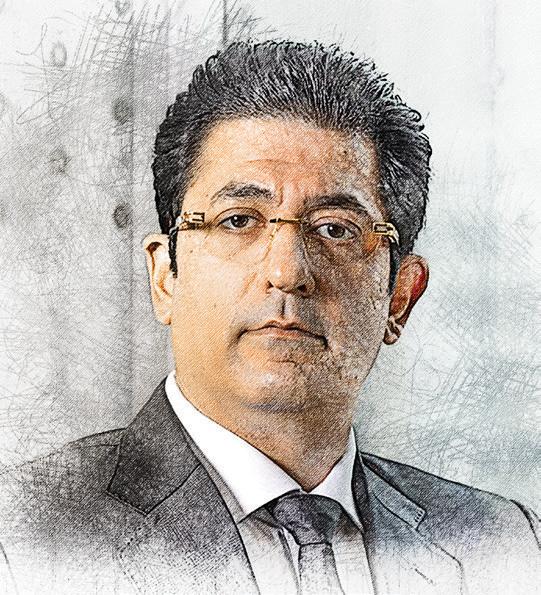
Alam Steel Group, which began as a modest building materials trading outfit in 1979, has evolved into a major player in steel distribution and processing across the UAE under the stewardship of Bhatia.
In recent years, the group has expanded its manufacturing footprint, opening a steel fabrication facility in Dubai and a rebar plant in Abu Dhabi, with capacities up to 300,000 tonnes annually.
A passionate cricket aficionado, Bhatia also established the Cricket for Care Foundation and a private cricket museum in Dubai, using sport as a vehicle for philanthropy and community engagement.
Balachandran heads the Dubai-based investment holding company with interests in financial services, industrials, and real assets. He is responsible for capital allocation, governance, and risk oversight, and for building long-term partnerships with banks, regulators, and corporates across the GCC and India. Balachandran’s focus includes prudent leverage, cash-flow resilience, and portfolio diversification, alongside corporate responsibility programmes in education and skills.
He serves on boards and advisory councils, contributing to policy and industry dialogue. Under his leadership, Buimerc has pursued measured growth, targeting cash-generative businesses with clear moats and succession-ready management teams.
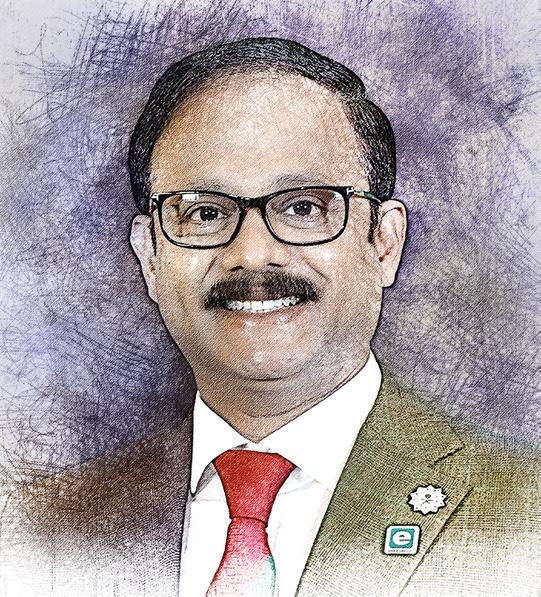
Chairman and MD, Eram Holdings
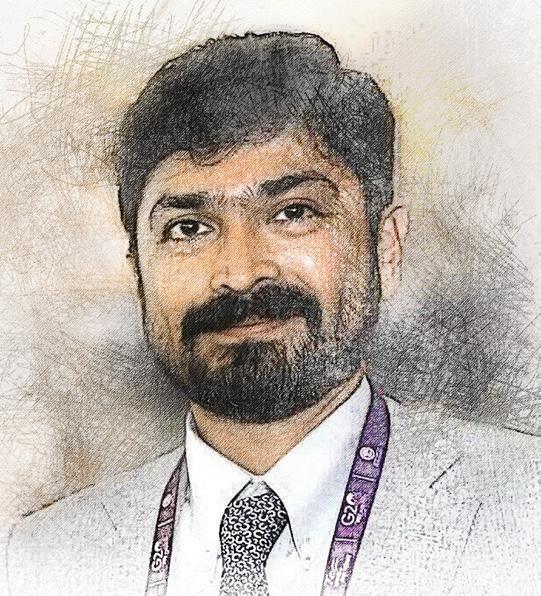
Ahmed leads Eram Holdings, a diversified conglomerate with operations in the GCC, India, and other markets across industrial services, oil and gas, engineering, healthcare, IT, and social innovation. He is known for backing technology with public impact, including sanitation and smart-infrastructure initiatives developed through group ventures such as Eram Scientific. Ahmed’s strategy blends localisation, ESG-aligned procurement, and workforce nationalisation where applicable.
Ahmed supports education and inclusion programmes through the group’s CSR arms. Under his leadership, Eram focuses on industrial reliability, safety culture, and partnerships that advance sustainable development goals in core operating geographies.
Founder and chairwoman, Apparel Group
Ved helms Apparel Group, a Dubai-based fashion and lifestyle retail group that operates a large multi-brand portfolio across the Middle East and Asia. She leads strategy, brand curation, and customer experience, with emphasis on omnichannel commerce, fast logistics, and data-led merchandising.
Ved champions women’s leadership and skills development across buying, store operations, and digital. Apparel Group continues to expand through new market entries, franchise partnerships, and experiential concepts in malls and community centres. Her priorities include sustainability in sourcing and packaging and continuous improvements in last-mile delivery and returns.
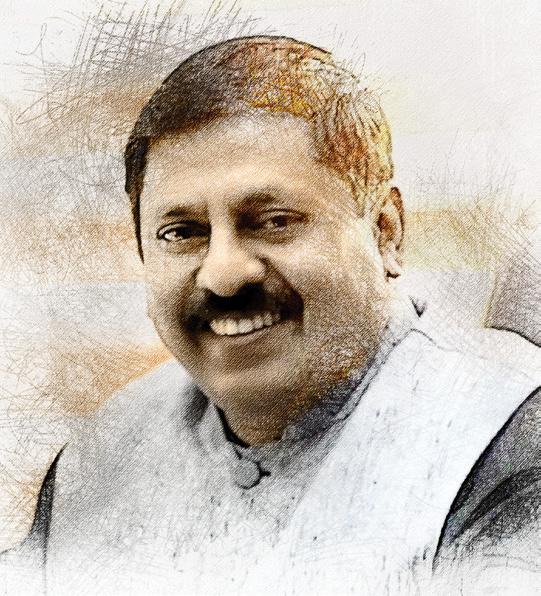
Founder, chairman and CEO, Aries Group
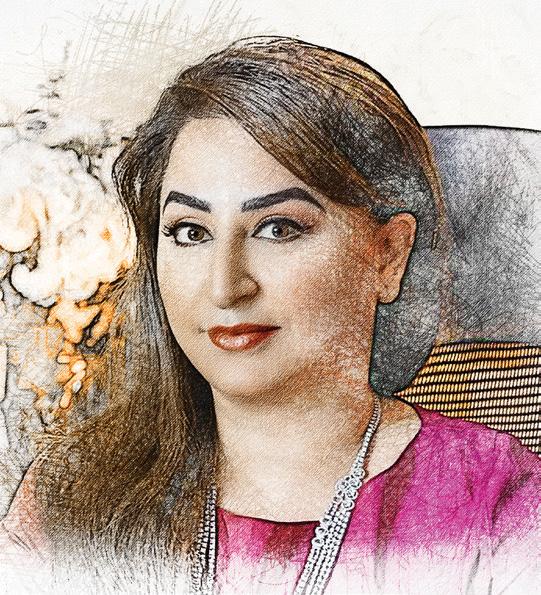
Roy is an Indian entrepreneur and naval architect based in Sharjah, who founded Aries Group in 1998, steering its evolution into a diversified global conglomerate spanning marine engineering, media, entertainment and technology. He is also a filmmaker (for eg, DAM999), poet, innovator (creator of “EFFISM”, an efficiencyimprovement system), and educational pioneer via the Aries International Maritime Research Institute (AIMRI).
In recent years, to mark Aries Group’s 25th anniversary, he announced a Dhs13.4m ( ≈ Rs30cr) “silver-jubilee gift” for employees and their families, reinforcing his reputation for bold corporate gestures and emphasis on employee welfare.
Chairman and MD, Sun Group
Menon heads the GCC-based business group with activities reported across trading, petrochemicals, industrial services, and real estate. He oversees portfolio strategy, cross-border supply chains, and risk management, serving clients across the Middle East and South Asia.
Menon is active in community initiatives and education programmes linked to employability and skill enhancement. He prioritises compliance, health and safety, and transparent procurement.
Under his leadership, Sun Group focuses on long-term customer contracts, reliable delivery, and selective expansion into adjacencies that complement its core trading and logistics capabilities.

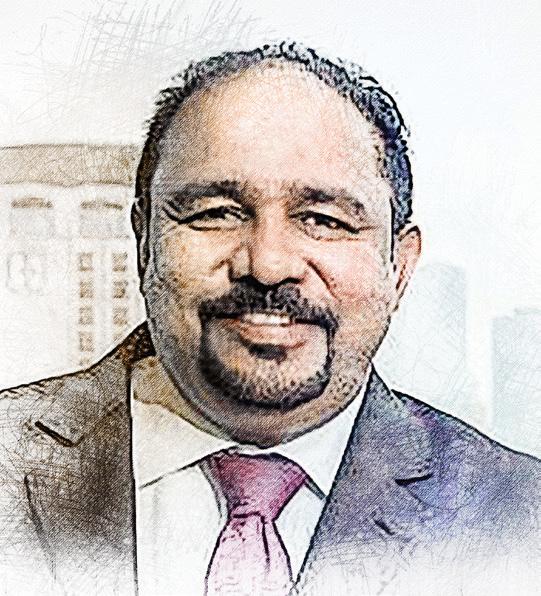
Founder, ASDA'A BCW and former president - ME BCW, now senior advisor, Stagwell
John founded ASDA’A BCW, one of MENA’s leading public-relations consultancies, and is now a senior advisor at Stagwell. He established ASDA’A in 2000 and built it into a regional network recognised for corporate, government, and financial communications, as well as for proprietary research including the Arab Youth Survey. He stepped down after 24 years.
During his time at ASDA’A he launched Proof Communications, a specialist digital and design firm, OnePoint5, an ESG advisory and led the annual Arab Youth Survey, a thought leadership platform capturing the hopes and aspirations of Arab youth.
Global co-head CIB, CEO, ASEAN & South Asia, Standard Chartered
Kaushal has more than 36 years of banking experience across Asia, the Middle East and Africa and has been with Standard Chartered for more than 26 years.
He currently serves as global co-head of corporate and investment banking and CEO for ASEAN and South Asia.
Previously, he was regional CEO for Africa and the Middle East, where he led the bank’s digital transformation, launching online banks in nine African markets and digitising its wealth-management platform.
Kaushal has also held leadership roles across India, Singapore, Taiwan, and the UAE. A chartered accountant, he holds a bachelor's degree of Commerce from Mumbai University.
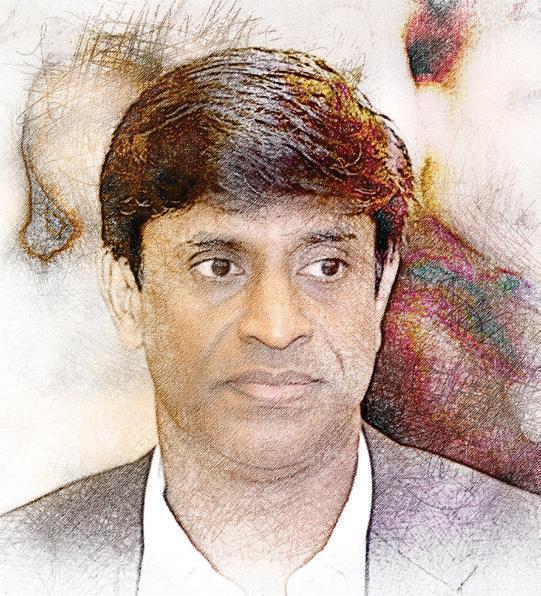
Spinneys
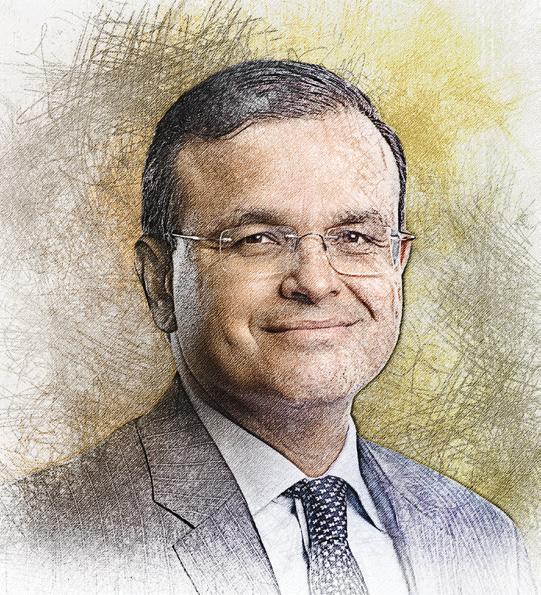
Kumar began his journey at Spinneys in 1994 as a shelf packer and worked his way up over three decades to become chief executive officer.
Under his leadership, Spinneys recorded Dhs290m in profit for FY 2024 (a 14 per cent year-on-year rise) and revenue growth of 12 per cent, driven by new store openings and expansion into Saudi Arabia. He was also instrumental in the company’s IPO plans and regional growth strategy.
In 2024, Spinneys entered a landmark 27-year partnership with Food Tech Valley to develop a 500,000 sq ft food processing facility in Dubai, reinforcing the group’s focus on sustainability, innovation and local food security.
Vaswani heads a multinational conglomerate with operations spanning 18 countries, primarily across sub-Saharan Africa. Under his leadership, Stallion Group has transformed from a modest enterprise into a diversified powerhouse with interests in automobile distribution, commodities, food processing, steel manufacturing, logistics, financial services, and more. The group represents several global automotive brands, including Honda, Porsche, and Volkswagen, and maintains extensive operations in rice milling, plastics production, and vehicle assembly. In a significant expansion move, Stallion Group recently acquired the franchise rights for MG Motor and launched the Hyundai Kona, Nigeria’s first electric vehicle, marking a milestone in the country’s automotive and clean energy sectors.
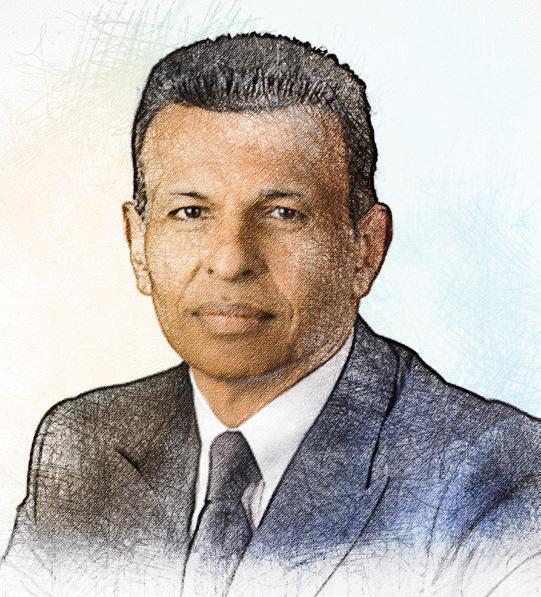
Founder and chairman, GEMS Education
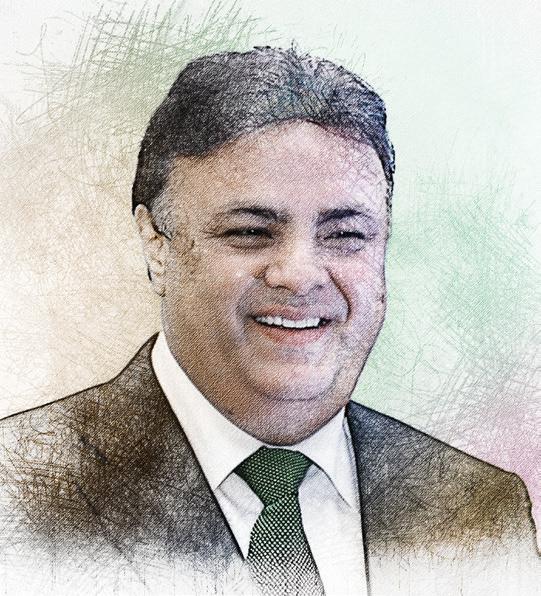
A Dubai-based education entrepreneur and philanthropist, Varkey leads the world’s largest operator of private K–12 schools, which currently operates over 66 schools and serves more than 119,000 students worldwide. In 2025, GEMS Education welcomed over 1,700 new teachers in Dubai, marking a significant milestone that he described as a "turning point" in educational innovation. That same year, GEMS Premier Music Academy became the first All-Steinway Institution in the Middle East. Varkey also oversaw the launch of the GEMS Global Education AI Hub, an ambitious initiative aimed at transforming the educational experience through artificial intelligence. Further cementing his influence on global education, Varkey, through the Varkey Foundation and in collaboration with UNESCO, launched the $1m Global Schools Prize.
Chairman and founder, Al Dobowi Group
Kandhari is the driving force behind a prominent multinational conglomerate headquartered in Dubai. His entrepreneurial journey began in 1975 with an exploratory visit to the UAE, which soon led to the founding of Al Dobowi in 1976, the country’s first dedicated tyre showroom. Under his leadership, the Al Dobowi Group has evolved into a diversified enterprise with operations spanning tyre management, power storage solutions, industrial rubber, material handling, and fluid management systems. Today, the group operates across more than 10 countries, employs more than 2,000 professionals, and holds the distinction of being the largest battery manufacturer in the MENA region. Its impressive client portfolio includes global corporations such as Coca-Cola, Walmart, and DHL. Al Dobowi also serves as a key distributor for leading international tyre brands throughout the Middle East.

Founding chairman, IBPC Dubai

Kumar, a prominent Dubai-based business figure is the founding chairman and former head of the Indian Business and Professional Council (IBPC) in Dubai. With a distinguished career spanning over 45 years, he has played a pivotal role in shaping the banking and financial landscape of the UAE. Kumar served as the CEO of Emirates NBD Group from 1985 to 2007 and again from 2008 to 2012, overseeing the bank’s expansion and steering it through critical phases of innovation and growth. He also founded Emirates Merchant Bank and Emirates Financial Services, through which he introduced mutual funds and capital market products to the GCC. Kumar is a recipient of the prestigious Hind Rattan Award, recognising his outstanding contributions to the Indian diaspora and his role in strengthening economic ties between India and the UAE. business community in Dubai and the broader region.
MD, ETA Ascon Star Group
Salahuddin has been instrumental in transforming the Dubai-headquartered multinational investment conglomerate into a global business empire. Under his visionary leadership, the group has expanded from a modest enterprise into a $6bn powerhouse, with operations spanning 22 countries and a workforce exceeding 50,000 employees.
Salahuddin is widely recognised for his strategic foresight and commitment to social impact, particularly in the areas of education and community development within the UAE. His tenure has been marked by the successful execution of projects valued at over $1.36bn and the creation of employment opportunities, primarily for Indian nationals. He has also received the Pravasi Bharatiya Samman, one of the highest honours conferred by the government of India to overseas Indians.
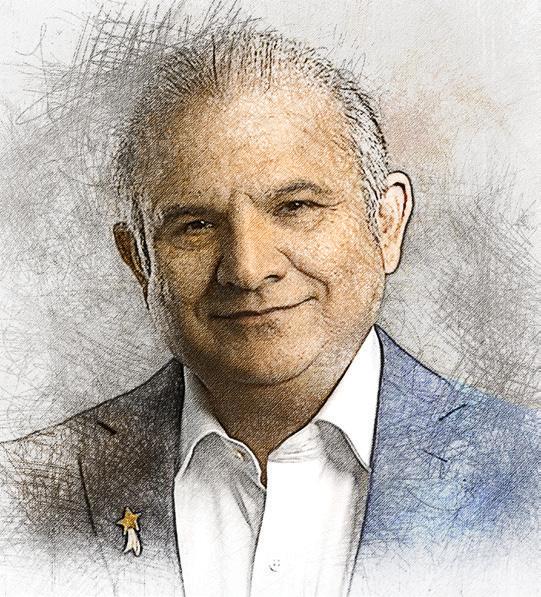
Group CEO, EFS Facilities Services
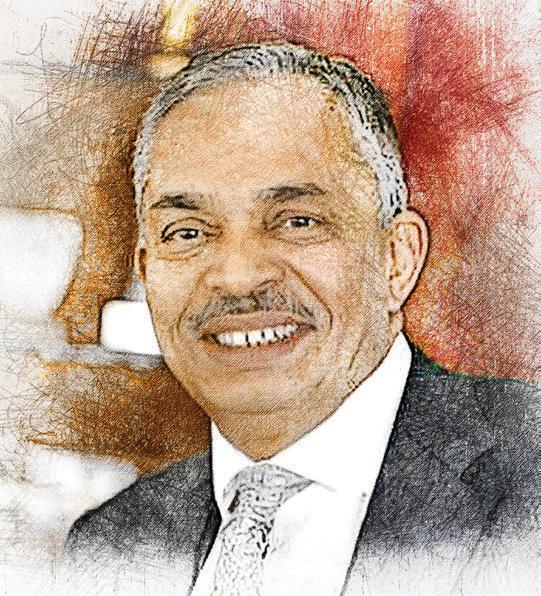
Chauhan leads the UAE-headquartered integrated facilities management company operating across the Middle East, Africa, and South Asia. He is responsible for group strategy, operations, and client delivery across hard and soft FM, energy management, and project services for government, commercial, and industrial assets.
Chauhan prioritises workforce training, safety, and localisation, alongside technology deployment for asset lifecycle optimisation. He is active in industry forums on productivity and ESG in the built environment.
Under his leadership, EFS continues to expand long-term contracts and self-delivery capabilities across critical infrastructure and community portfolios.
Founder president, Thumbay Group
In 2025, under Moideen's strategic guidance, the group achieved significant milestones, including the launch of state-of-the-art medical centres and hospitals, as well as the expansion of Gulf Medical University, an internationally acclaimed medical education institution attracting students from around the globe. The group has also made notable advances in digital healthcare services and medical research innovation, reinforcing its position as a pioneer in the region. Further cementing the group’s growth trajectory, Thumbay Group inaugurated its first veterinary clinic in Sharjah in September 2025, marking its entry into specialised veterinary healthcare services. In June, Dr Moideen received his fifth honorary doctorate from the University of Lublin, Poland. This distinguished honor acknowledges his impact on global healthcare, medical education, and research.
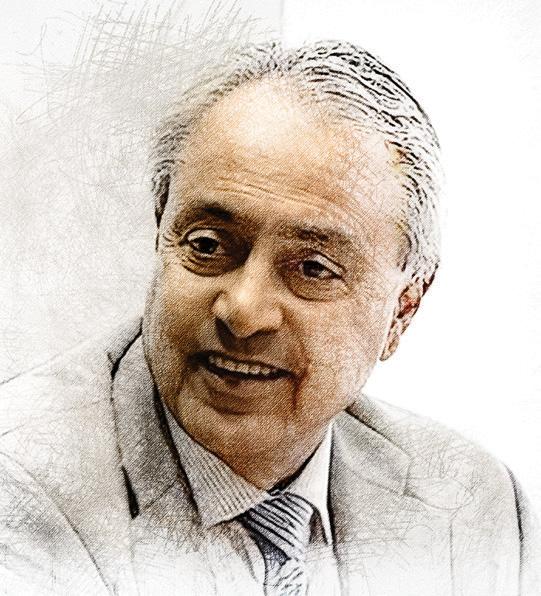
Group president, Jashanmal Group
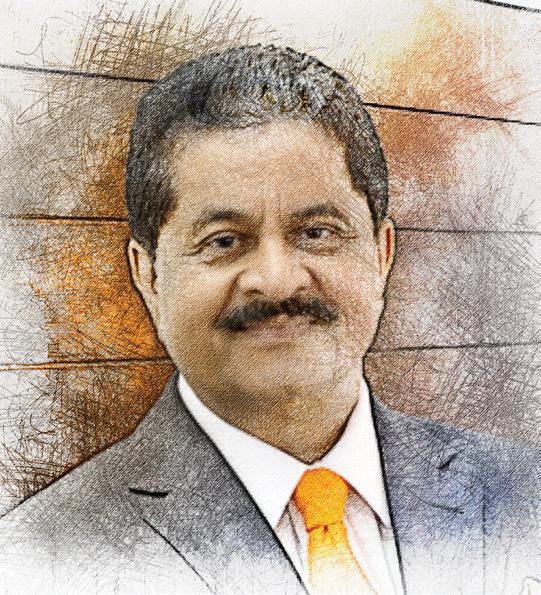
Born in Kuwait and educated in India and Switzerland, Jashanmal joined the family enterprise in 1973. Under his strategic leadership, the Jashanmal Group has achieved significant expansion, currently operating over 150 retail outlets across the GCC, India, and other markets, supported by a robust wholesale and distribution network. The group represents over 100 international and exclusive brands spanning diverse sectors including fashion, consumer electronics, perfumes, cosmetics, and home appliances. Jashanmal has played a pivotal role in modernising the business by integrating e-commerce and digital marketing initiatives. His emphasis on cultivating partnerships with premium brands has reinforced the company’s market position and competitive advantage. Beyond his corporate responsibilities, Jashanmal is involved in philanthropic initiatives focused on education and social welfare.
Shankar heads the investment firm, which focuses on mid-market opportunities across Asia, the Middle East and Africa. A veteran banker, Shankar has previously held senior leadership roles in international wholesale banking before launching Gateway to back resilient, cash-generative businesses in sectors such as food, healthcare, logistics, and financial services. Gateway targets value creation through operational improvement, regional expansion, and disciplined exits.
Shankar’s investment philosophy emphasises governance, currency and commodity risk management, and alignment with founders. He serves on portfolio boards and contributes to policy dialogue on emerging-market capital flows
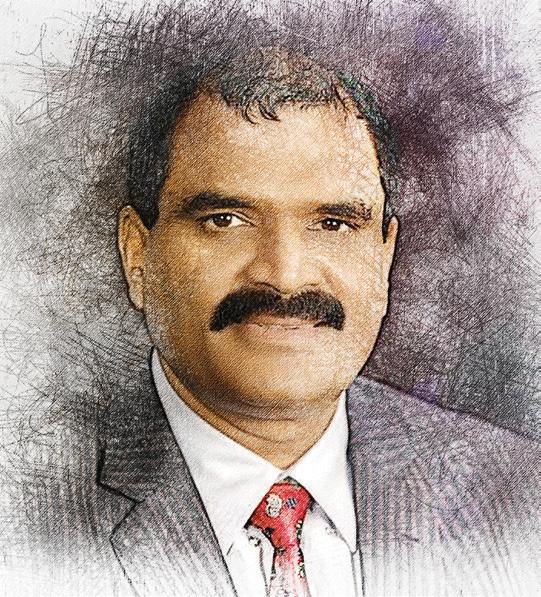
VASU SHROFF Chairman, Regal Group
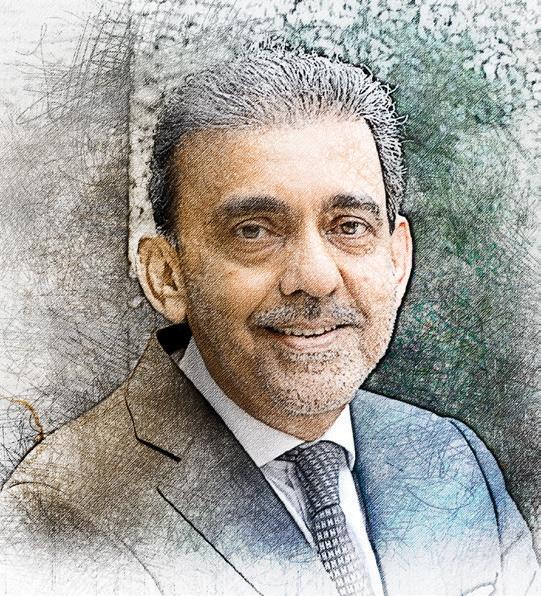
Founder and chairman, Ramee Group of Companies
Shetty heads the hospitality company, which has hotels, serviced apartments, and restaurants across the GCC and India.
He oversees asset development, brand positioning, and operations, with a focus on citycentre properties, nightlife venues, and F&B concepts.
Shetty’s strategy blends refurbishment of legacy assets with new builds in growth districts. He supports hospitality training and local employment initiatives.
Under his leadership, Ramee continues to refresh its portfolio through design upgrades, guest-experience enhancements, and selective expansion in the UAE, Saudi Arabia, Bahrain, and India.
Shroff has been a pivotal figure in the UAE’s business landscape since his arrival in 1960 at the age of 19. Starting with a single trading store, Shroff successfully expanded Regal Traders into a leading textile enterprise with 12 branches across Dubai, Abu Dhabi, and Ras Al Khaimah. Under his strategic leadership, the Regal Group has diversified its operations into technology, real estate, manufacturing, and investment sectors, evolving into a multi-billion-dollar conglomerate in the GCC region. Widely recognised as Dubai’s ‘textile king', Shroff has also made notable contributions to philanthropy, supporting initiatives in education, healthcare, and community development. In addition to his business achievements, Shroff is actively pursuing an ambitious project to build 101 temples globally.

VIDYA CHHABRIA Chairperson, Jumbo Group
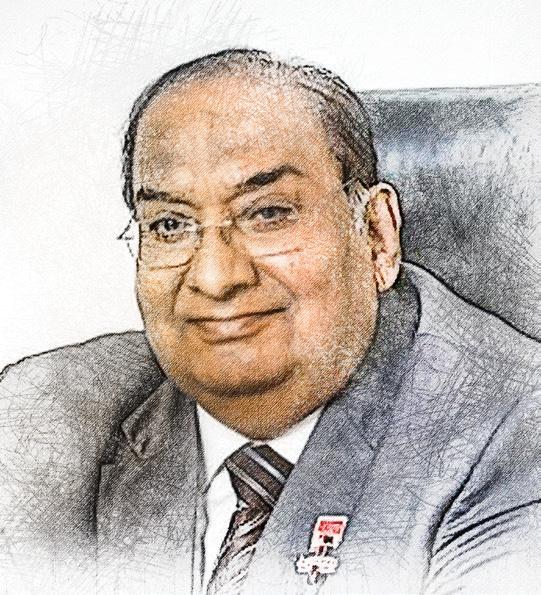
Chhabria has recently marked several key milestones, underscoring her commitment to innovation, digital transformation, and corporate social responsibility. In June 2024, the company donated Dhs1m to Dubai Cares, increasing its total support for children’s education initiatives to Dhs7m, demonstrating an ongoing dedication to social impact. Under her stewardship, the company also completed a significant upgrade of its digital platform, jumbo.ae, aimed at elevating customer experience and enabling seamless omnichannel retail operations. Furthermore, Jumbo Group expanded its regional footprint, reinforcing partnerships with over 60 global brands, including Sony, Dyson and Apple. The group also strengthened its B2B segment, securing notable government and enterprise contracts, thereby broadening its market reach.
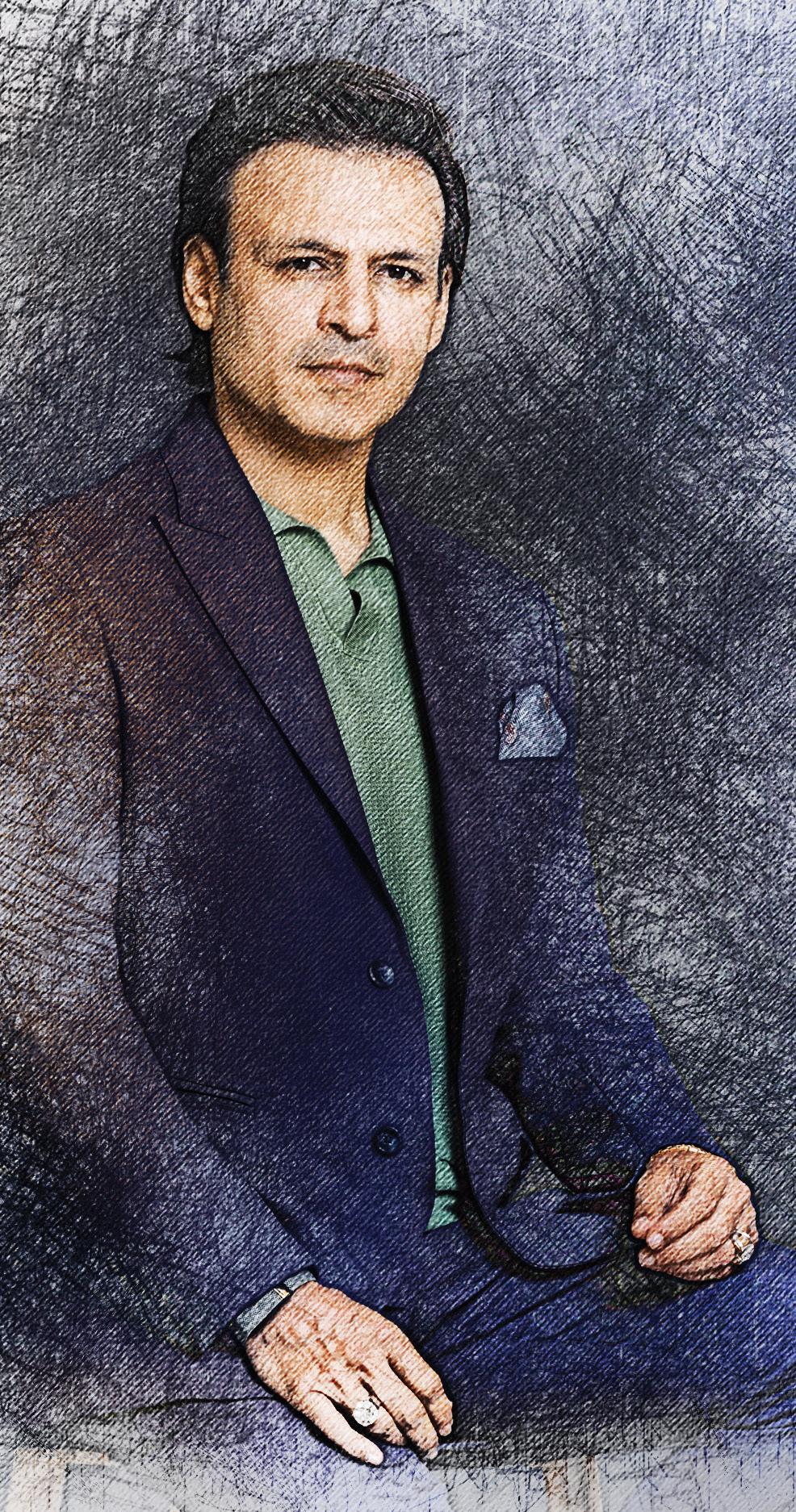
ANCHORED IN HIS BELIEF THAT PROFIT IS FOR A QUARTER, PURPOSE IS FOR LIFE, HIS LEADERSHIP DEFINES SUSTAINABLE SUCCESS.
Oberoi, a renowned actorpreneur and philanthropist, is the cofounder and managing director of BNW Developments, a leading luxury real estate developer in the UAE.
Acclaimed for his career in Indian cinema, Oberoi is also making waves in the world of entrepreneurship, offering a holistic perspective and bringing his insightful vision to BNW Developments. Under his guidance, the company has achieved an impressive milestone of Dhs22bn in assets under development (AUD), specialising in exclusive properties that set new benchmarks of luxury and sophistication.
Beyond his achievements in real estate, his portfolio spans sustainable luxury, agri-tech, ed-tech, impact marketing, and alco-bev. He is also actively associated with the Cancer Patients Aid Association, Project Devi, and several other initiatives dedicated to social impact and upliftment, reflecting his deep commitment to giving back to society.
At BNW, his vision is to create developments that uphold the highest standards of living while leaving a lasting impact on communities, reflecting his acumen for forward-looking, value-driven investments, merging profitability with purpose.

Mehta moved from India to Dubai in 1990, driven by a desire to rebuild his career after financial setbacks. He spent months researching the regional chemicals market at the Dubai Municipal Library, studying supply chains, key players, and consumption patterns. That groundwork led to a partnership agreement signed in June 1990, marking the start of what would become Petrochem Middle East, officially established in 1995.
Under Mehta’s leadership, Petrochem has evolved into one of the largest independent chemical distributors in the Middle East, with an annual turnover exceeding $1.5bn. The company operates a major bulk storage terminal in Jebel Ali Free Zone, from which it exports more than three million metric tonnes of chemical products every year to 27 countries, including markets in the GCC, India, and Africa. Petrochem distributes products from Shell, Eastman Chemical Company, and LyondellBasell, serving clients across coatings, packaging, oil
UNDER MEHTA’S LEADERSHIP, PETROCHEM HAS EVOLVED INTO ONE OF THE LARGEST INDEPENDENT CHEMICAL DISTRIBUTORS IN THE MIDDLE EAST.
and gas, and manufacturing industries. Mehta’s business philosophy centres on ethics, reliability, and long-term relationships. He attributes the company’s success to its focus on quality service, credit discipline, and an empowered team.
His Harvard Business School experience reinforced his belief in innovation and strategic reinvention, which he continues to apply as Petrochem diversifies globally.
His son Rohan Mehta joined the business over a decade ago, bringing renewed focus on technology, sustainability, and digital transformation. Together, they are expanding Petrochem’s international portfolio and strengthening its presence across growth markets.
Beyond business, Mehta is deeply involved in community initiatives. He serves as vice chairman and trustee of the new Abu Dhabi Hindu Temple, reflecting his commitment to cultural dialogue and social responsibility. His journey from a struggling entrepreneur to an industry leader embodies resilience, foresight, and the transformative power of perseverance.
Founder and chairperson, Zulekha Healthcare Group
Originally from Nagpur, India, Dr Daud earned her medical degree at Government Medical College, Nagpur, before moving to the UAE in 1964 to serve as one of the first Indian female doctors in the region. Her early practice was during a period of scarce medical infrastructure, often carrying out home visits and delivering babies under basic conditions. Her pioneering efforts led to the establishment of Zulekha Hospital Sharjah in 1992, followed later by a hospital in Dubai, medical centres across the UAE, and a network of pharmacies. Today, her healthcare group treats over 550,000 patients annually, with services spanning more than 30 medical disciplines. Facilities include two multi-speciality hospitals, multiple medical centres, and a chain of pharmacies. Beyond healthcare, she leads philanthropic efforts in public health, medical access and community welfare.
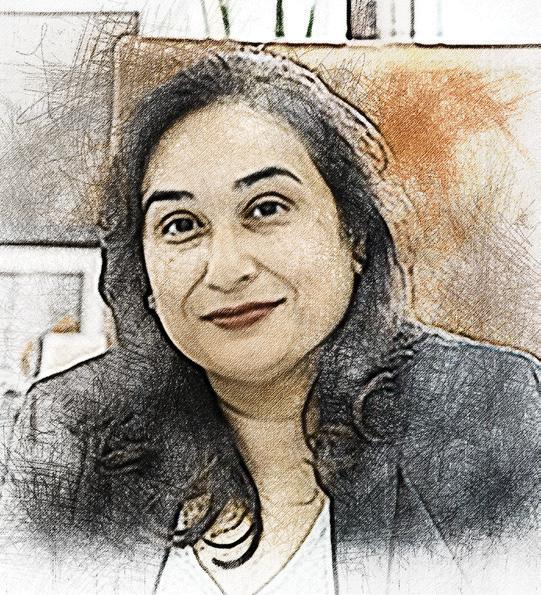
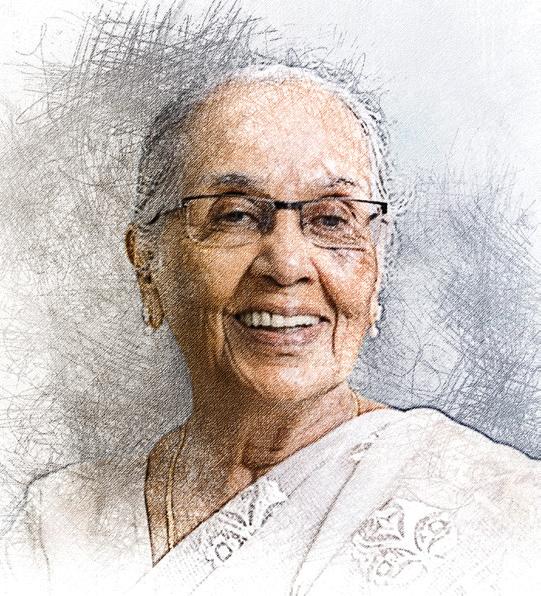
Co-chairperson, Zulekha Healthcare Group
Shams co-chairs the group, which operates hospitals, medical centres and pharmacies in the UAE and India. She oversees strategy, clinical quality programmes, and patient-experience initiatives, and leads digital transformation across care pathways, including telehealth and integrated records.
Shams supports workforce development, accreditation standards, and community health campaigns focused on prevention and early screening.
Under her co-leadership, the group continues to invest in new specialties, centres of excellence, and collaborations with insurers and life-science partners to enhance access, safety, and outcomes across its network.
ZUBIN KARKARIA
Founder and CEO, VFS Global
Karkaria is the visionary behind VFS Global, the world’s preeminent outsourcing and technology services provider supporting governments and diplomatic missions in visa, passport, and consular services worldwide. In 2025, under Karkaria’s guidance, VFS Global marked two decades of successful operations in China, celebrating a legacy of transforming visa services and driving industry innovation. The company also announced a strategic partnership with Together AI to advance artificial intelligence applications in cross-border mobility. Since establishing VFS Global in 2001, Karkaria has spearheaded the company’s remarkable expansion, now operating in over 150 countries with nearly 3,600 application centers, serving 70 government clients globally.
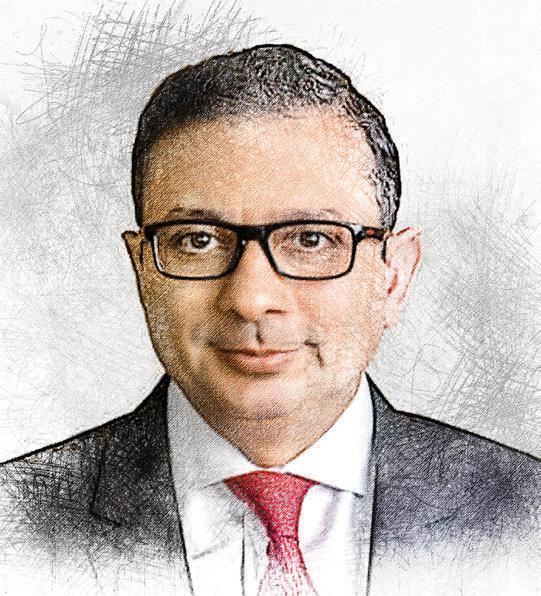
The United Arab Emirates and the Republic of India are connected not only by geography but by deep human and cultural ties that continue to shape our story today.”
Noura Al Kaabi, Minister of State, UAE

goals are
BY RAJIV PILLAI
Across the Middle East, 5G is entering a new phase of maturity — shifting from a connectivity enabler to a catalyst for enterprise transformation. Petra Schirren, president of Ericsson Gulf at Ericsson Europe, Middle East and Africa, believes the region is already leading globally in leveraging 5G and AI to transform industries such as logistics, oil and gas, and public safety.
“There’s a lot in public safety, a lot of interest from ports, logistics companies, airports, oil and gas; all these have been big industries for us,” Schirren said. “The benefits of AI and cloud combined can really both enable efficiency in the ways that industries run their operations, and provide security and safety for people working for them; then there is also new types of use cases for revenue generation.”
According to Schirren, industry adoption is progressing steadily as enterprises build trust and confidence in advanced network capabilities. “It takes a little bit of time to get industries and people to be comfortable with security, with trust as well…in changing the way that they do business, but it’s progressing every day,” she added.
While 5G continues to transform industries, Ericsson is already investing
heavily in 6G research and development. “Standardisation has just started,” Schirren said. “Then, of course, we have worked on R&D for a long time.”
She explained that 6G will go beyond connectivity, enabling networks with sensory and autonomous capabilities. “It’s a lot about sensing capability. It’s a lot about being able to do things in an autonomous way, being able to do things without human intervention,” she said.
Some of these capabilities are already being integrated into 5G networks. “We’re starting that already now with programmable networks for 5G as well,” Schirren added. “Some of those capabilities are already being introduced, but we started taking it one step further to make it kind of sensory determined.”
Ericsson’s sustainability goals are deeply
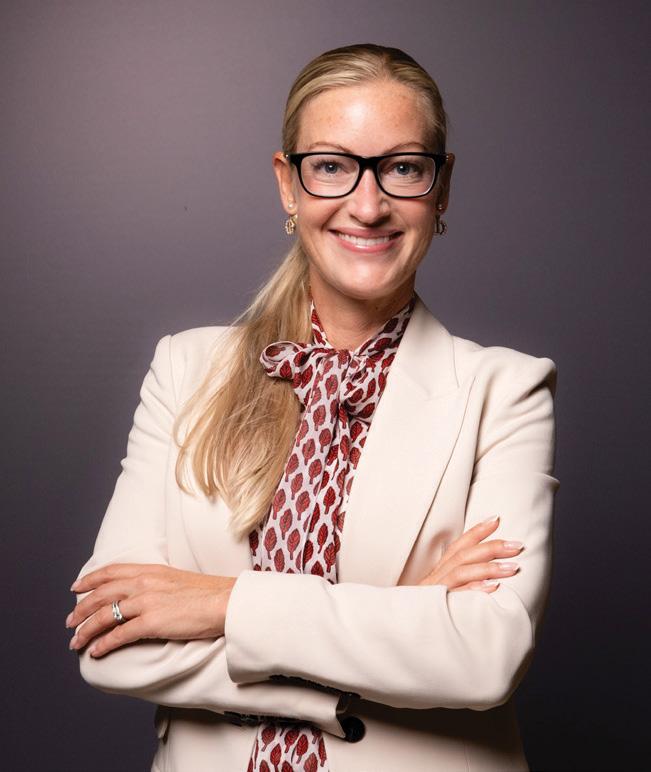
intertwined with its technology roadmap. “We’re working on our own products to ensure that every generation that we release is more efficient than the previous one,” Schirren said.
The company aims to achieve net zero emissions across its value chain by 2040, with a milestone of reaching net zero in its operations and a 50 per cent reduction in supply chain and portfolio emissions by 2030. “We work with all of our customers here, both on optimising the energy efficiency of their networks, optimising the site performance, and we also have solutions like connected recycling as well, where we’re actually taking care of the waste that is generated from our industry,” she said.
“For us, it’s one of our biggest core values to work on sustainability because we believe we want to be able to do more with less,” Schirren added. “As we do connectivity and innovation, we also have to care about the planet and the sustainability of what we put out in the market.”
At GITEX Global 2025, Ericsson highlighted the power of partnerships in accelerating digital transformation. “Of course, we work with our CSP partners. They’re one of our prime customers today, but we also have collaborations with other parts of the ecosystem,” Schirren said.
As we do connectivity and innovation, we also have to care about the planet and the sustainability of what we put out in the market.”
She emphasised that achieving national visions such as UAE’s Digital Transformation Strategy 2031 requires collective effort. “It’s very important to realise that if we want to bring the digitisation of nations vision to life by 2031, no one can do it alone,” she said. “It goes all the way from governments to our customers to, for example, other providers that might have particular applications or devices to run on top of our networks.”

From a single coffee machine in 2005 to a regional powerhouse today, Coffee Planet celebrates two decades of blending tradition, innovation, and global ambition
More than two decades ago, in 2005, Coffee Planet began with a single coffee machine and a bold dream — to bring world-class specialty coffee to the UAE. What started as a local experiment has since grown into one of the region’s most respected roasting brands, combining global recognition with deep local roots. Now celebrating over 20 years of excellence, Coffee Planet reflects on a journey defined by vision, resilience, and innovation. At the heart of this success lies a powerful partnership between Chairman Allan Jones and his son, CEO William Jones — two leaders whose distinct yet complementary perspectives have shaped the brand’s evolution.
Together, they’ve built a company grounded in family values but fuelled by forward-thinking ambition - a blend that continues to drive Coffee Planet’s expansion across the UAE, Saudi Arabia, and beyond.
Coffee Planet’s story began humbly. Allan Jones and co-founder Matthew Yorke Smith introduced specialty coffee to a market still discovering its appreciation for quality brews. What started with just 30 cups a day from a single machine inside a petrol station soon grew into something much greater, as consumers developed a taste for
better coffee experiences. Today, the company operates a state-of-the-art roasting facility in Dubai, sourcing beans from over 23 origins worldwide. Its coffees now reach customers across the Middle East, Asia, and Europe — proof that a local idea can evolve into a global brand while staying true to its heritage.
“All that growth is remarkable,” Allan reflects. “But what matters most is that we’ve stayed true to our principles. Coffee Planet has always been a local brand with international ambition.”
What truly sets Coffee Planet apart is its leadership — a story of two generations united by a shared purpose but inspired
by different philosophies. For Allan, business is built on trust, consistency, and long-term relationships. “Businesses that last do so because they never lose sight of their values,” he says. “Quality and reliability have kept us strong for over 20 years — and they’ll keep us going for many more.”
William Jones, meanwhile, represents the new face of Coffee Planet: dynamic, data-driven, and relentlessly innovative. Since stepping into his role, he has championed digital transformation, embraced sustainability, and steered the company towards new international opportunities.
“The way people experience coffee today is completely different from 20 years ago,” William explains. “Our customers are curious, conscious, and expect brands to keep evolving. My focus is ensuring Coffee Planet continues to lead that change - whether through technology, sustainability, or creativity.”
This duality — Allan’s heritage-driven wisdom and William’s future-focused leadership — has become Coffee Planet’s defining strength. It’s the equilibrium that keeps the brand grounded in its roots while constantly reaching forward.
At its core, Coffee Planet’s philosophy is simple: progress and tradition canand must coexist. The company maintains strong partnerships with coffee farmers around the world, ensuring ethical sourcing and fair-trade practices. Yet it also continues to invest in cutting-edge roasting technology, barista education, and product innovation to stay ahead of changing consumer expectations. “We’ve always believed great coffee shouldn’t be a luxury,” Allan
We want Coffee Planet to be more than a roaster. Our ambition is to shape how people experience coffee globally. That means pushing into new territories, exploring sustainability in deeper ways, and delivering experiences that surprise and delight.”
craftsmanship in beautifully designed spaces created for the modern coffee culture. The company’s regional expansion continues in Saudi Arabia, where Coffee Planet has partnered with HB Brands to establish a growing retail presence - including its fifth store in Riyadh’s prestigious King Abdullah Financial District (KAFD). These ventures highlight Coffee Planet’s ability to adapt to new markets while staying authentic to its identity.
After more than two decades of success, the Jones family remains focused firmly on the future.
For Allan, it’s about legacy. “Crossing the 20-year mark shows our foundations are solid. Now, it’s about ensuring those values endure as we continue to expand.”
says. “It should be accessible to everyone — and that belief has guided our innovation every step of the way.”
William adds, “Innovation doesn’t mean turning away from tradition. It means respecting it - and finding modern ways to share that story with a new generation of coffee lovers.”
From supplying hotels, restaurants, and retailers to opening its own cafés, Coffee Planet has steadily evolved from a roaster into an experiential brand. Through its trusted partners, DASH Hospitality, Coffee Planet has opened 12 cafés across the UAE, offering customers a direct taste of the brand’s

For William, the vision is one of growth and reinvention. “We want Coffee Planet to be more than a roaster. Our ambition is to shape how people experience coffee globally. That means pushing into new territories, exploring sustainability in deeper ways, and delivering experiences that surprise and delight.”
Ultimately, Coffee Planet’s story is about more than business — it’s about family, perseverance, and shared vision. Two generations, one purpose: to honour the craft of coffee while shaping its future.
“All along, we’ve stayed a family business,” Allan concludes. “That’s what makes Coffee Planet special. It’s why we’ve thrived for over 20 years — and why we’ll continue to grow.”
With two decades behind it and a promising future ahead, Coffee Planet continues its mission: to celebrate coffee’s rich traditions while innovating for tomorrow. What began with one machine now spans countries, cultures, communities and the journey is far from over.
“We want Coffee Planet to be more than a roaster. Our ambition is to shape how people experience coffee globally. That means pushing into new territories, exploring sustainability in deeper ways, and delivering experiences that surprise and delight.” TODAY, THE COMPANY
SkyKapital founding partner Karim Noujaim (left) receives the ‘Lifetime Excellence Award in Francophone Markets’ at the Francophone Awards

As it builds bridges between Europe, Africa, and the Middle East, SkyKapital is redefining how sustainable investment and financial innovation can unlock long-term growth across emerging markets
As investors seek growth in a shifting global economy, SkyKapital has emerged as a trusted bridge between Europe, Africa, and the Middle East, focusing on West Africa, a region often overlooked yet rich with opportunity and transformative transactions. From its headquarters in Paris and growing hub in the UAE, following the establishment of an office at Abu Dhabi Global Market, the firm is redefining how cross-border capital can drive sustainable development.
Earlier this year, that effort was recognised when the firm received the Lifetime Excellence in Francophone Markets Award from HM Government of the UK. For Karim Noujaim, founding partner of SkyKapital, the award reaffirms the company’s mission to bridge capital and opportunity through a model rooted in partnership, inclusion, and sustainable growth.
SkyKapital’s premise is simple, yet ambitious: connect global capital with high-impact projects fostering long term growth. Its work centers on West Africa, a cluster of markets that remain underserved by global investment flows.
The company operates across key sectors, including infrastructure, urban
development, consumer markets, banking and insurance, and mining. Its core expertise lies in transaction and financing structuring, including sovereign and crossborder M&A. Through trusted relationships at the highest institutional levels, SkyKapital’s insights often inform national investment priorities and help shape financial frameworks that drive sustainable development.
Francophone Africa represents one of the most dynamic investment frontiers in the world. Home to over 400 million people, abundant resources, and a growing middle class, the region remains underexplored due to perceived risks, regulatory complexity, or linguistic barriers.
SkyKapital aims to change that narrative. By leveraging its structuring
expertise, institutional ties, and market understanding, the firm helps investors navigate challenges and uncover opportunities aligned with sustainable development goals. Today, SkyKapital is involved in transformative transactions creating sizeable opportunities in the region for international investors.
From its office in Abu Dhabi, SkyKapital enhances the cross-border capital flows between West Africa and the UAE, reinforcing the UAE’s ambition to position itself as a global investment bridge connecting capital with high-growth regions. The UAE is uniquely positioned to lead the next chapter of South–South investment, as it continues to attract investors and to look at opportunities, firms like SkyKapital serve as conduits to emerging markets, translating capital into tangible impact.
SkyKapital de-risks complex markets through collaboration, bringing together stakeholders to design frameworks that ensure financial viability and social inclusion.
This hybrid approach has earned recognition not only for its outcomes but for its methodology. The firm’s projects are often cited as case studies in sustainable urbanisation and cross-border cooperation, setting benchmarks for responsible capital deployment in developing economies.
Looking ahead, SkyKapital aims to strengthen its presence across key growth corridors where digital transformation, infrastructure, and sustainable finance intersect. The firm sees Africa not as a frontier market, but as a partner in shaping the global economy of the future.
The UAE is uniquely positioned to lead the next chapter of South–South investment, as it continues to attract investors and to look at opportunities.”
As the 2025 Abu Dhabi Financial Week approaches, where Noujaim will again join global leaders to discuss cross-border investment, SkyKapital’s story underscores how ambition, innovation, and collaboration can turn emerging markets into engines of shared prosperity.












